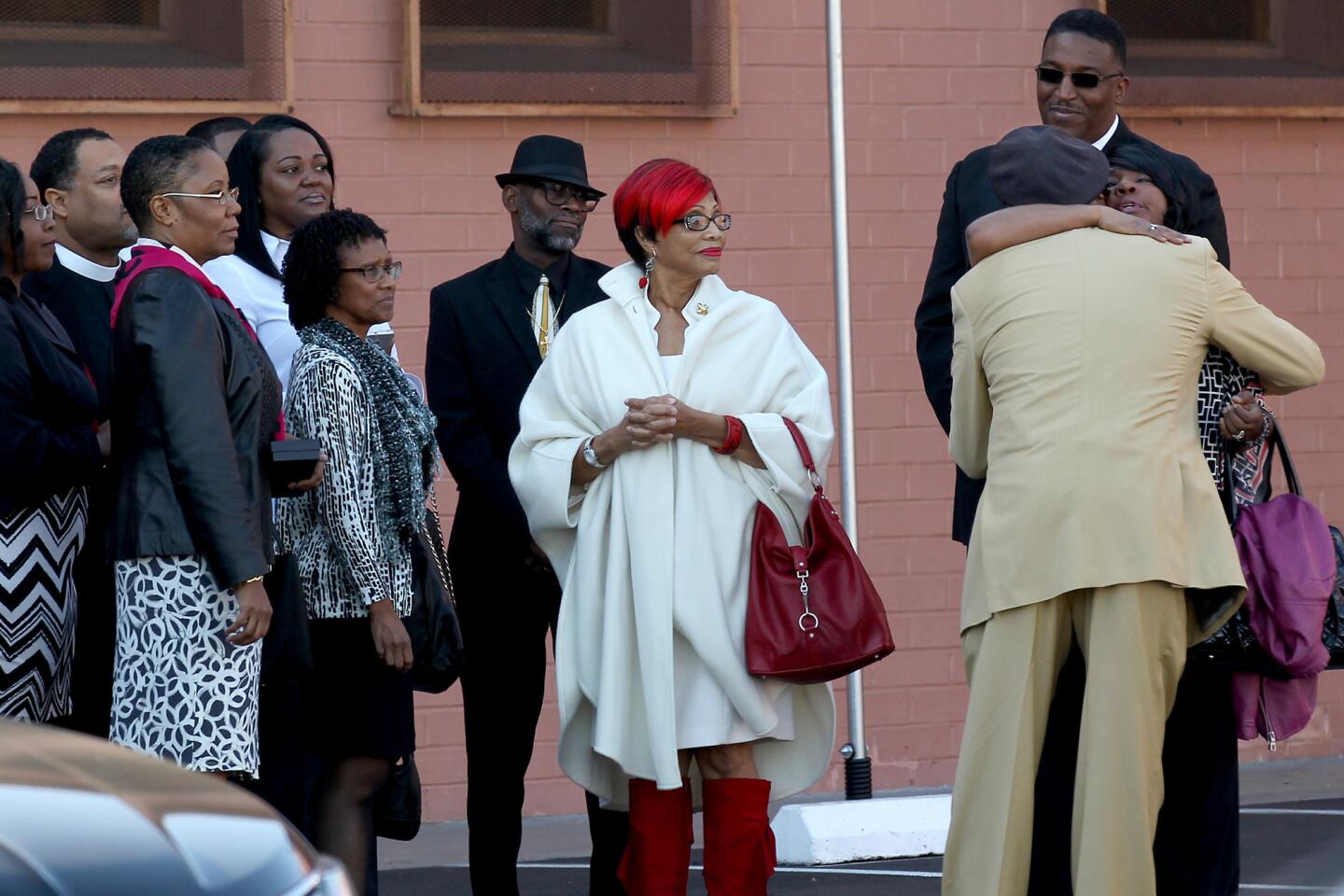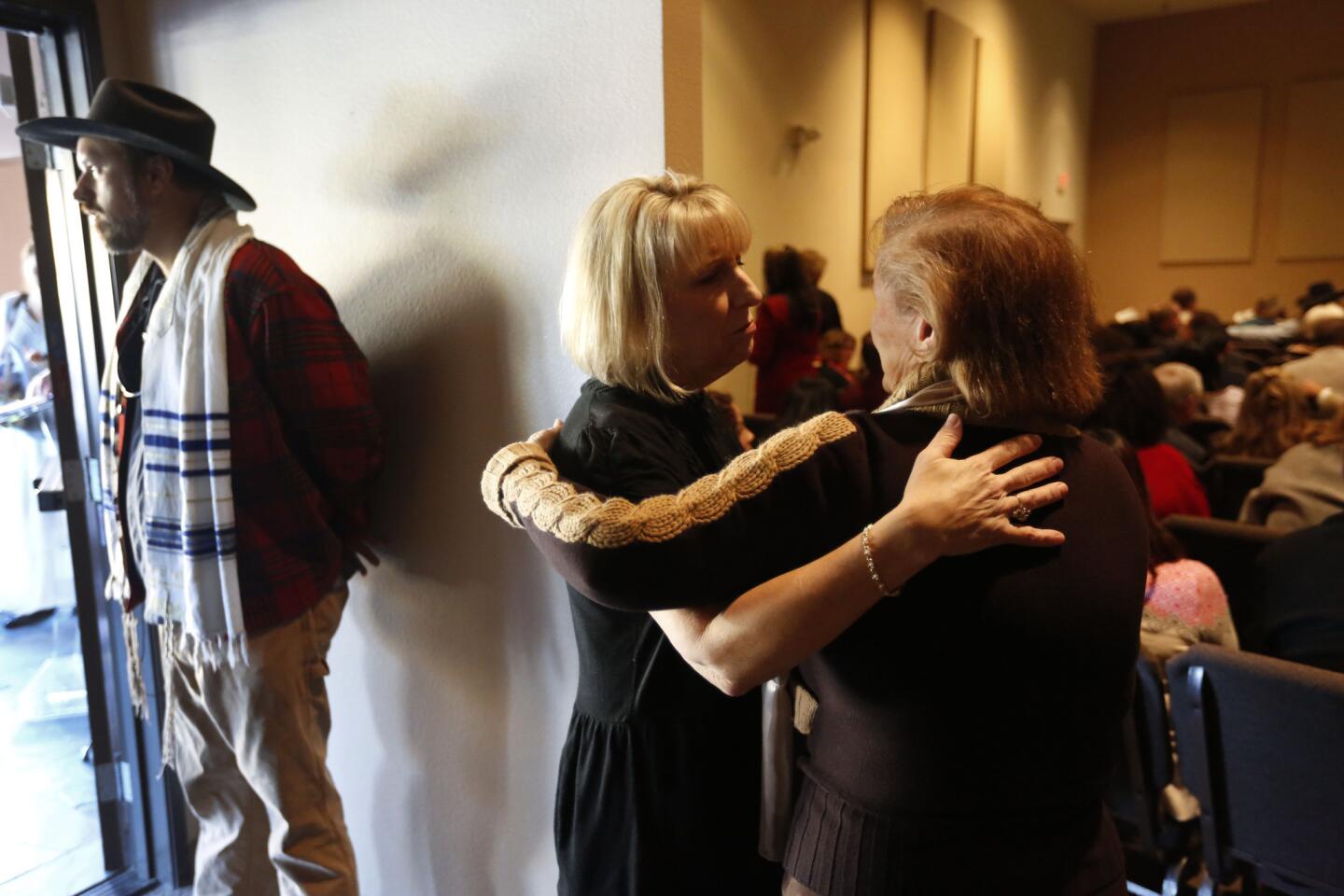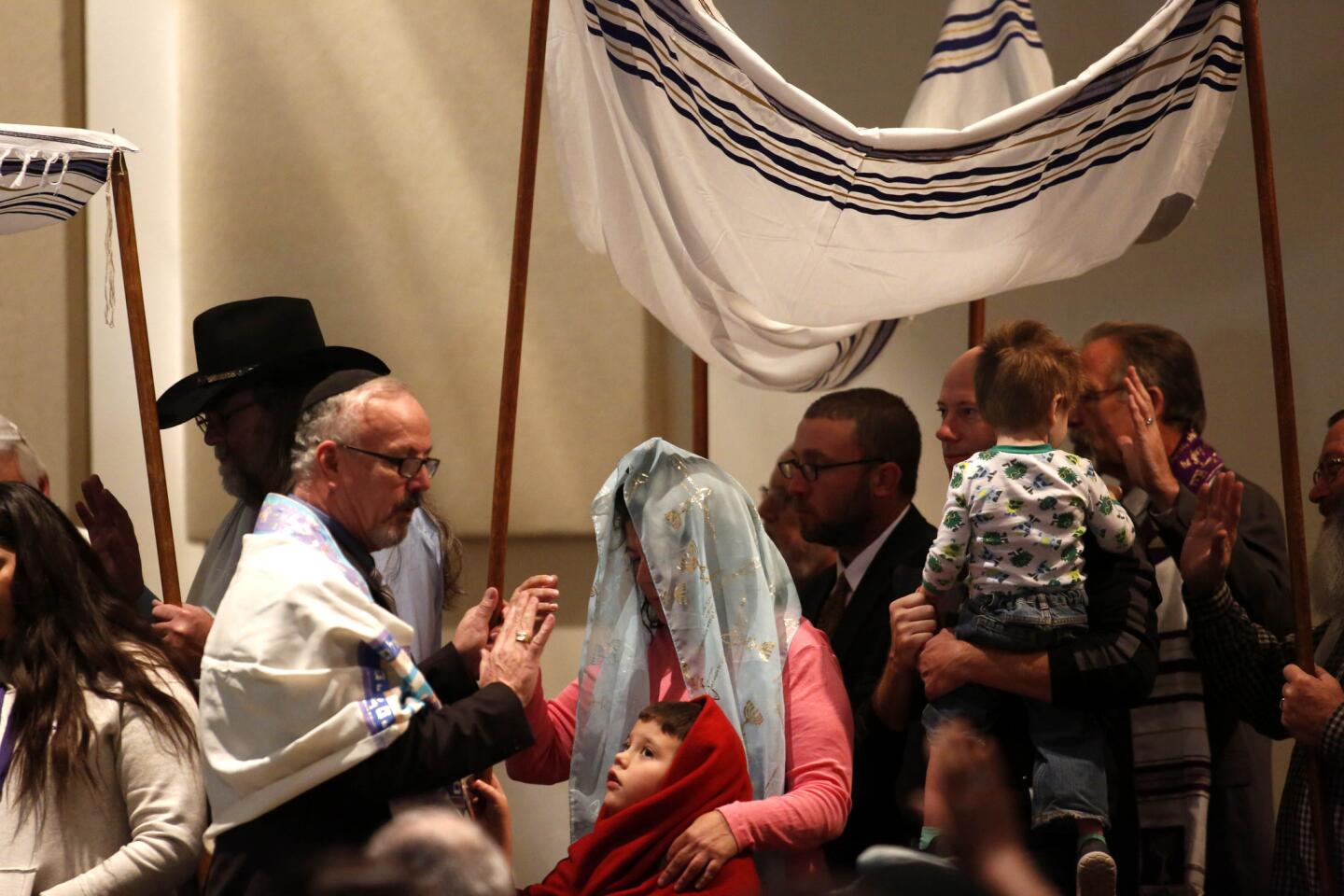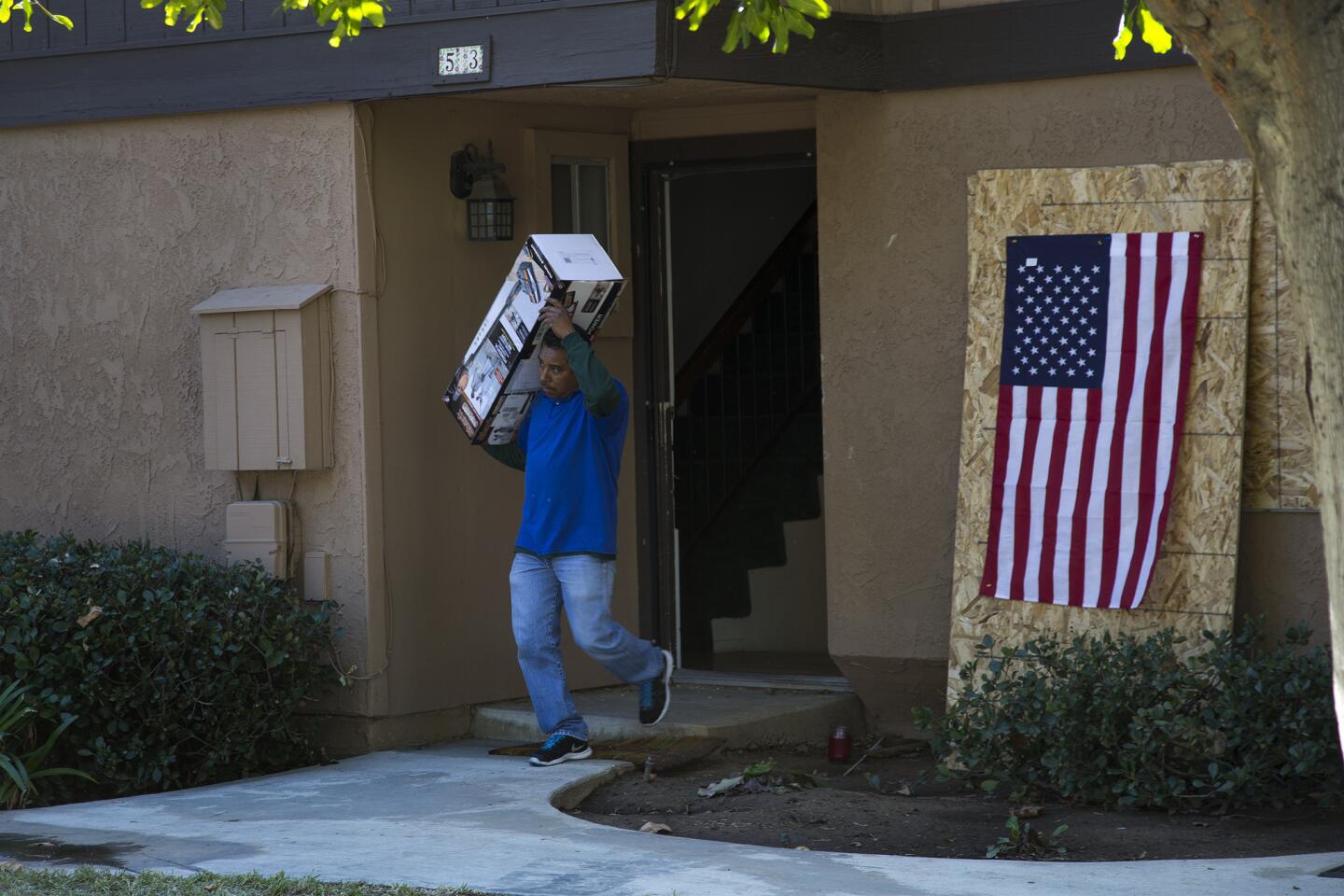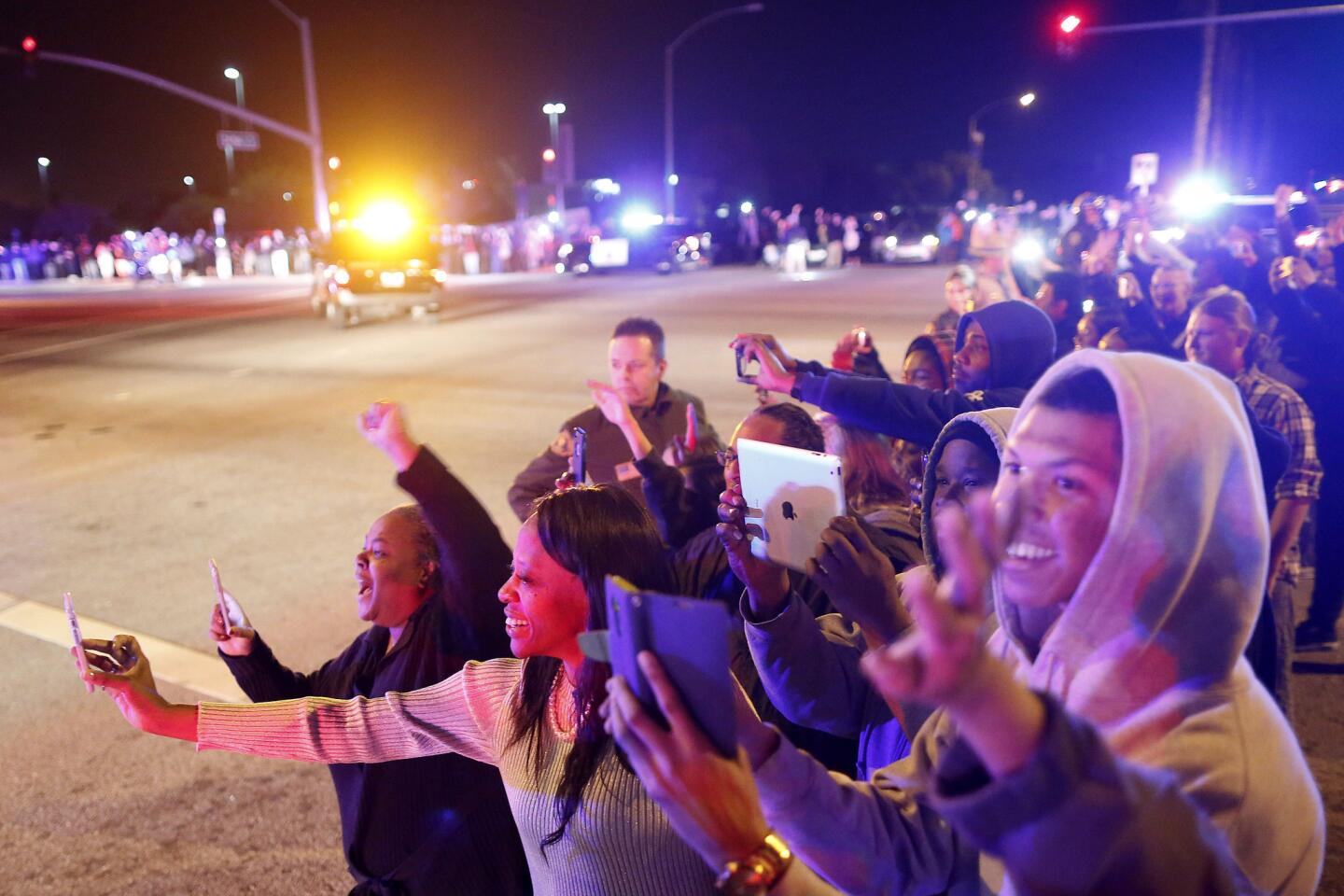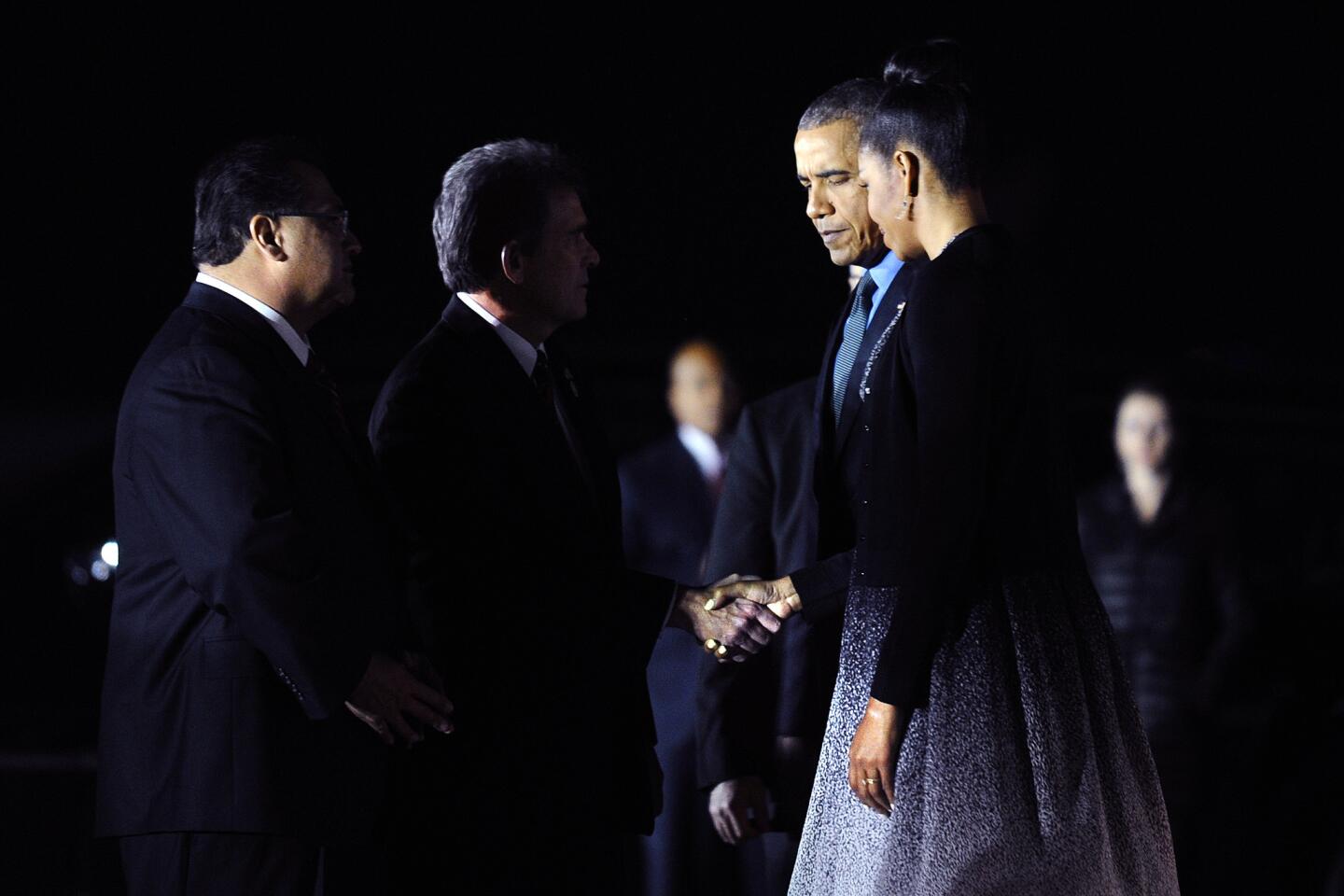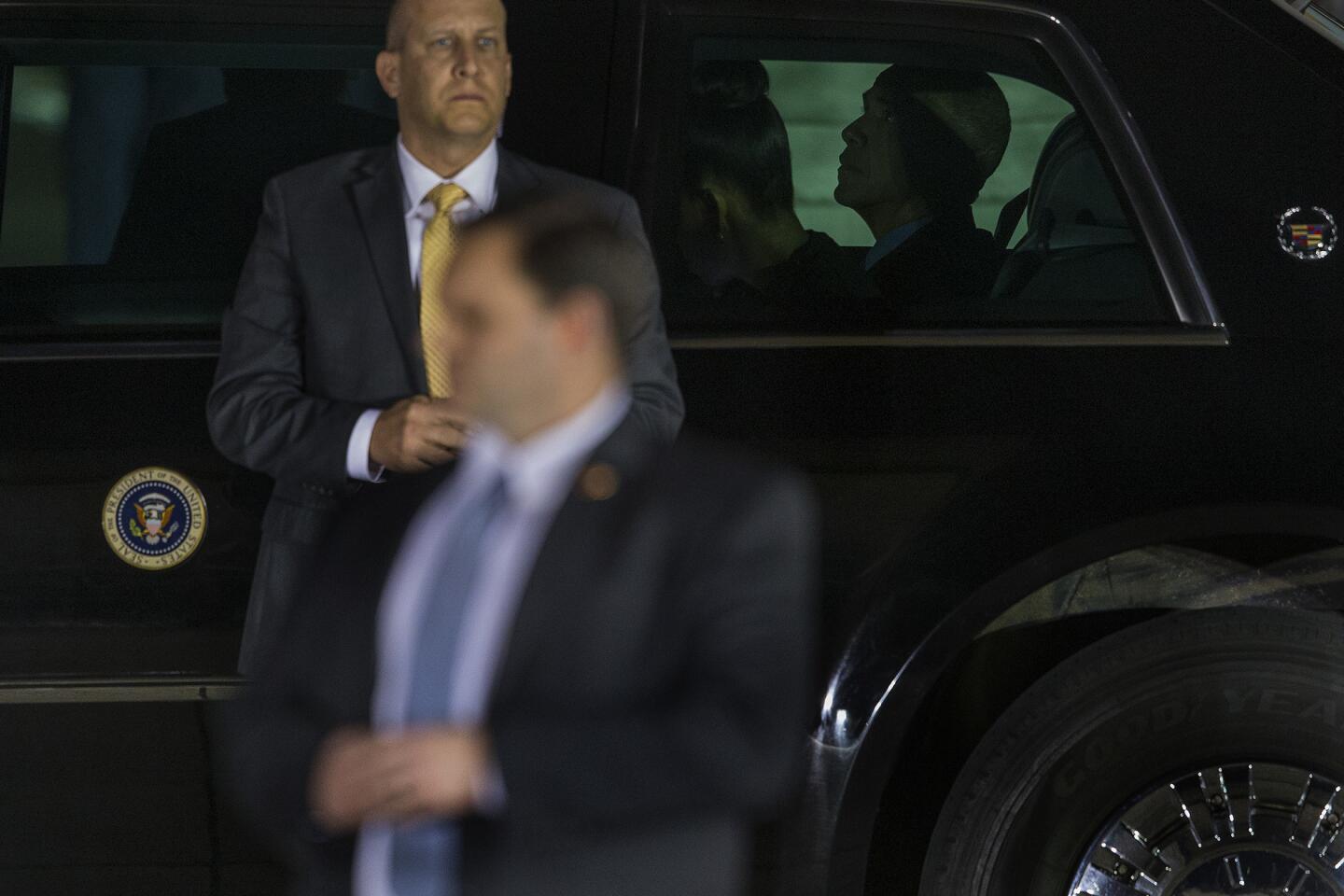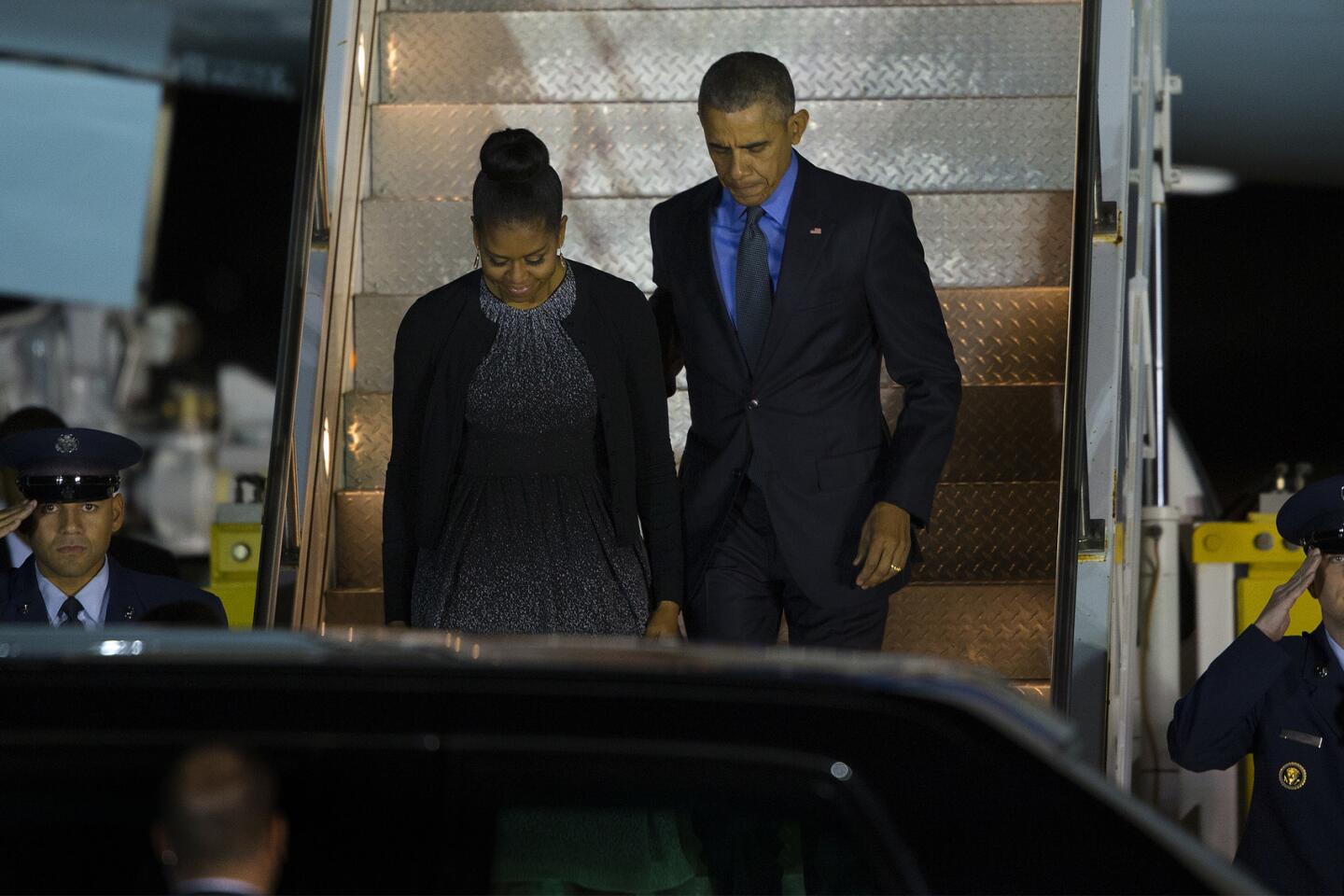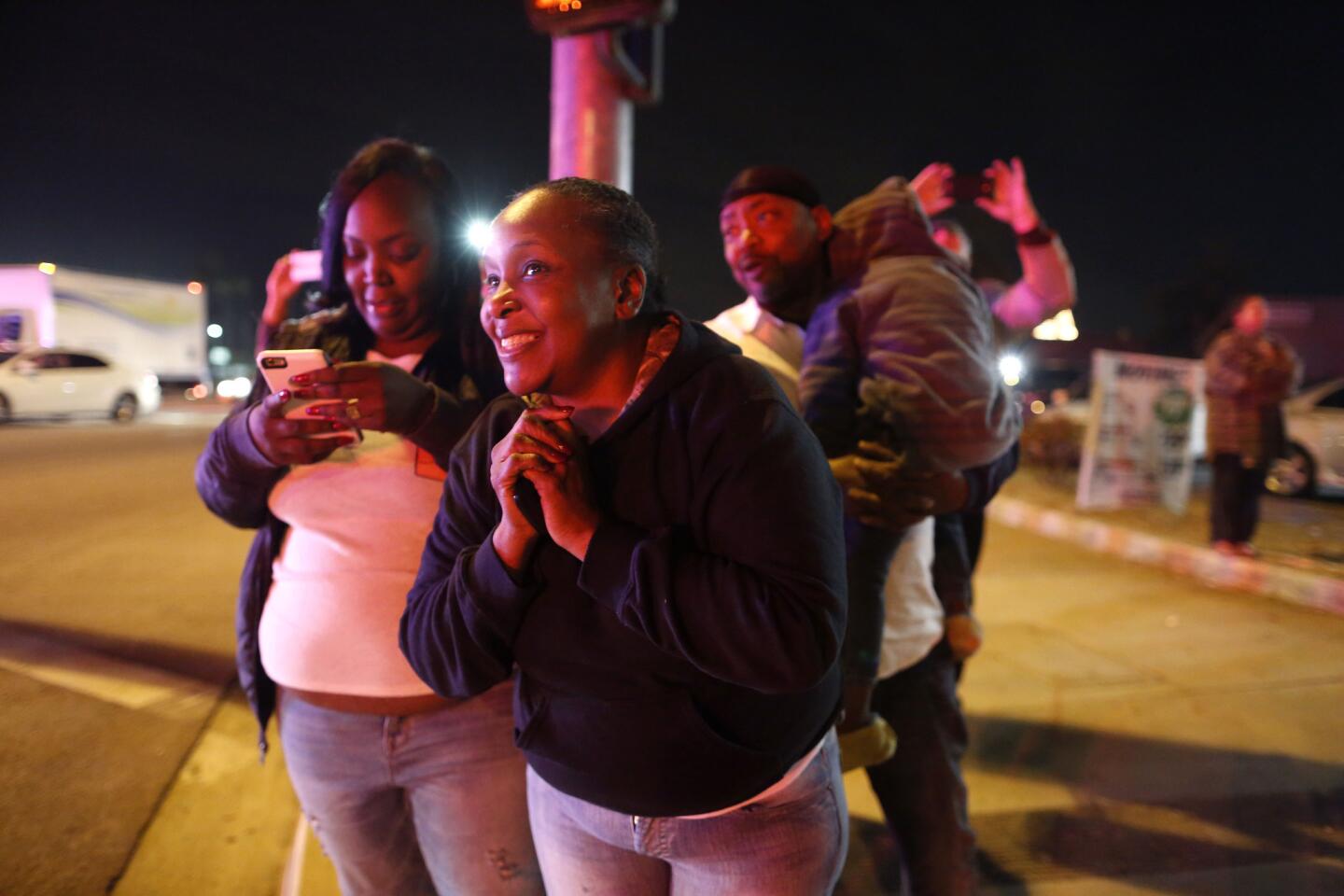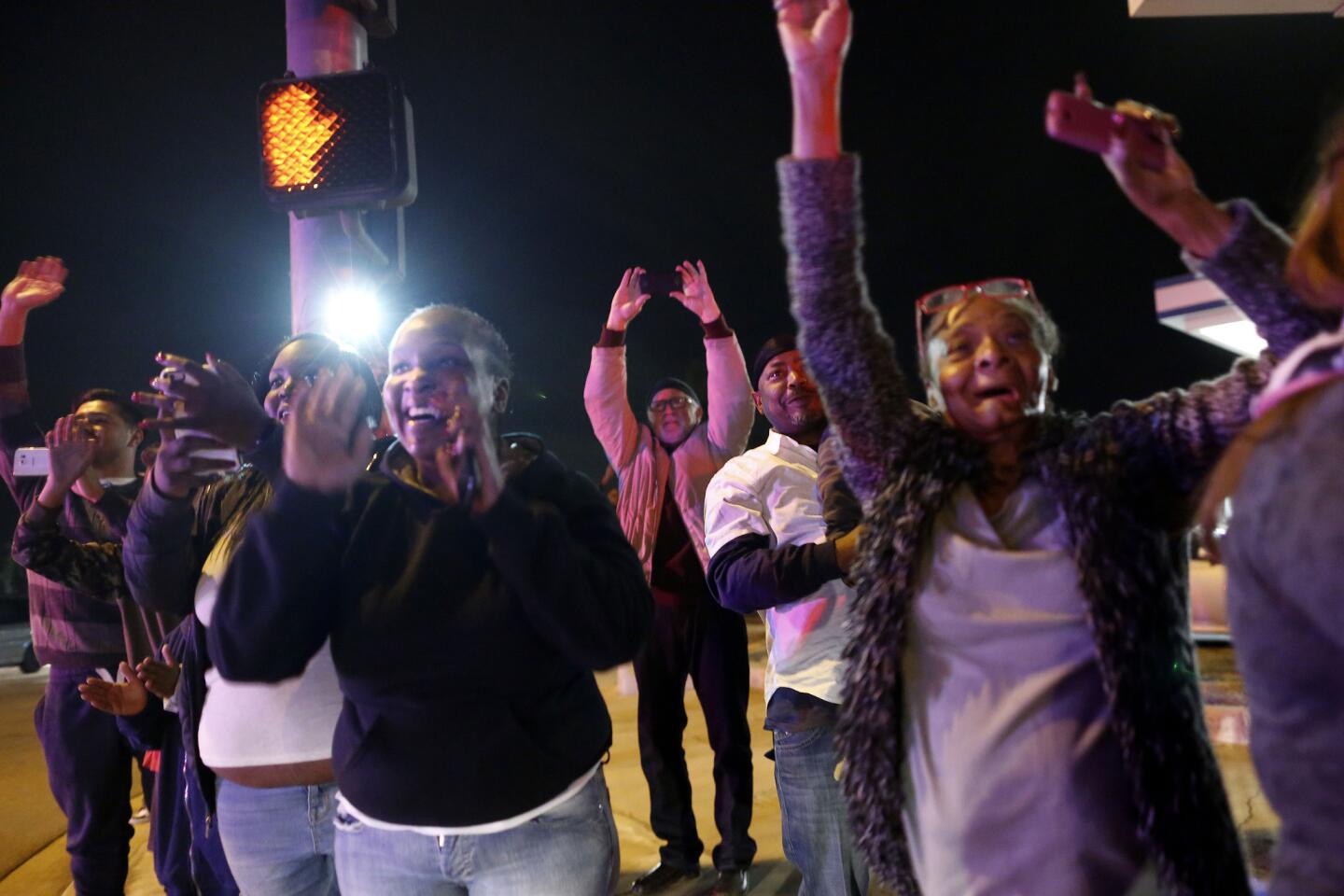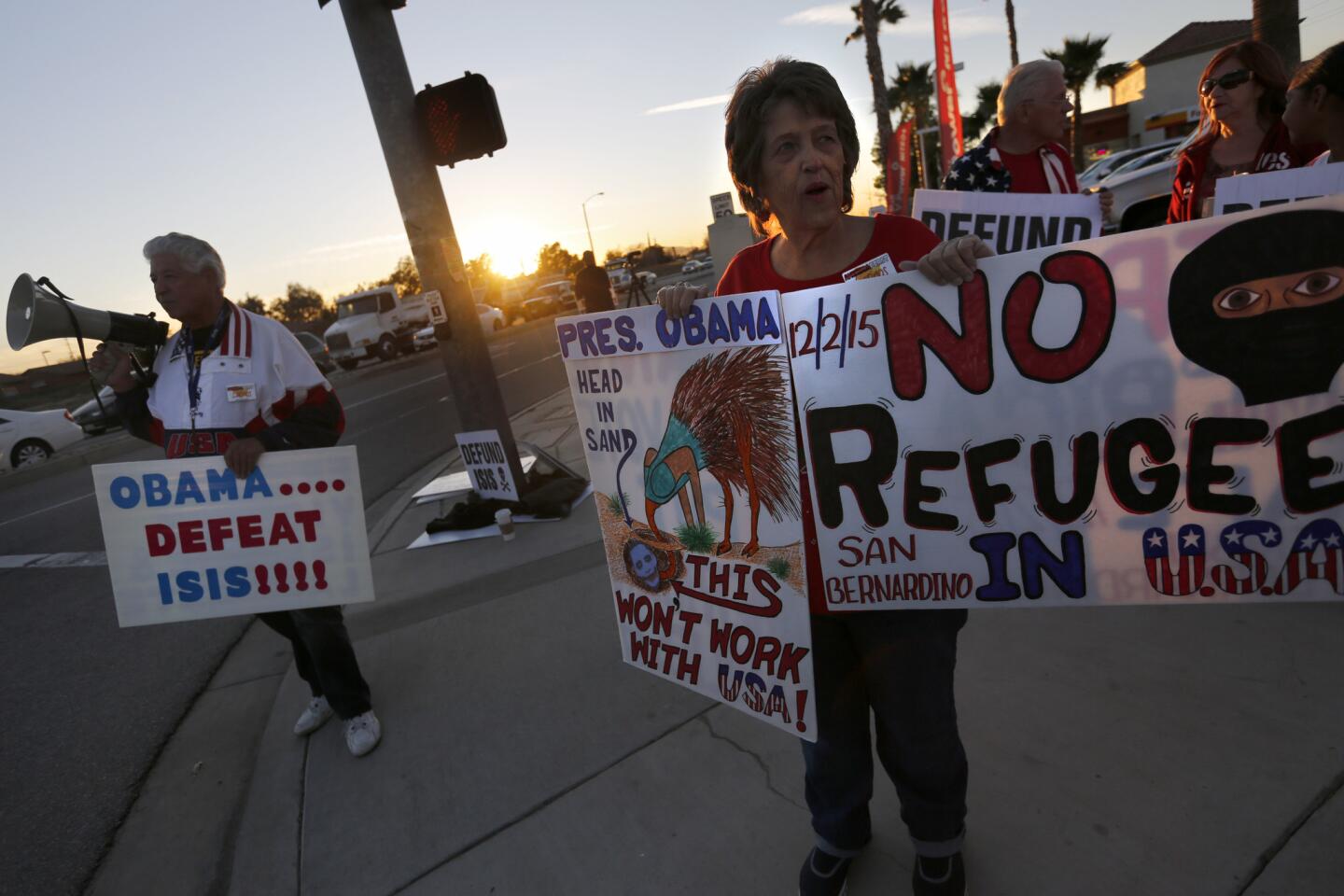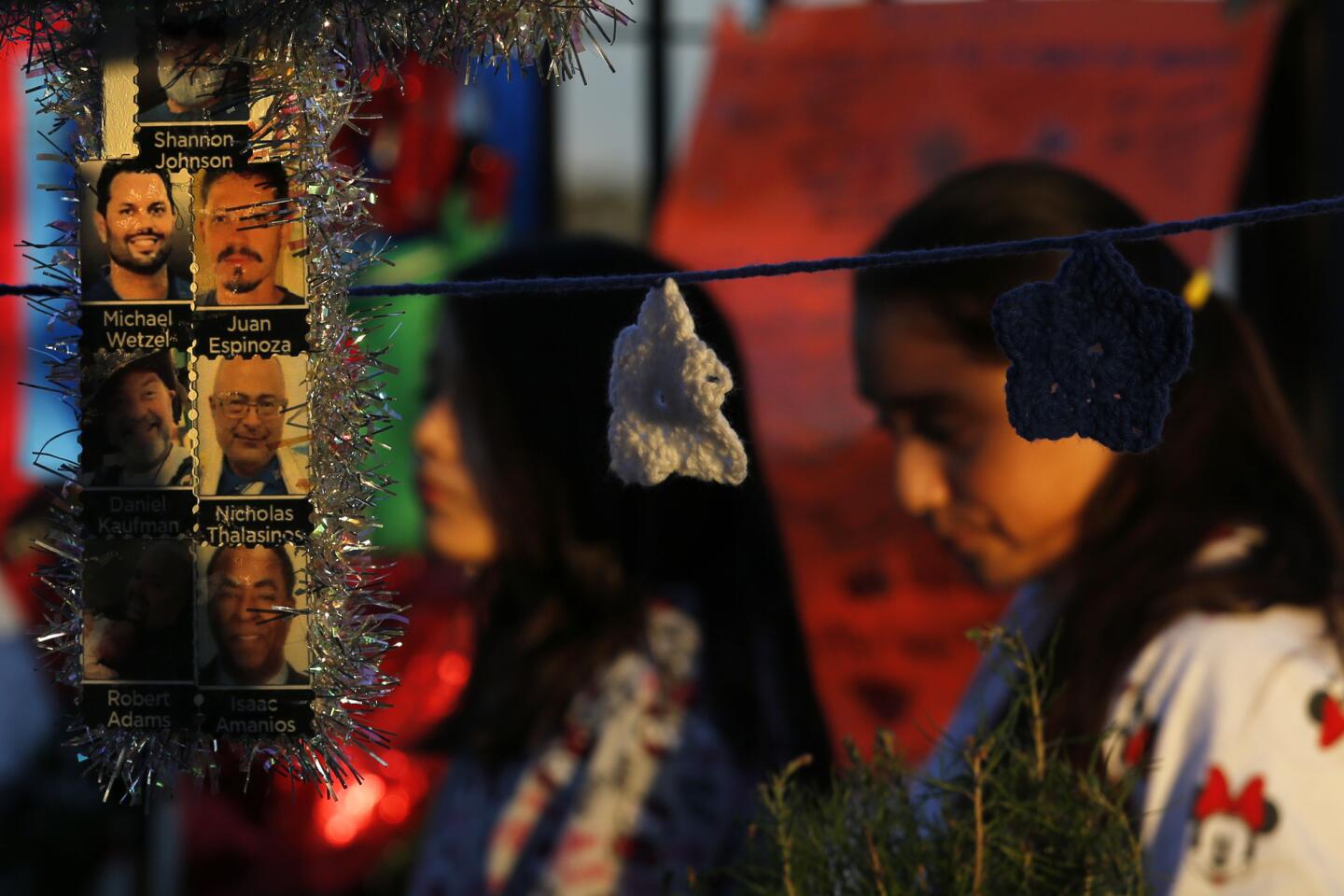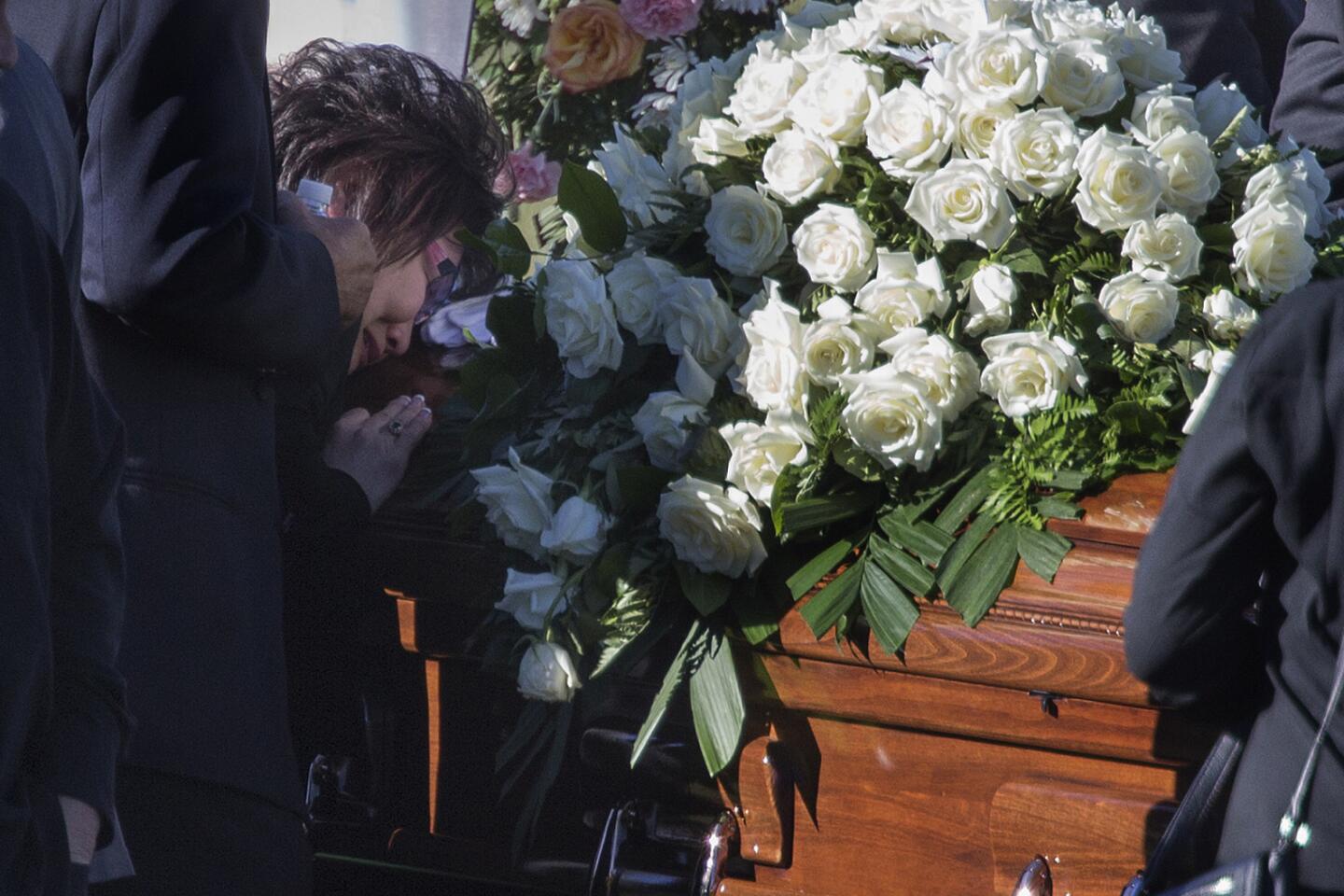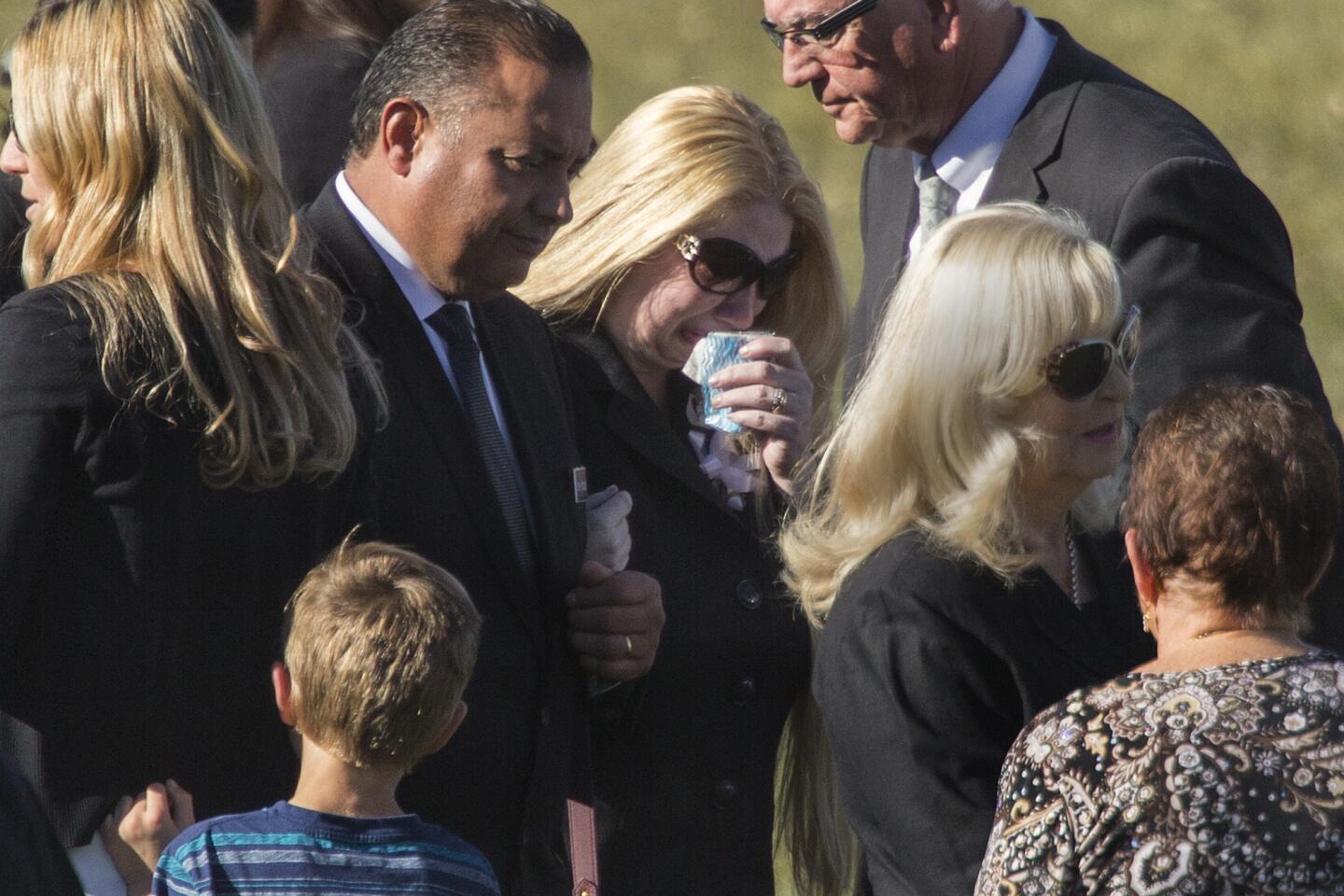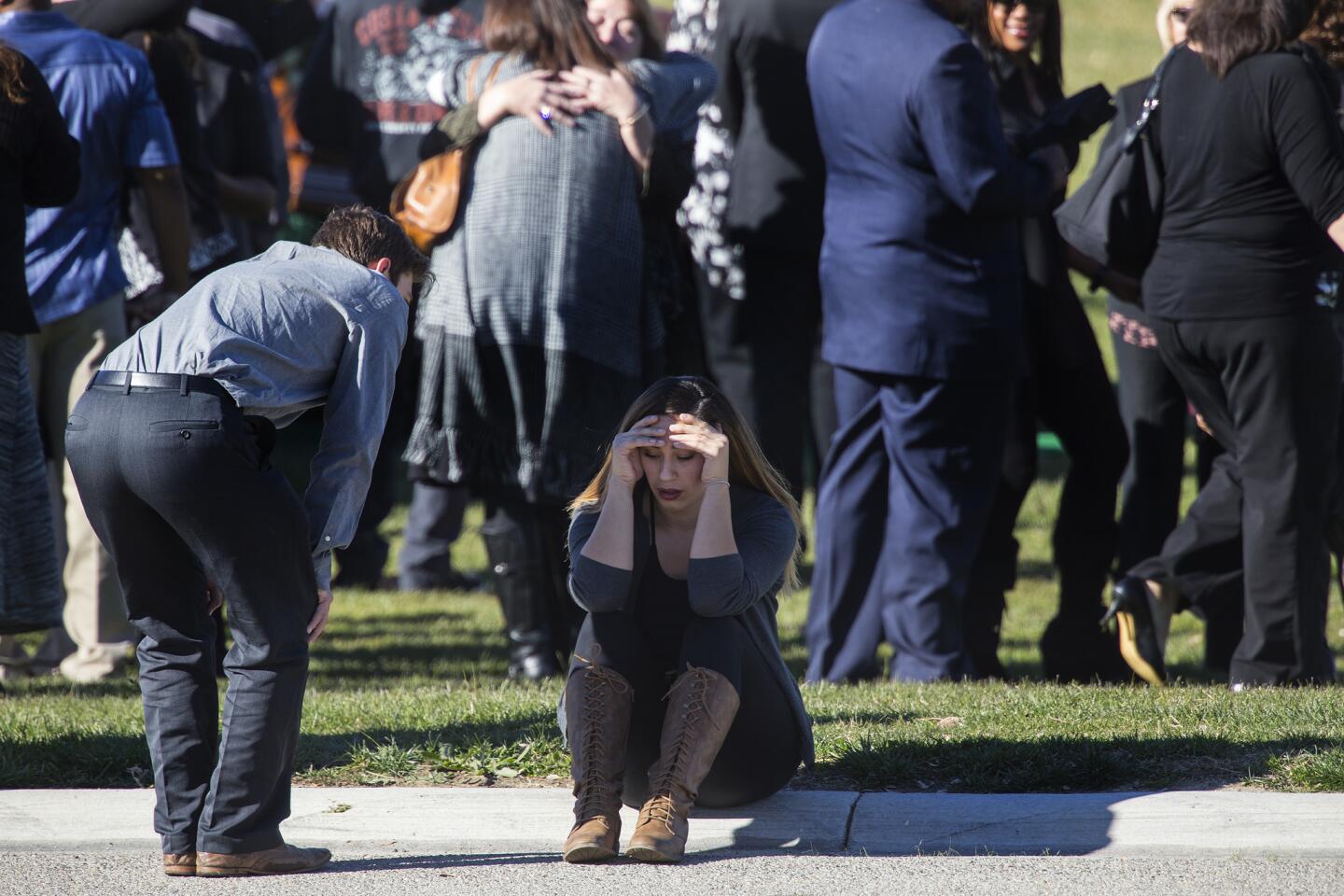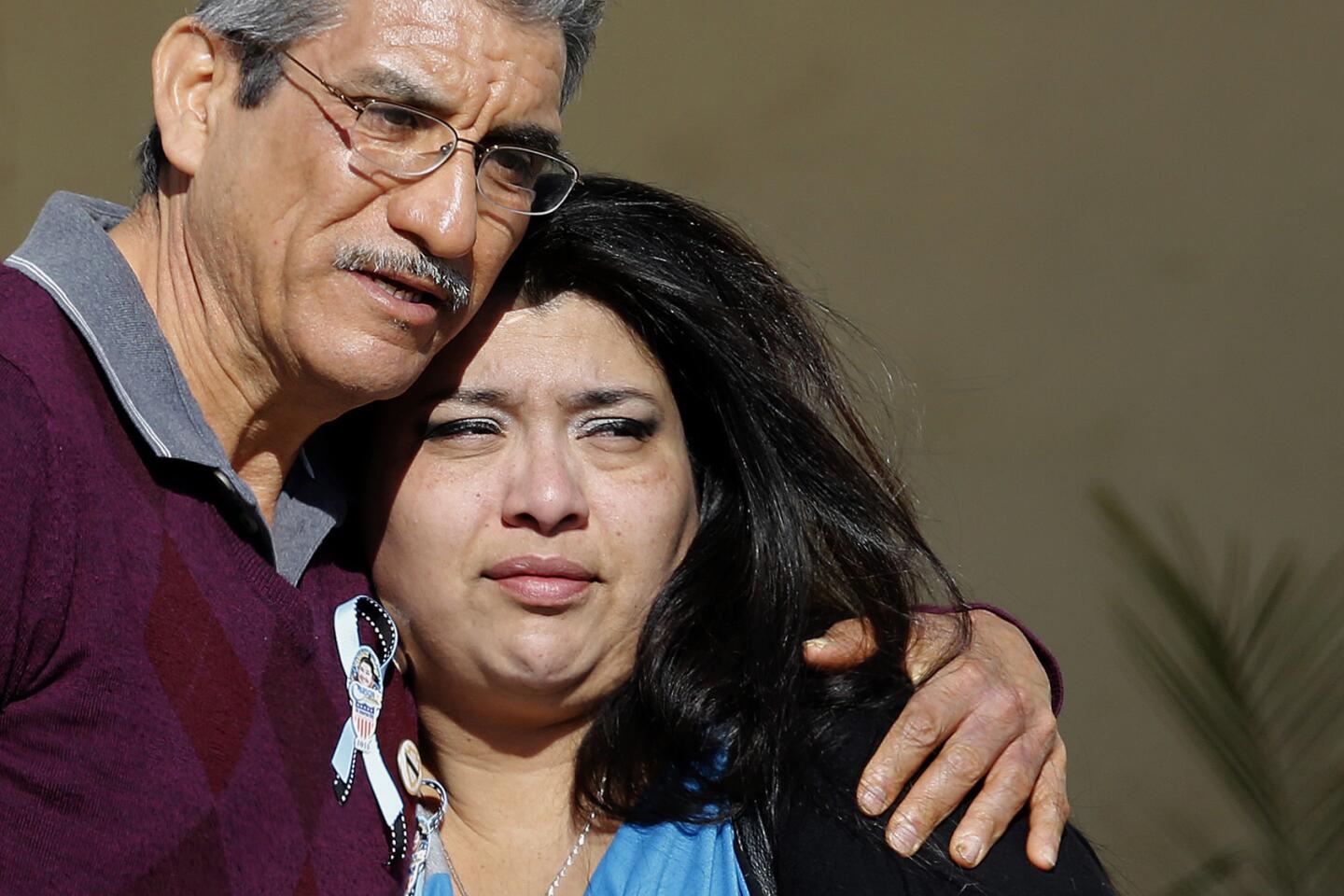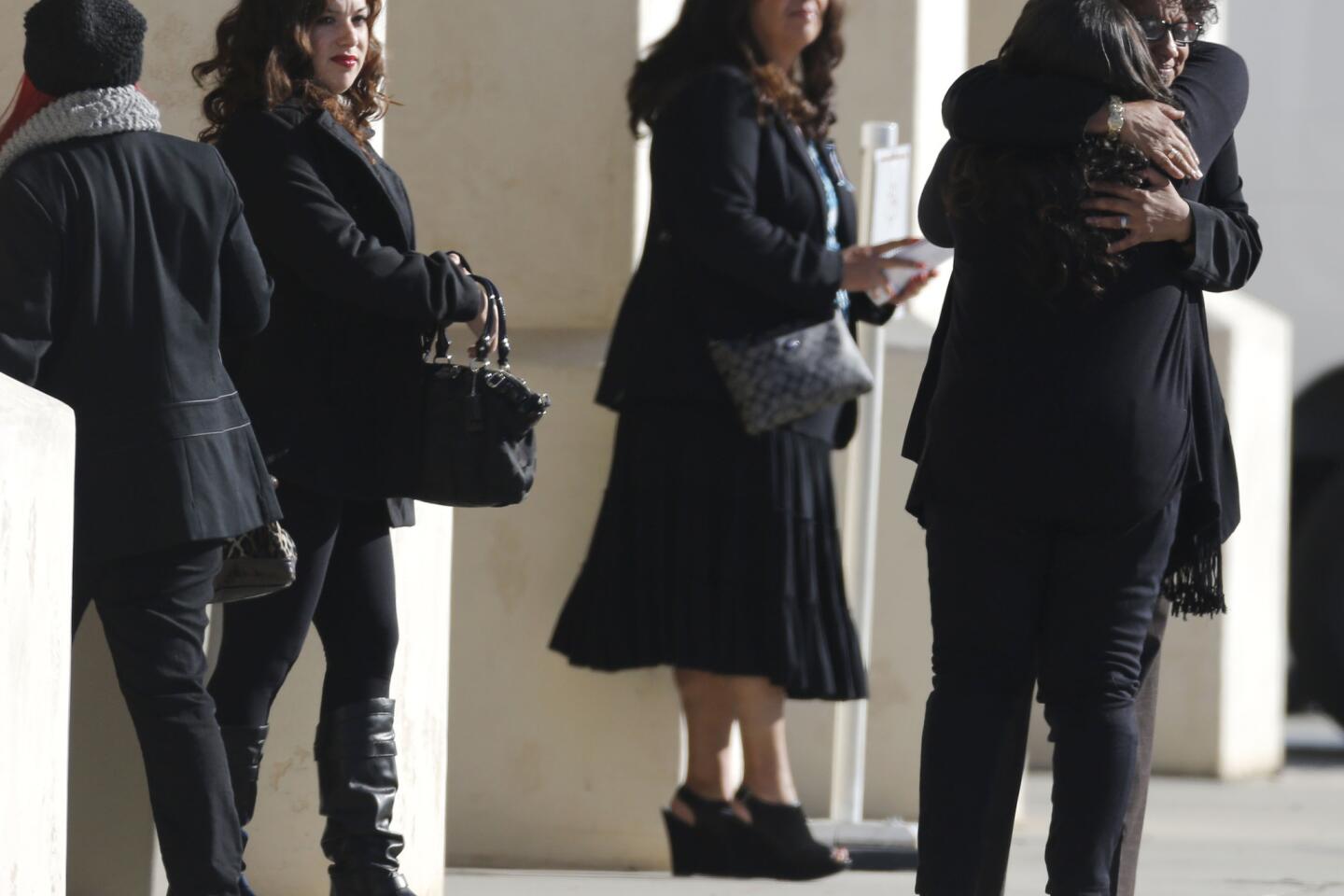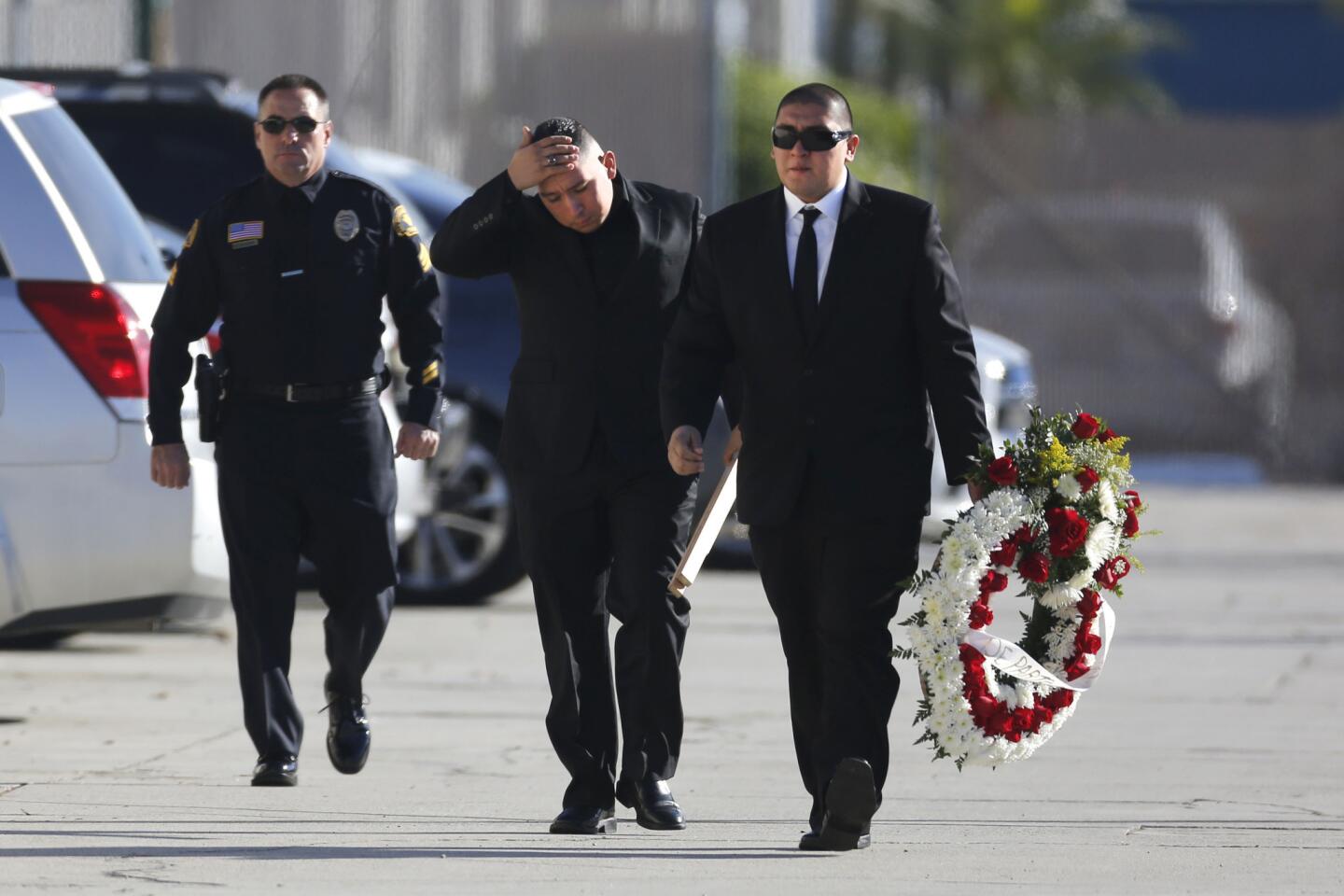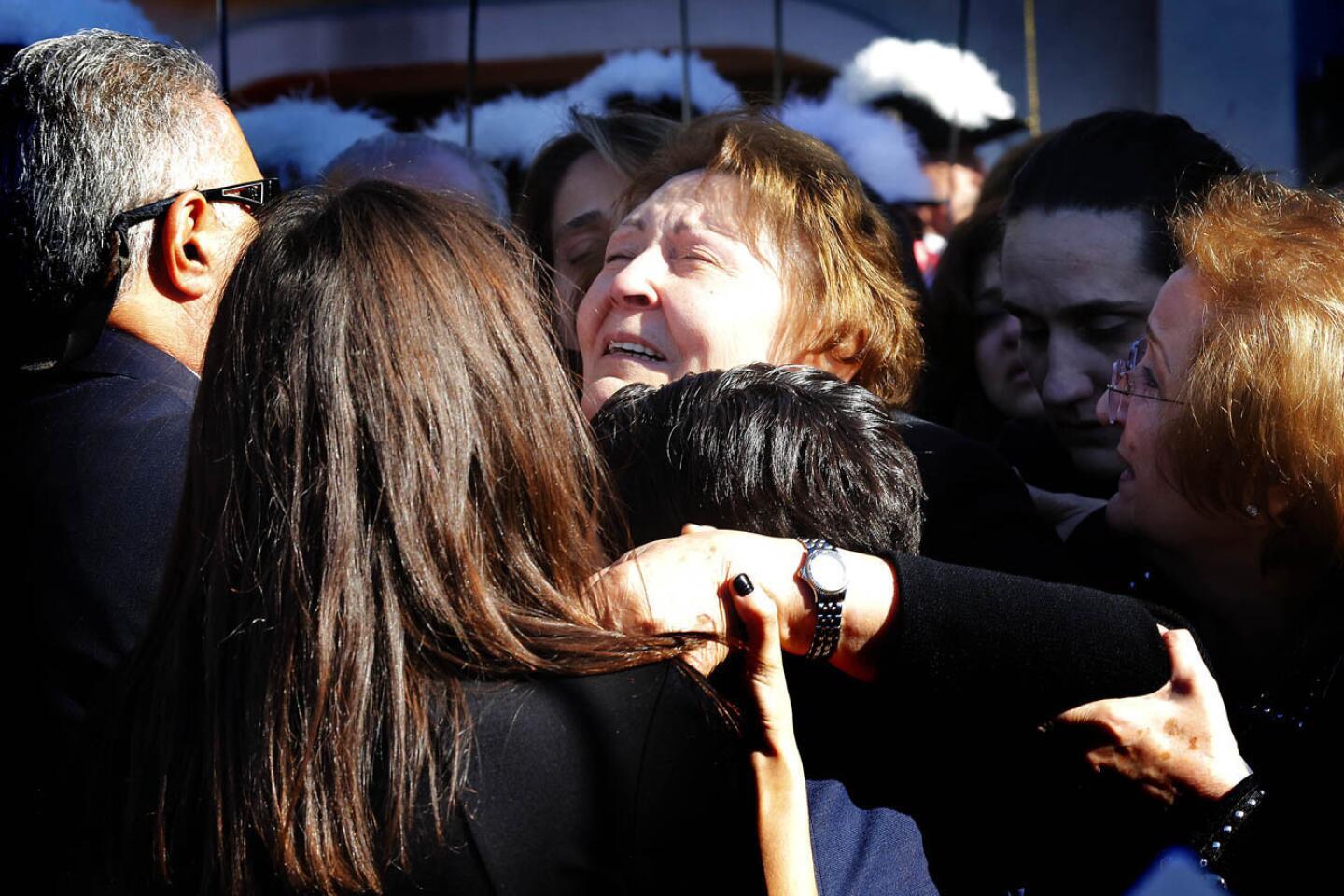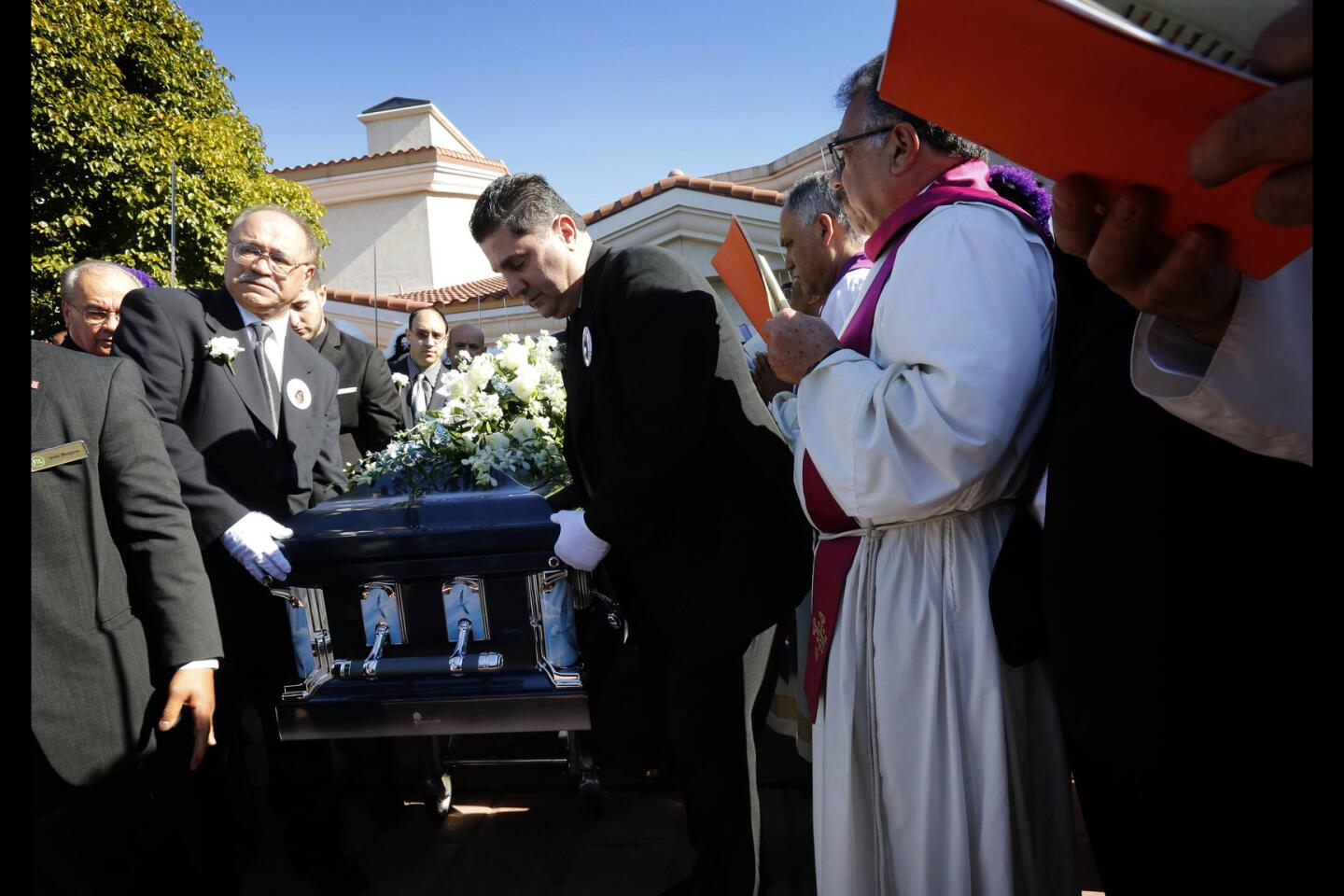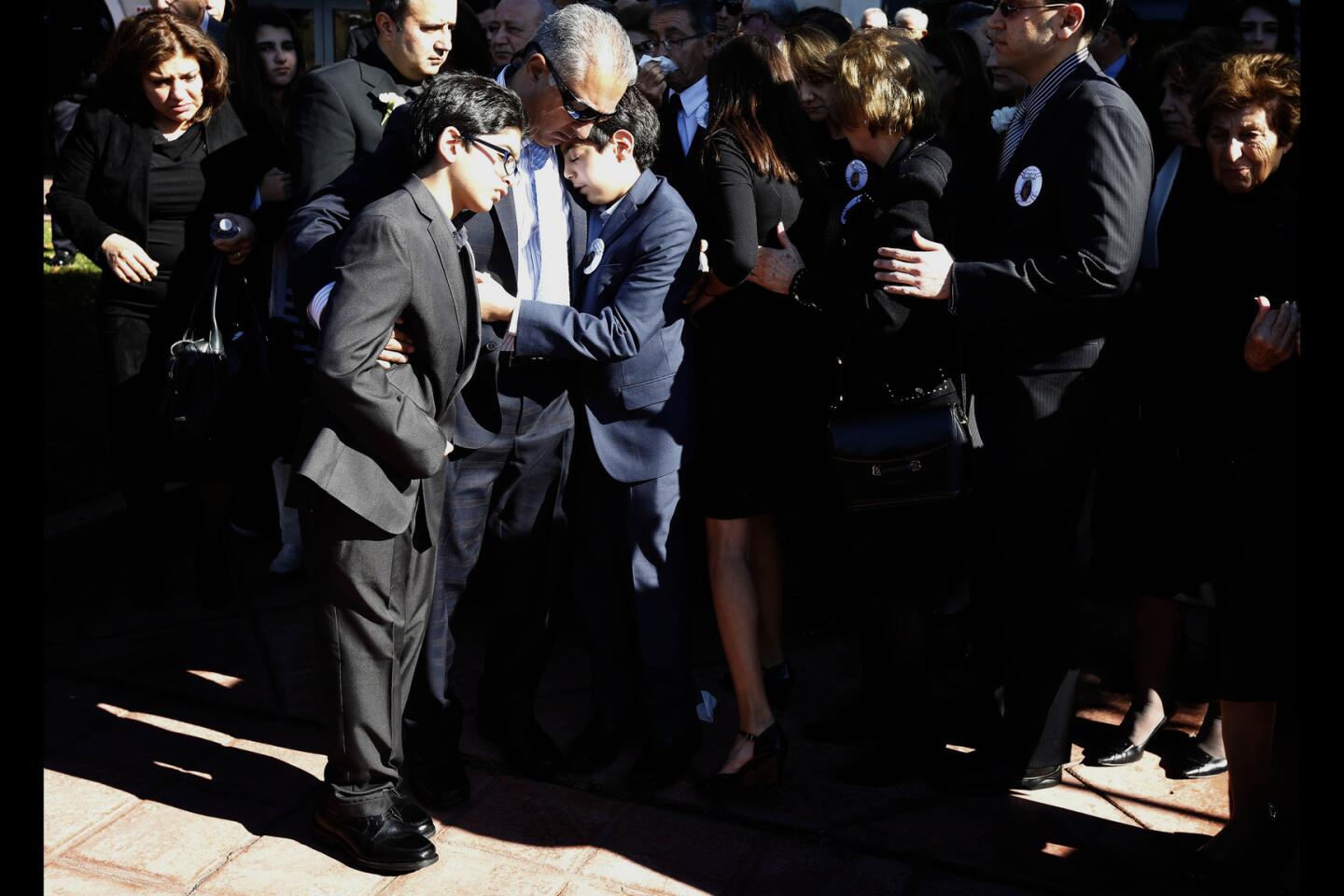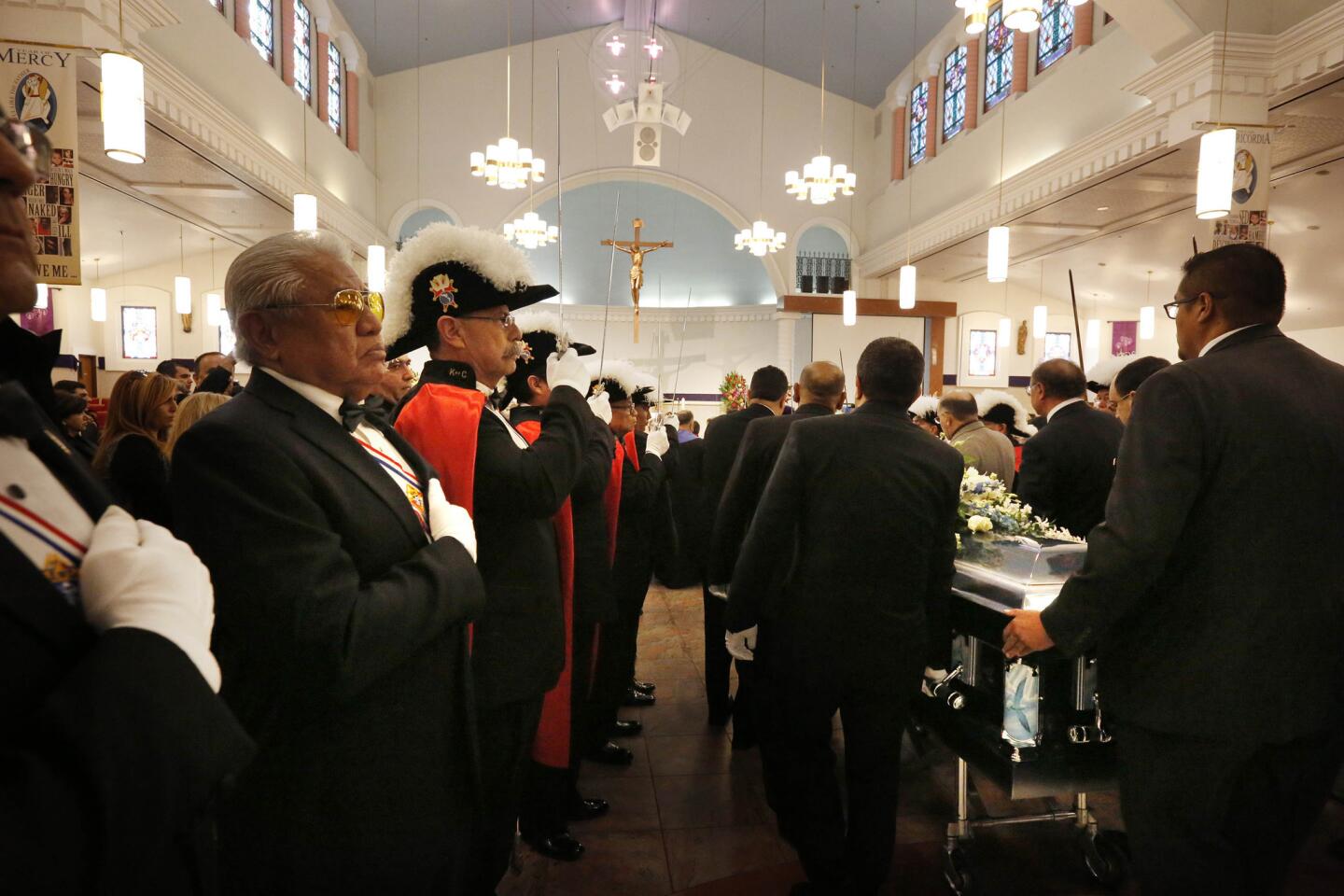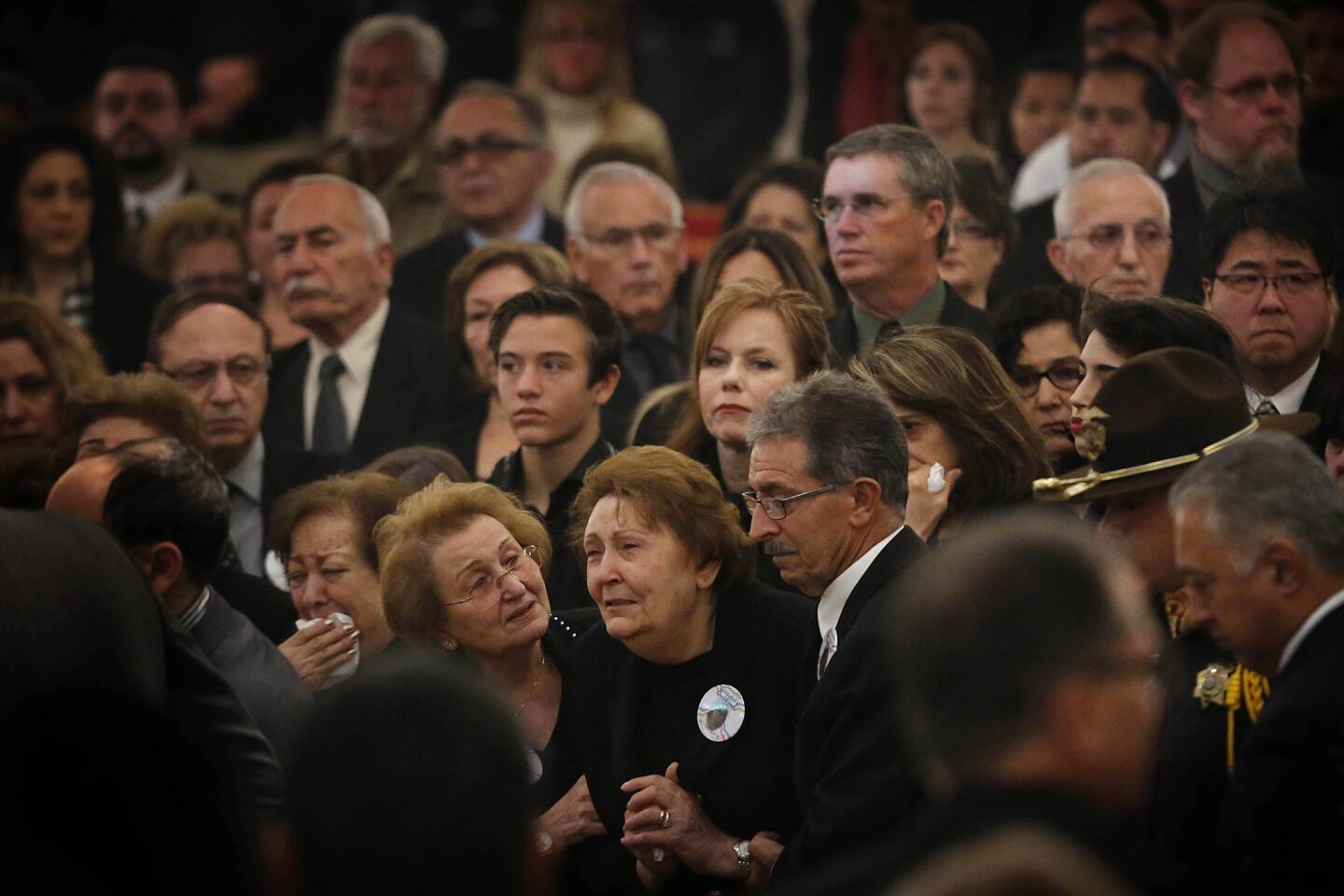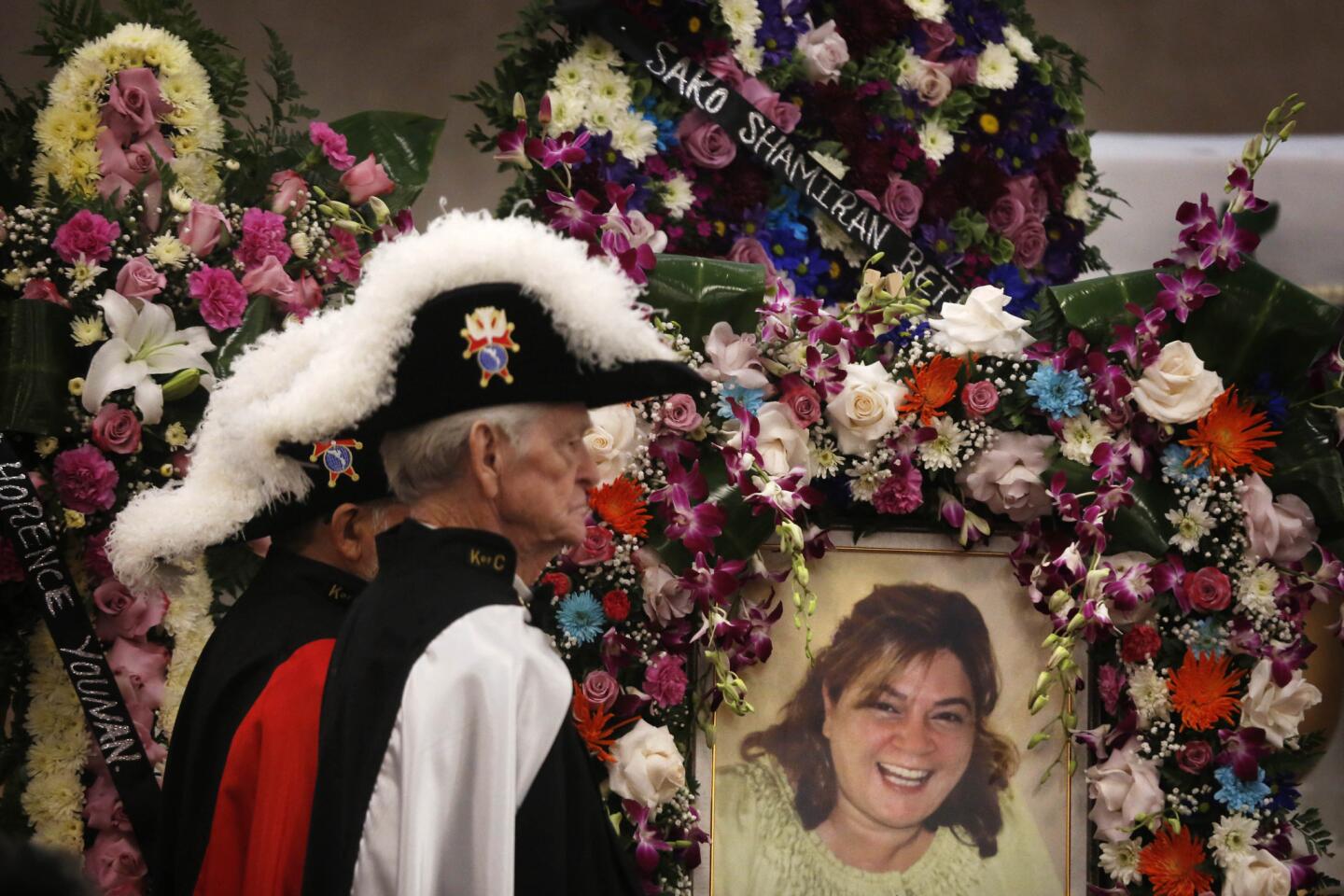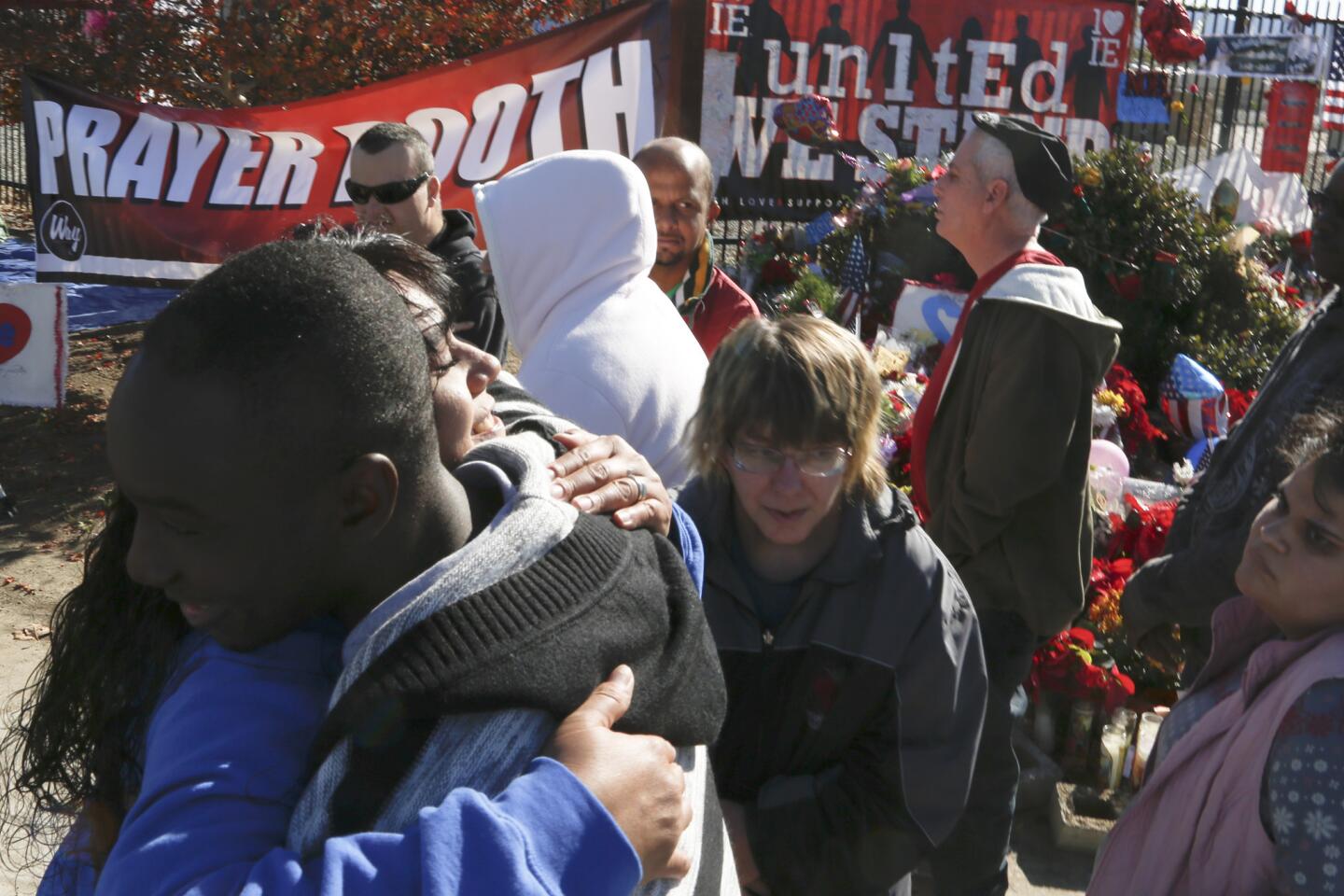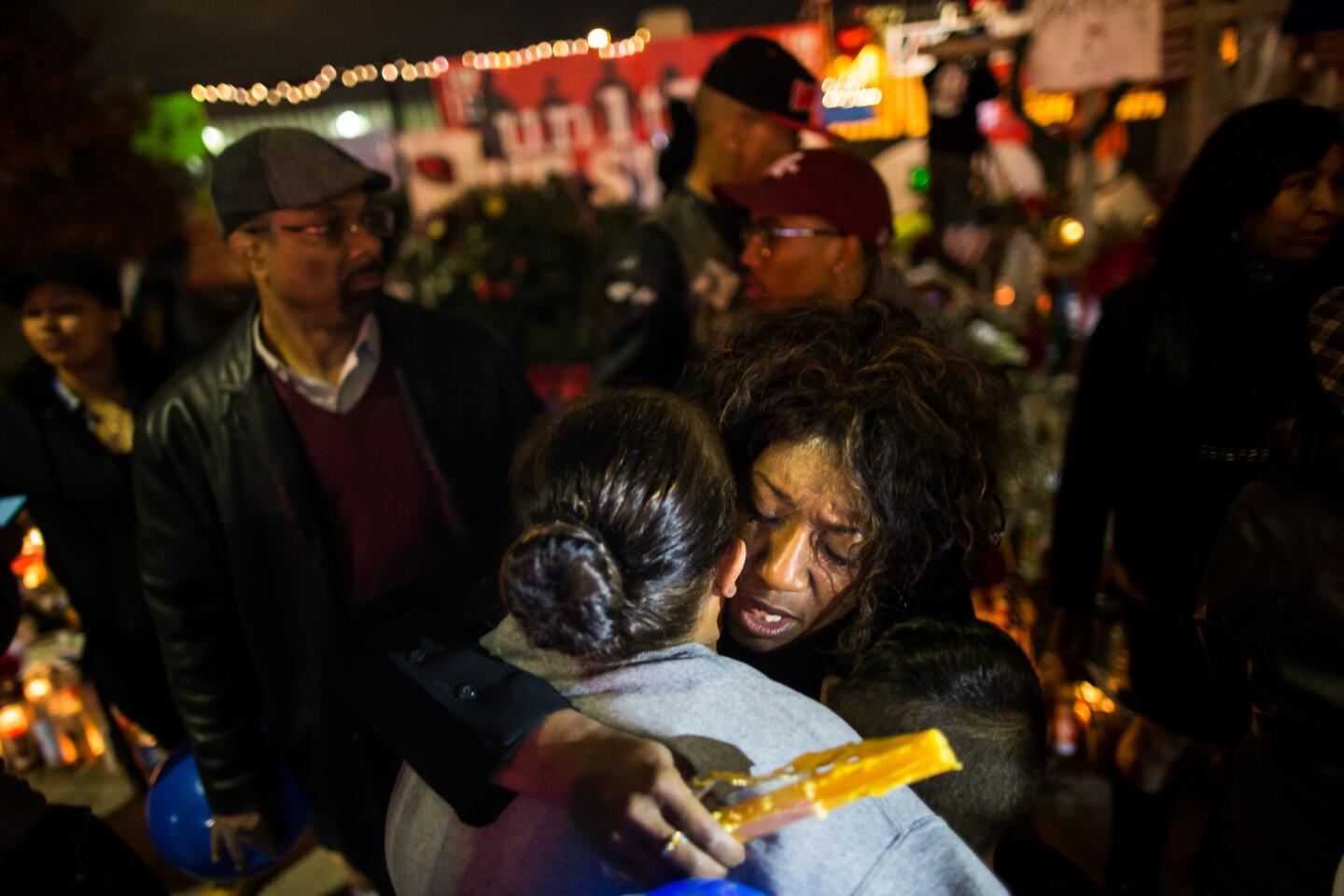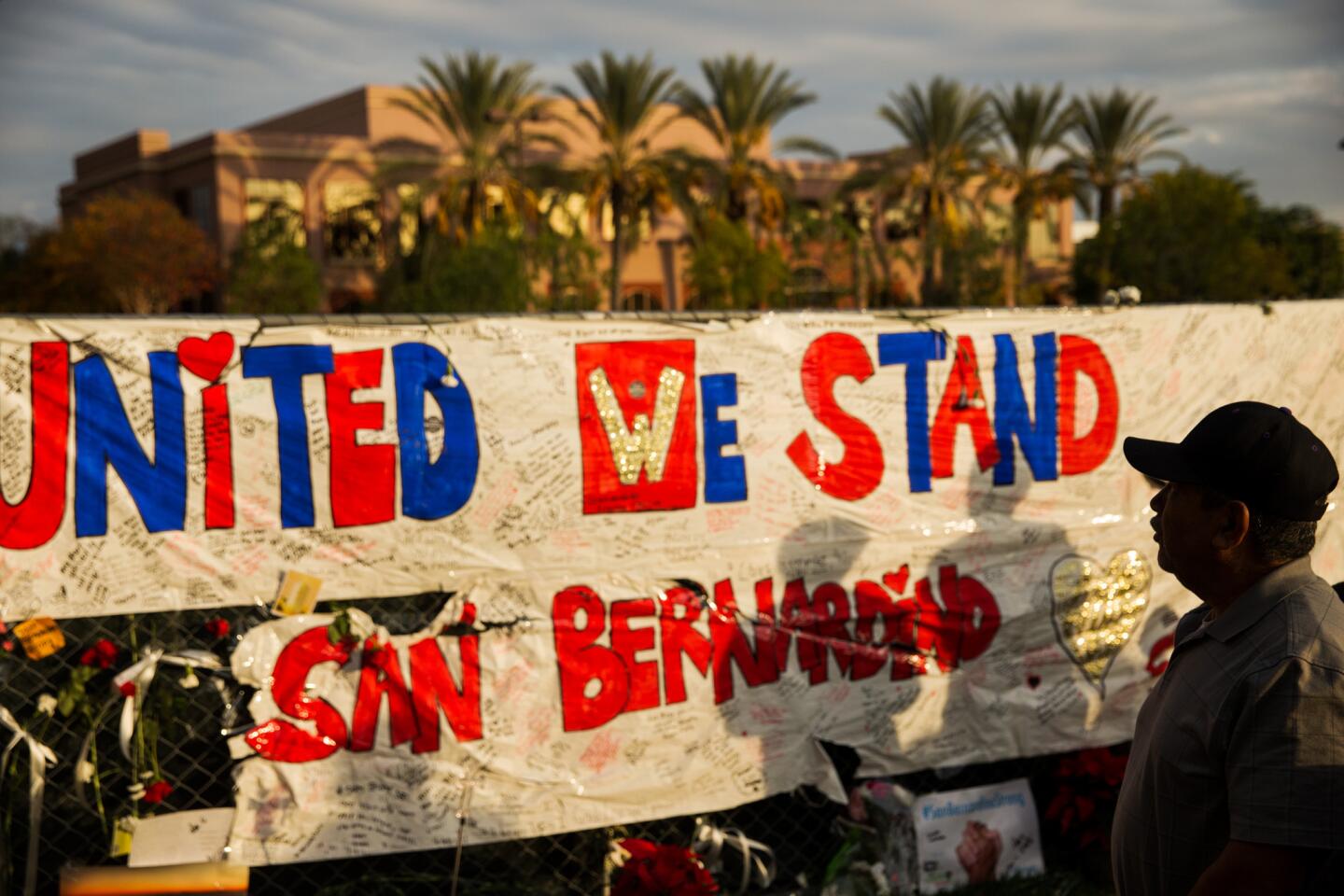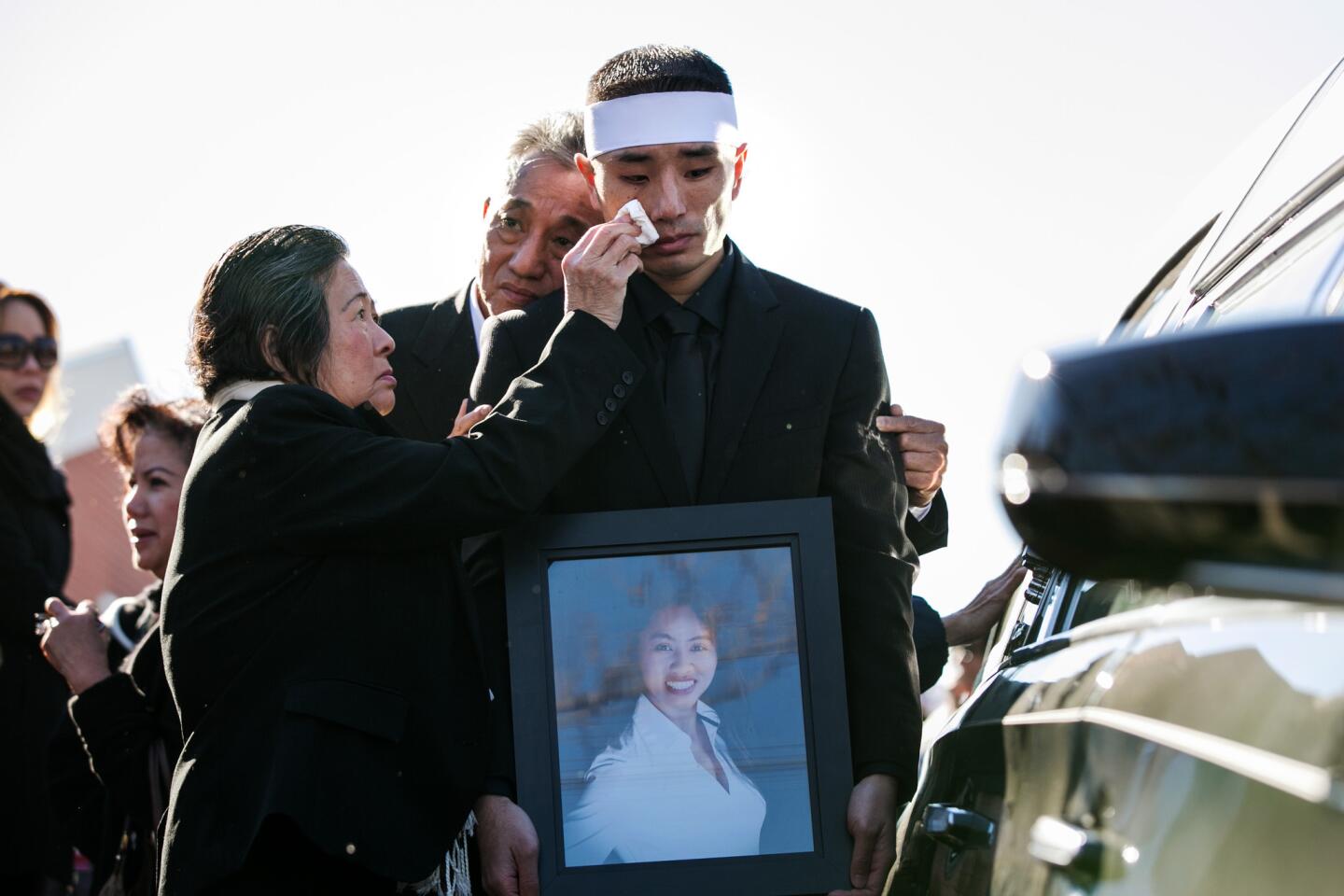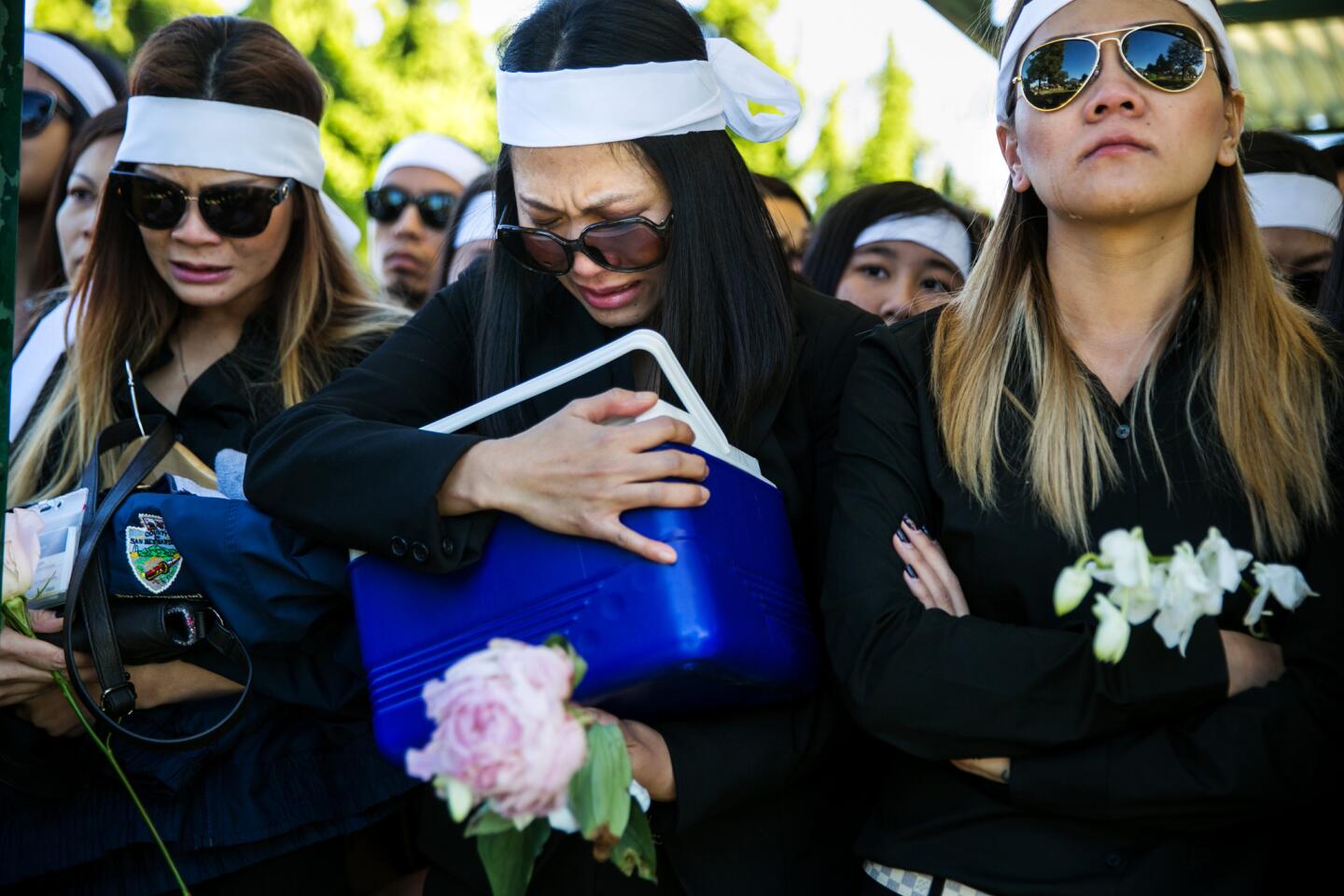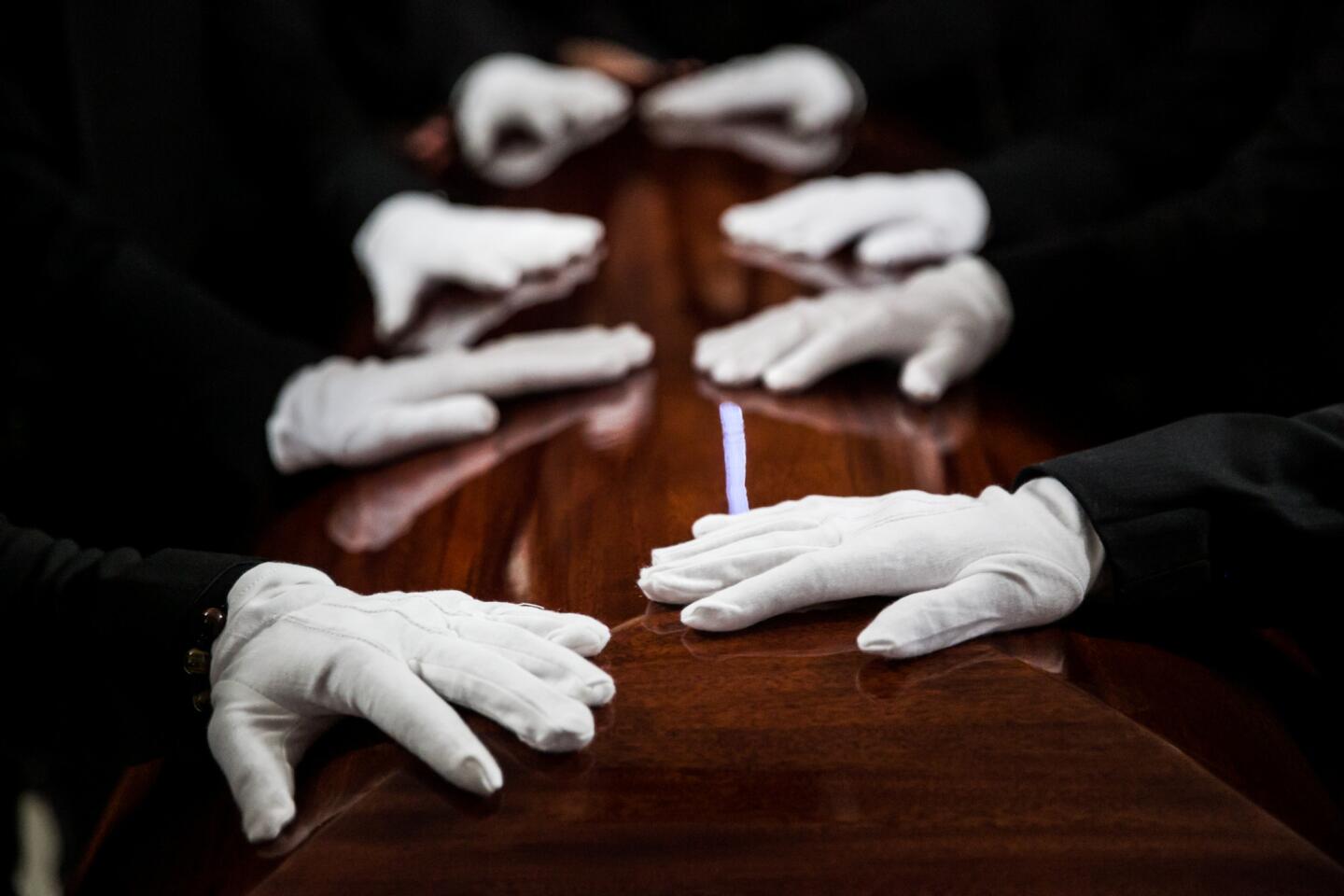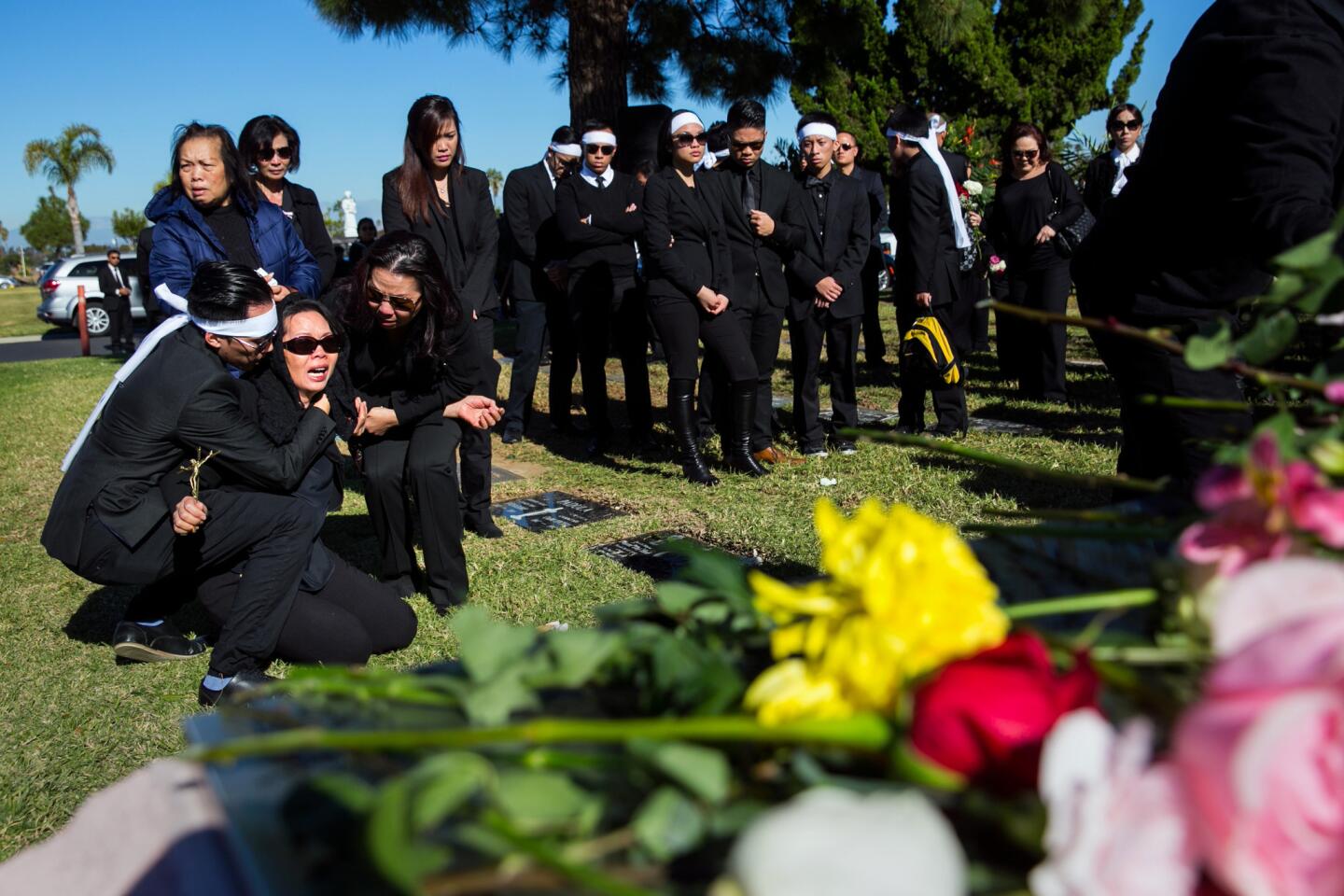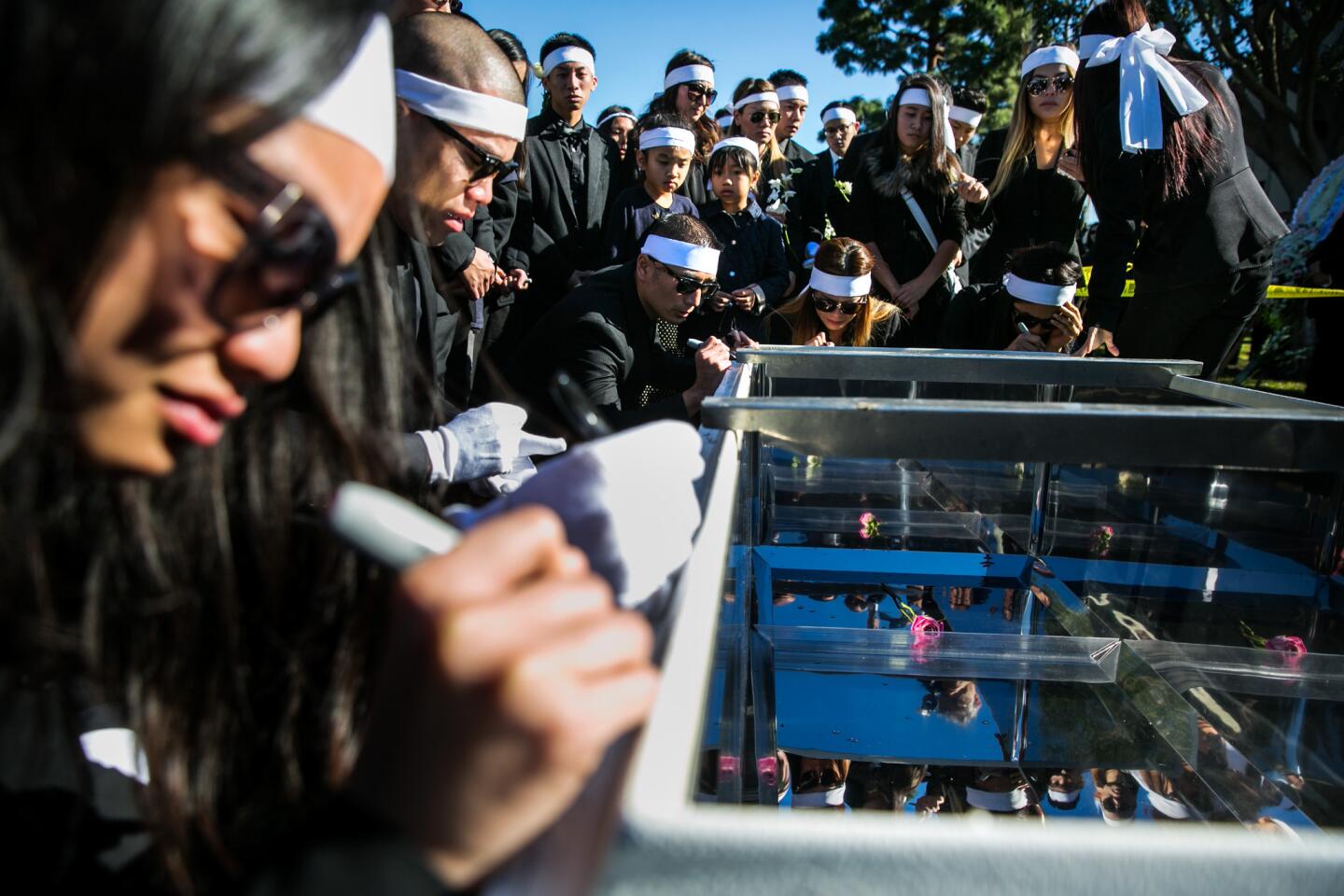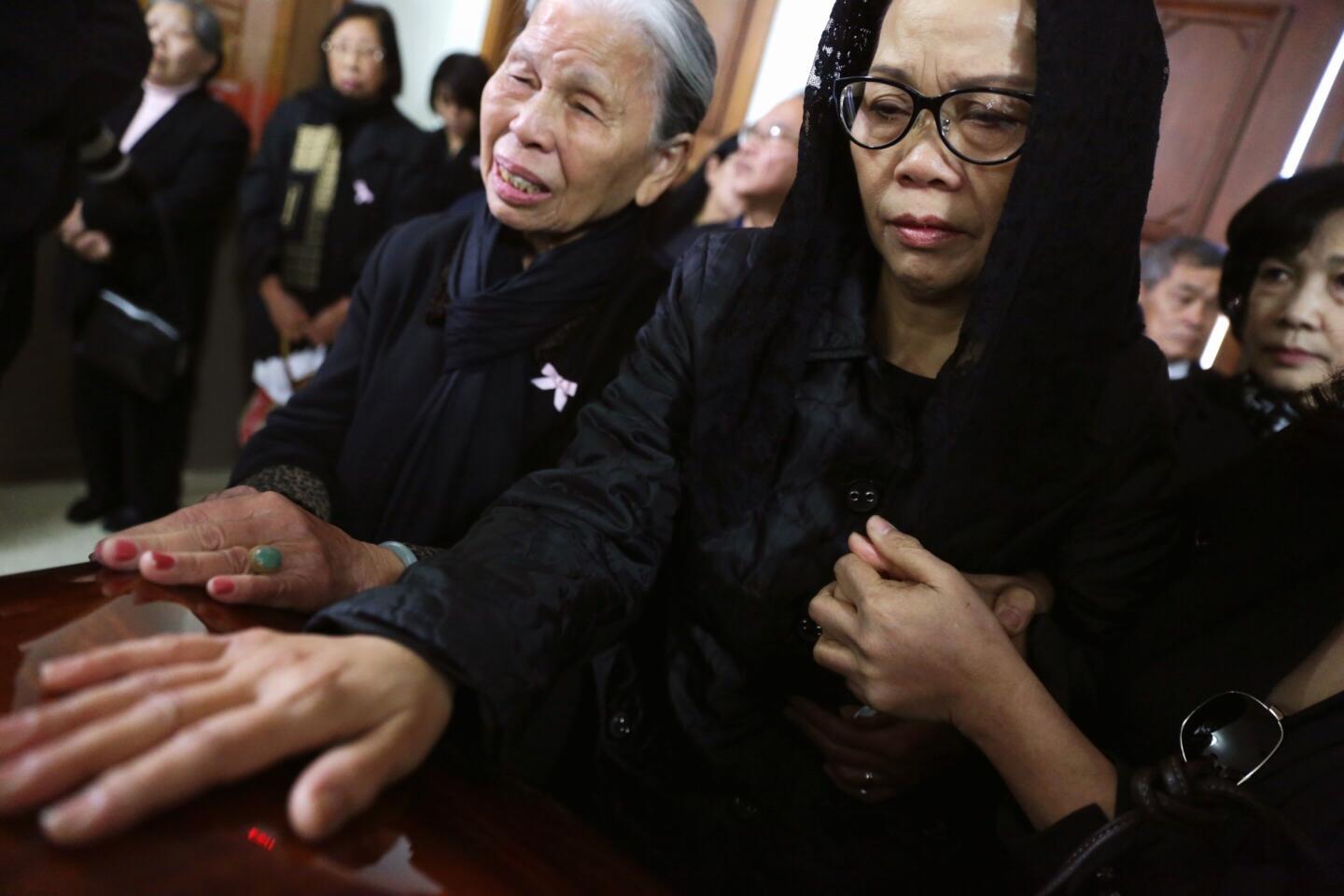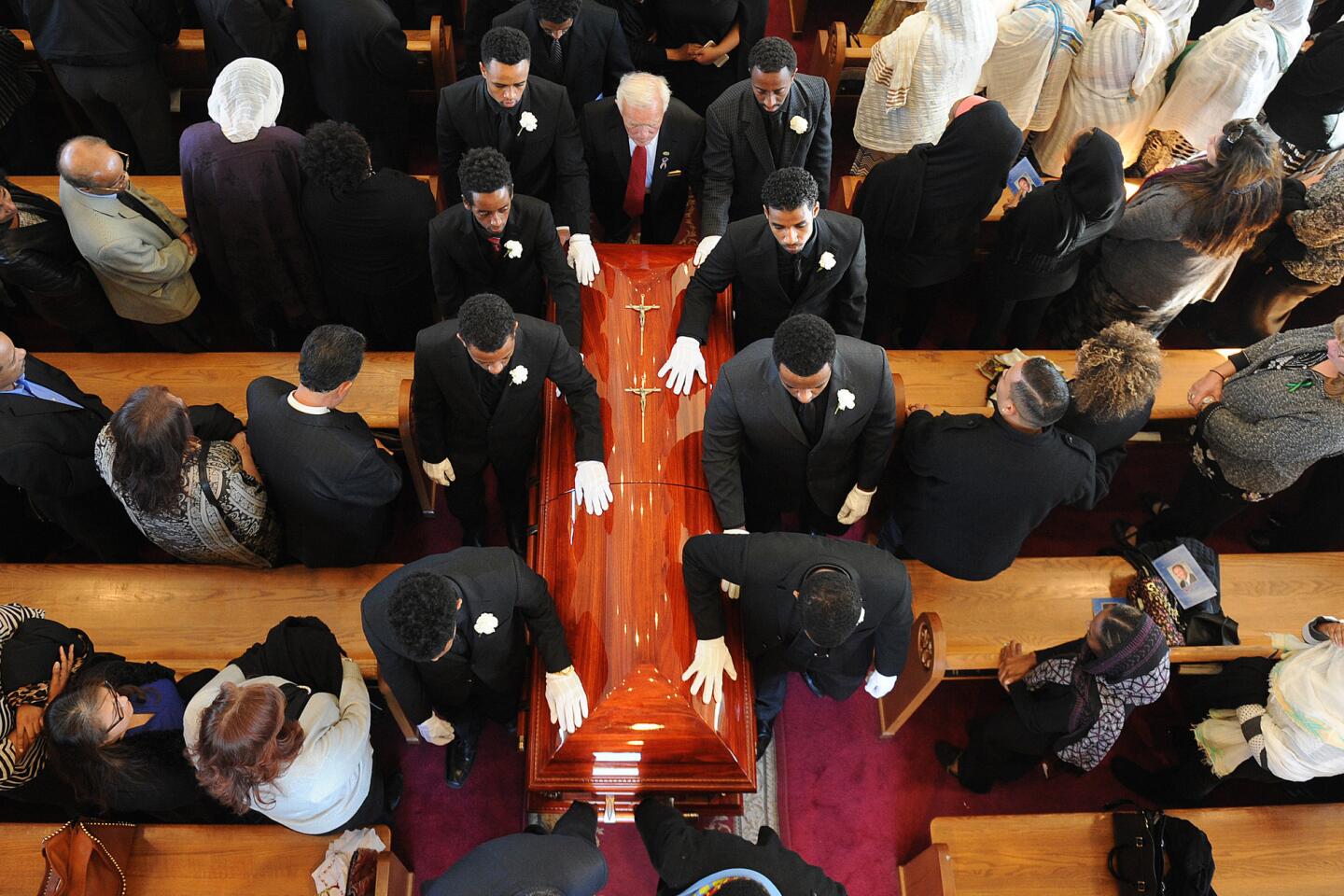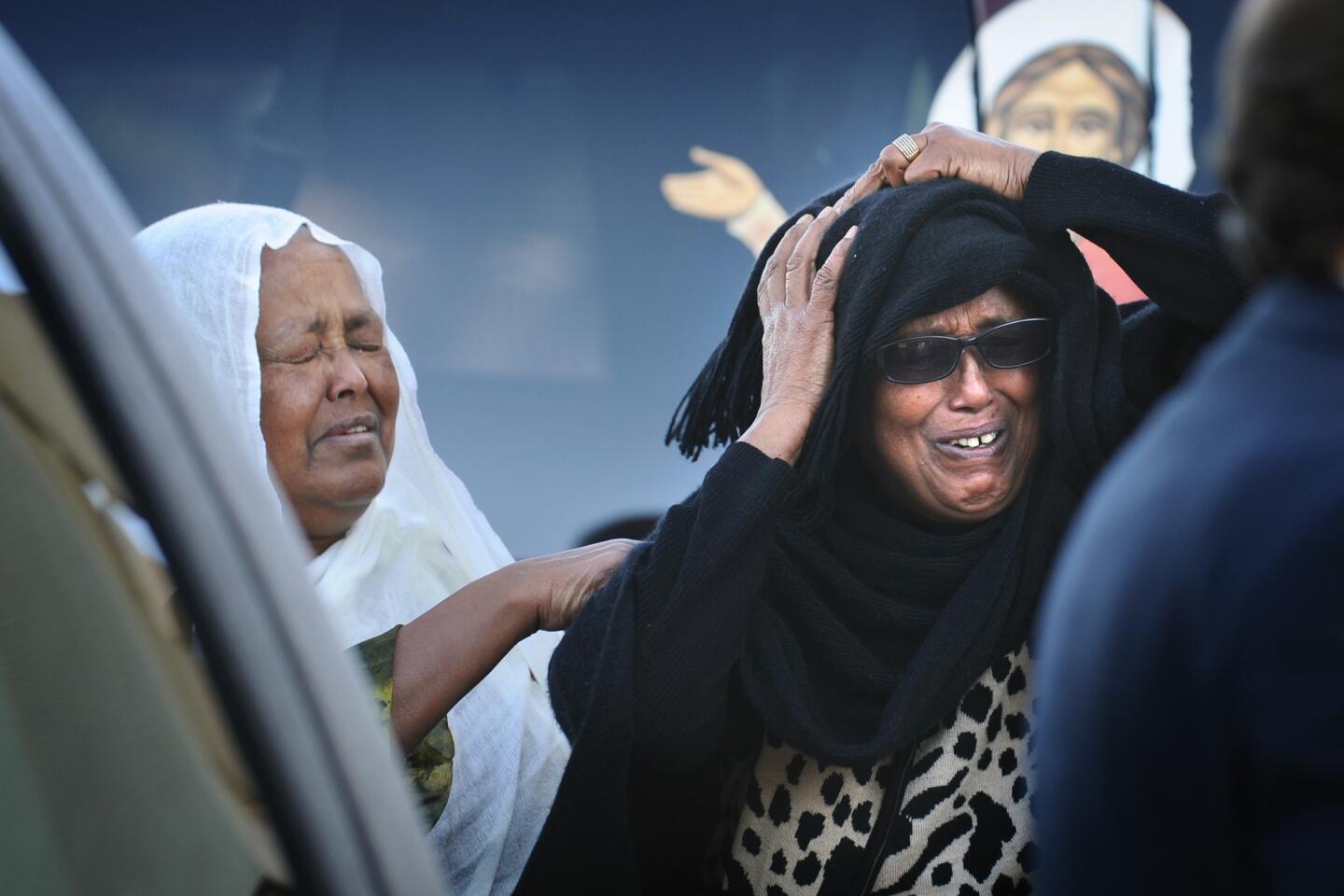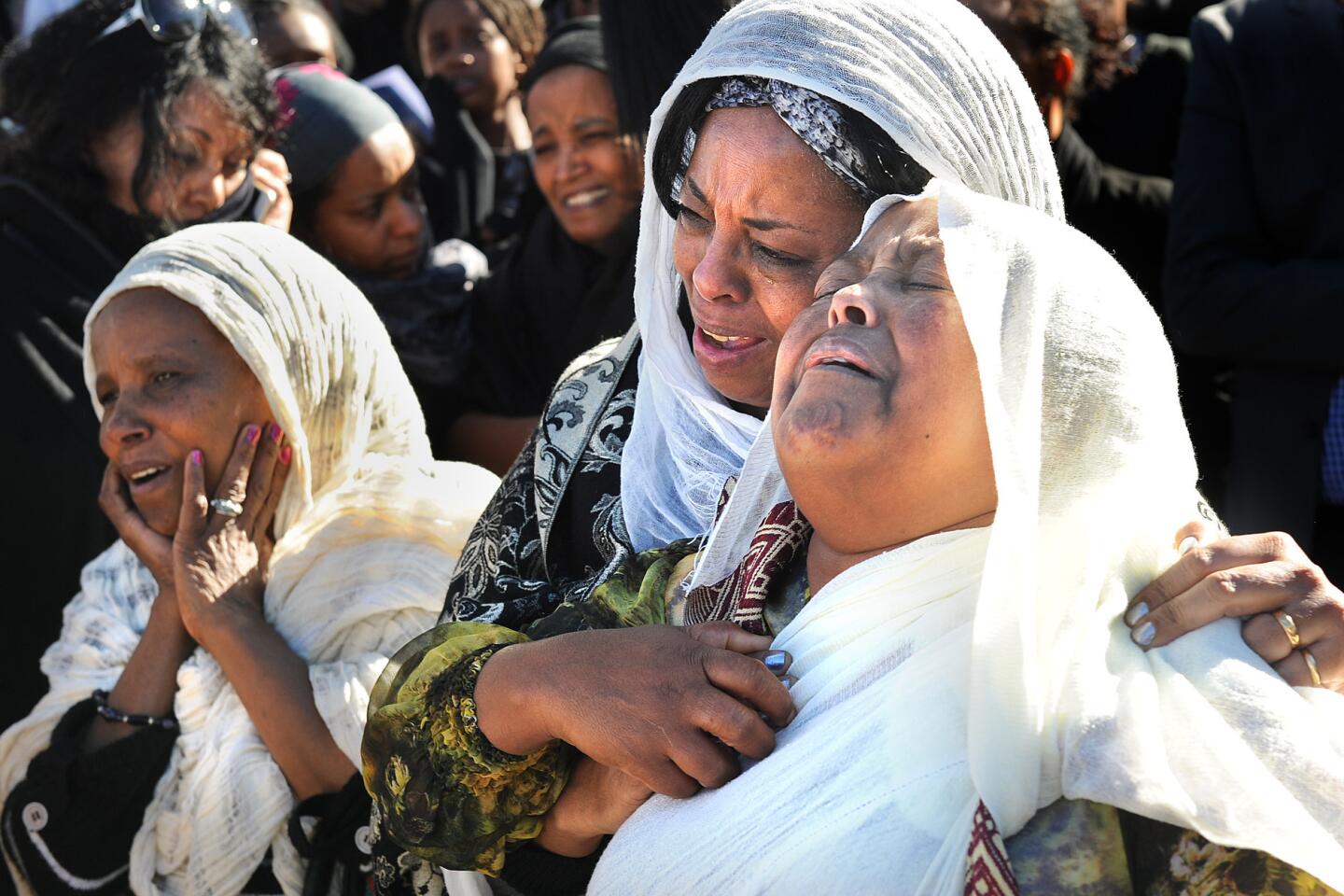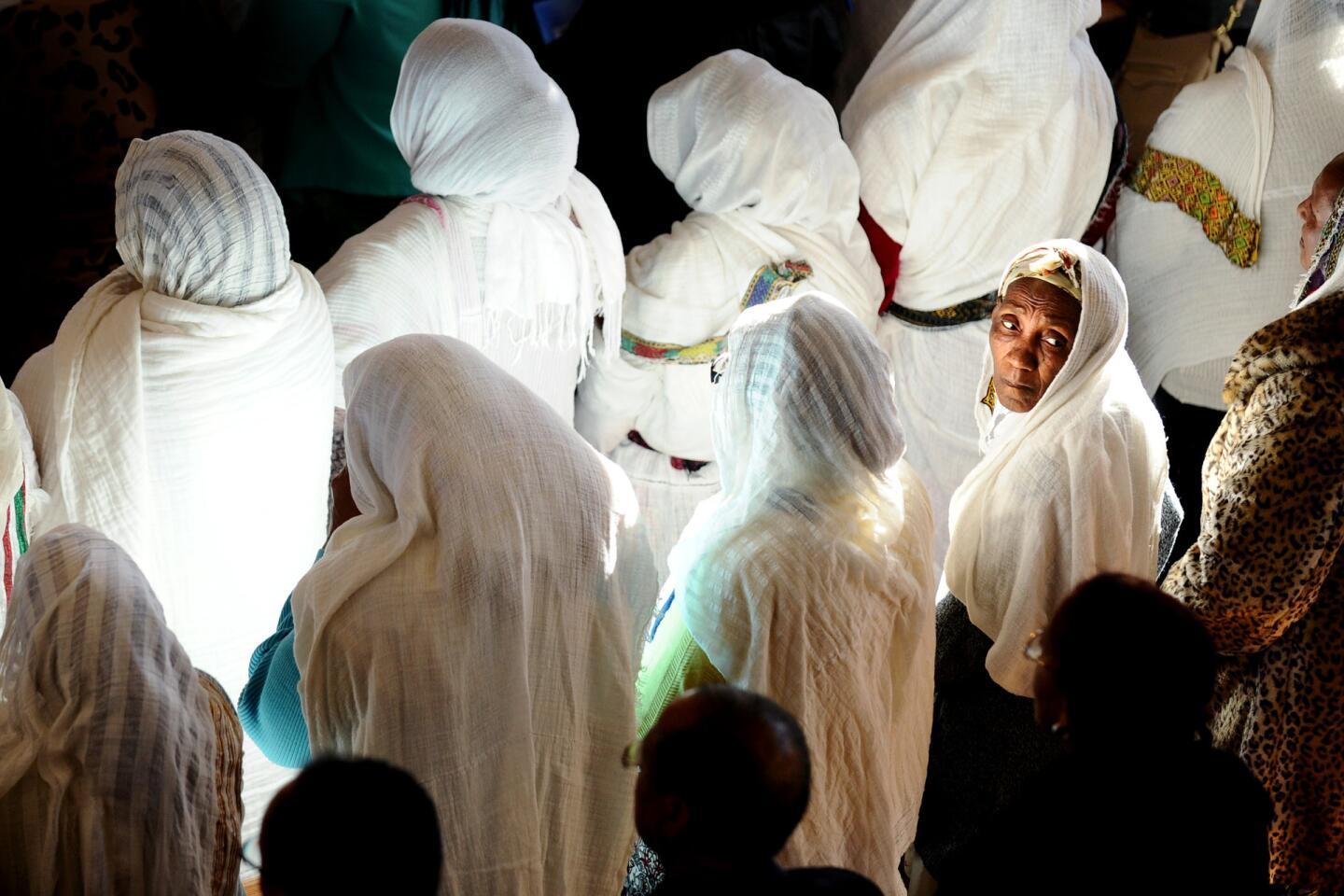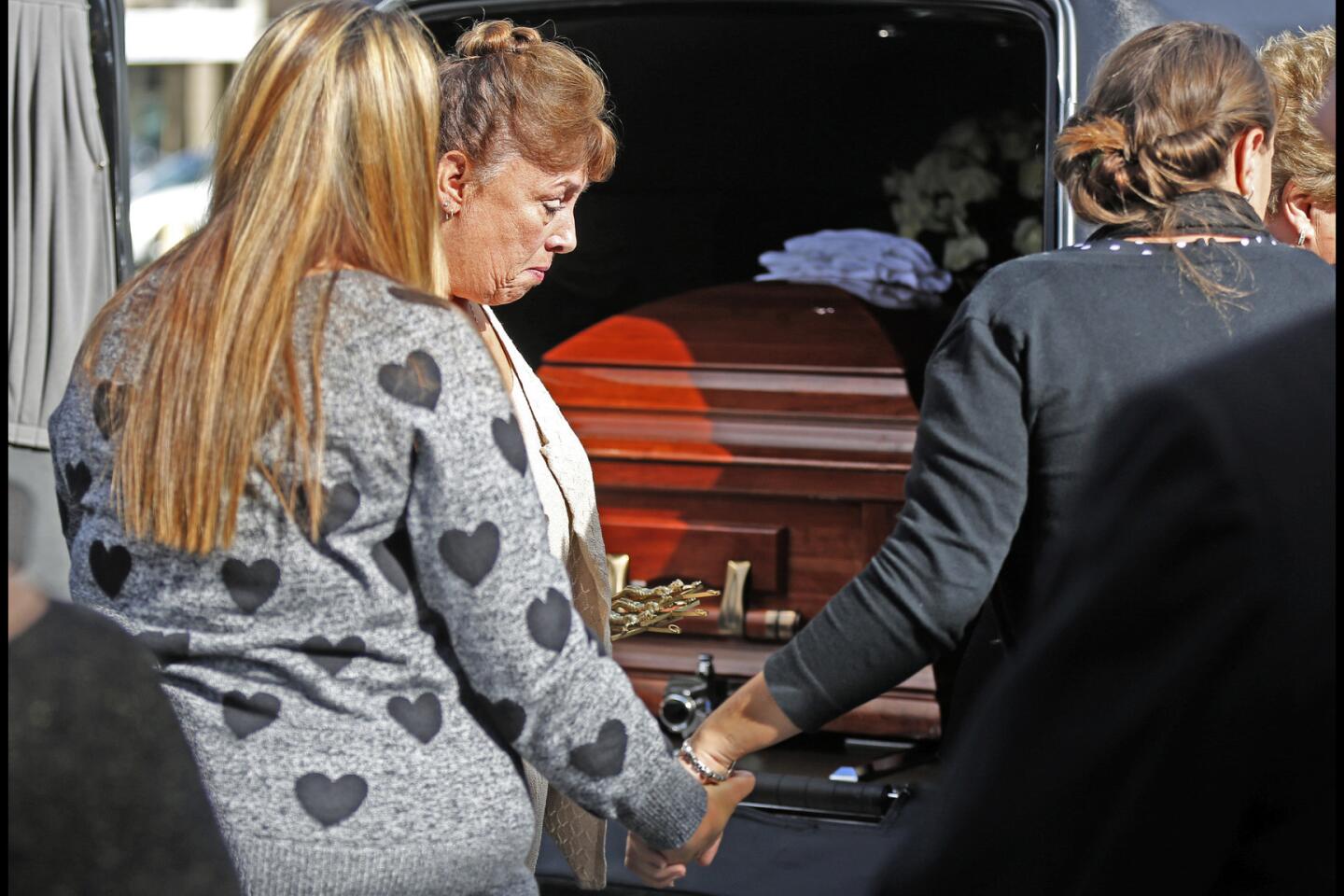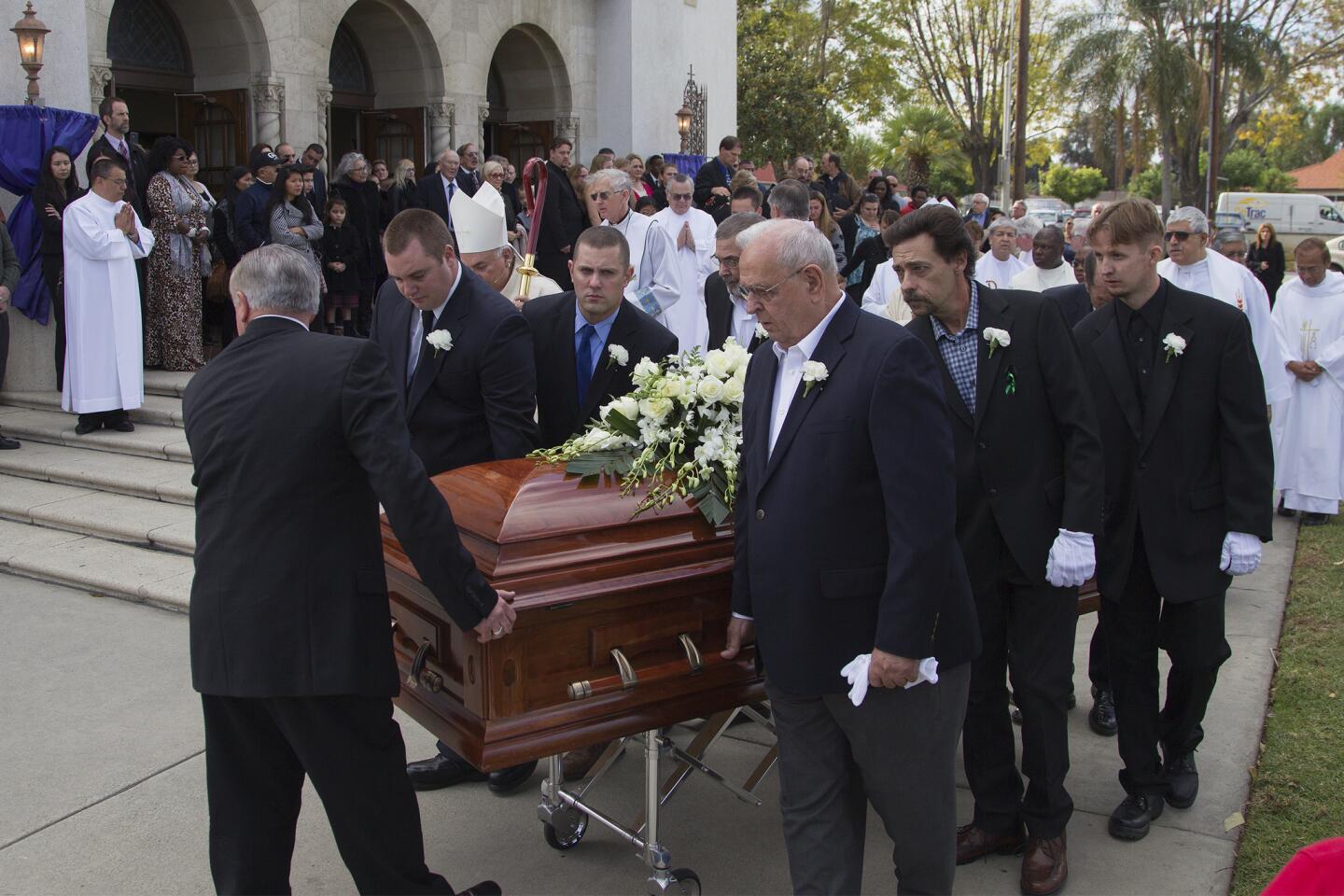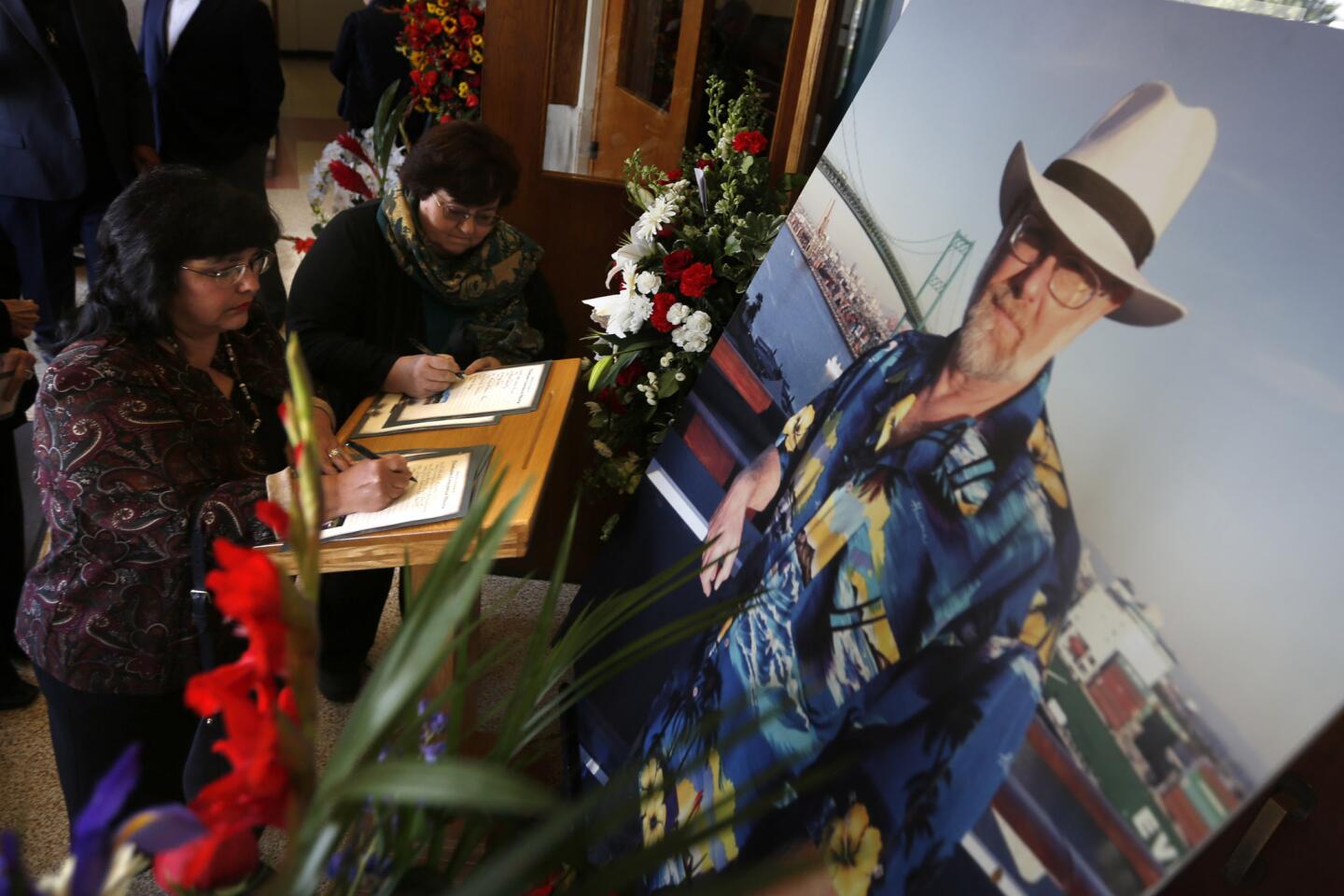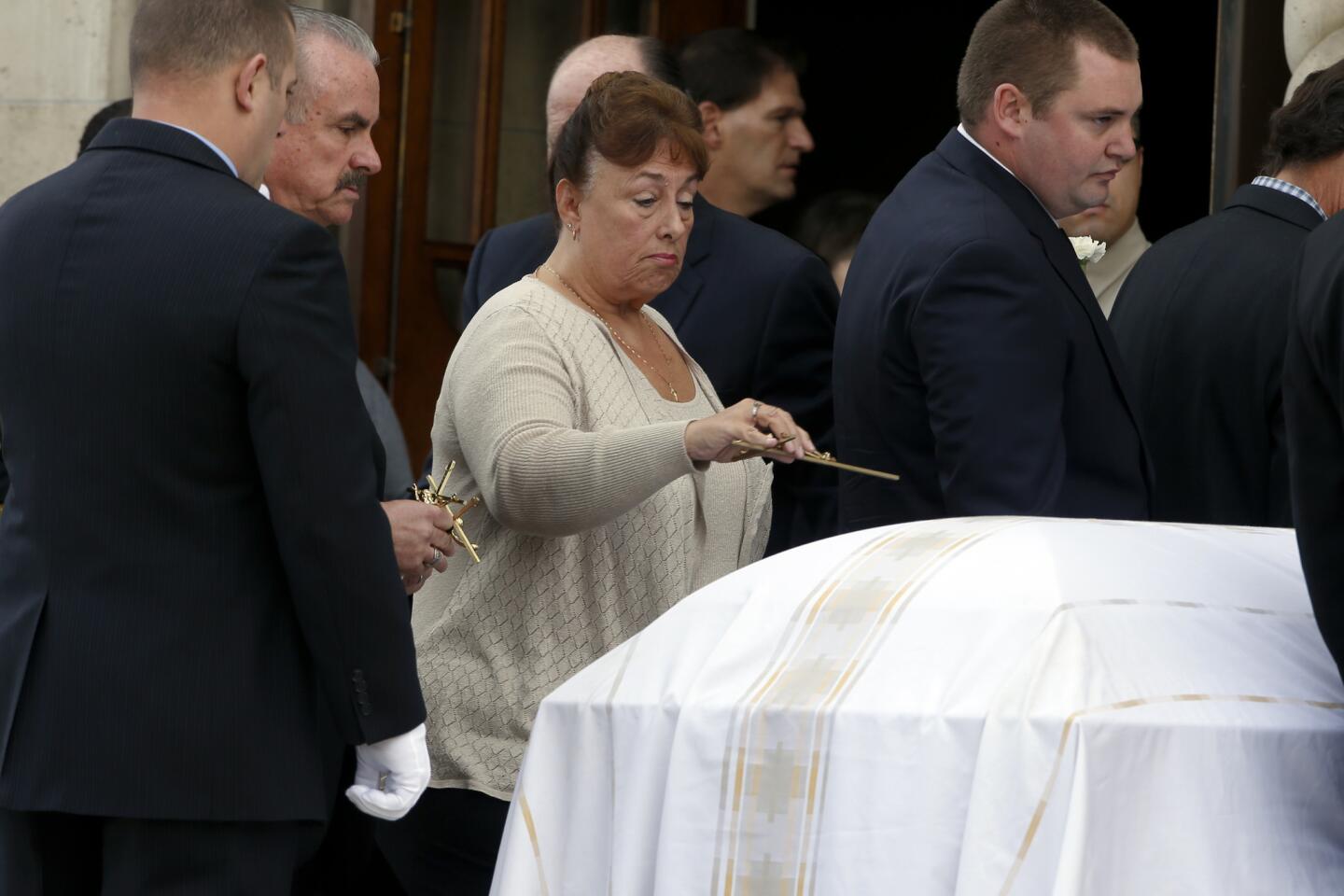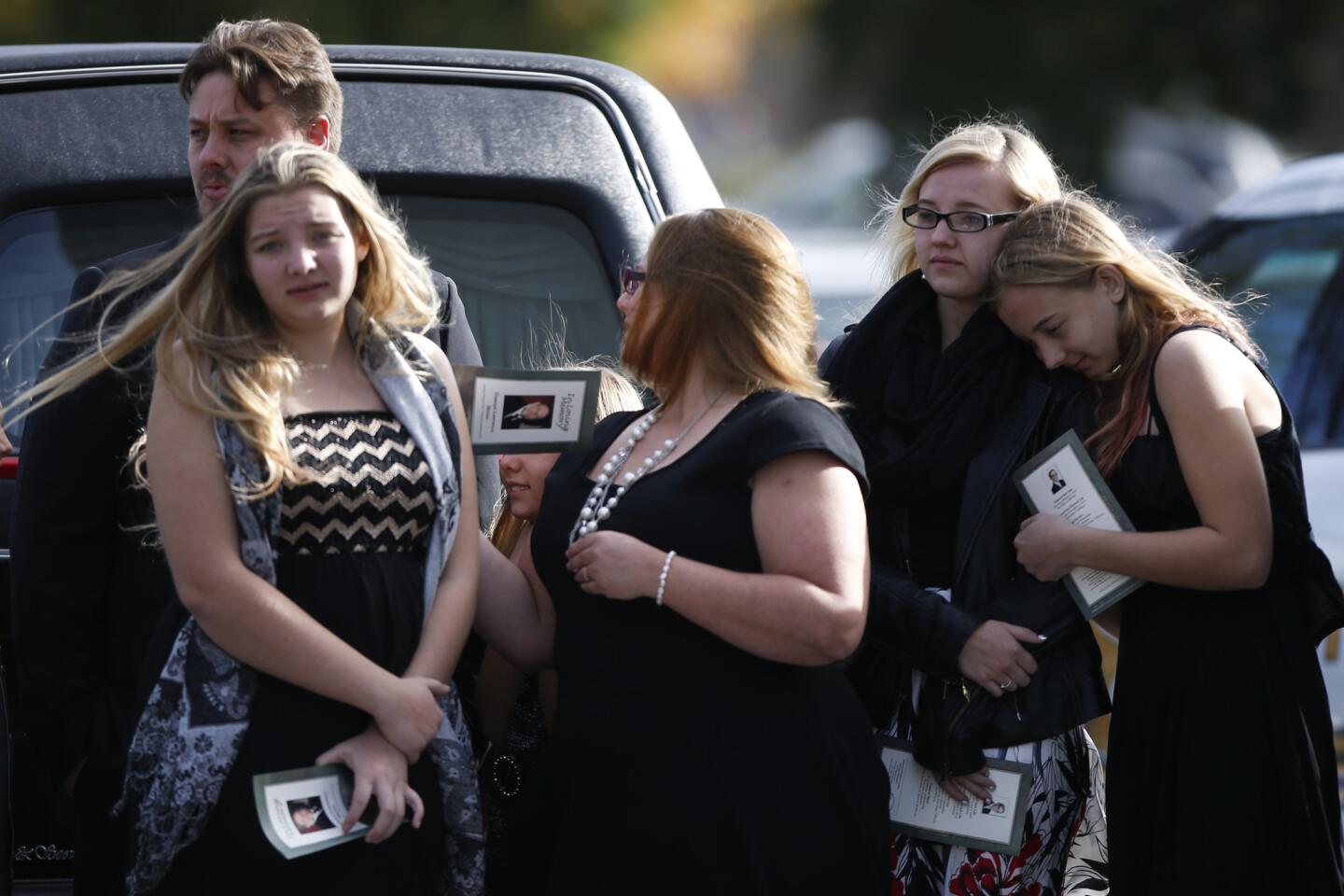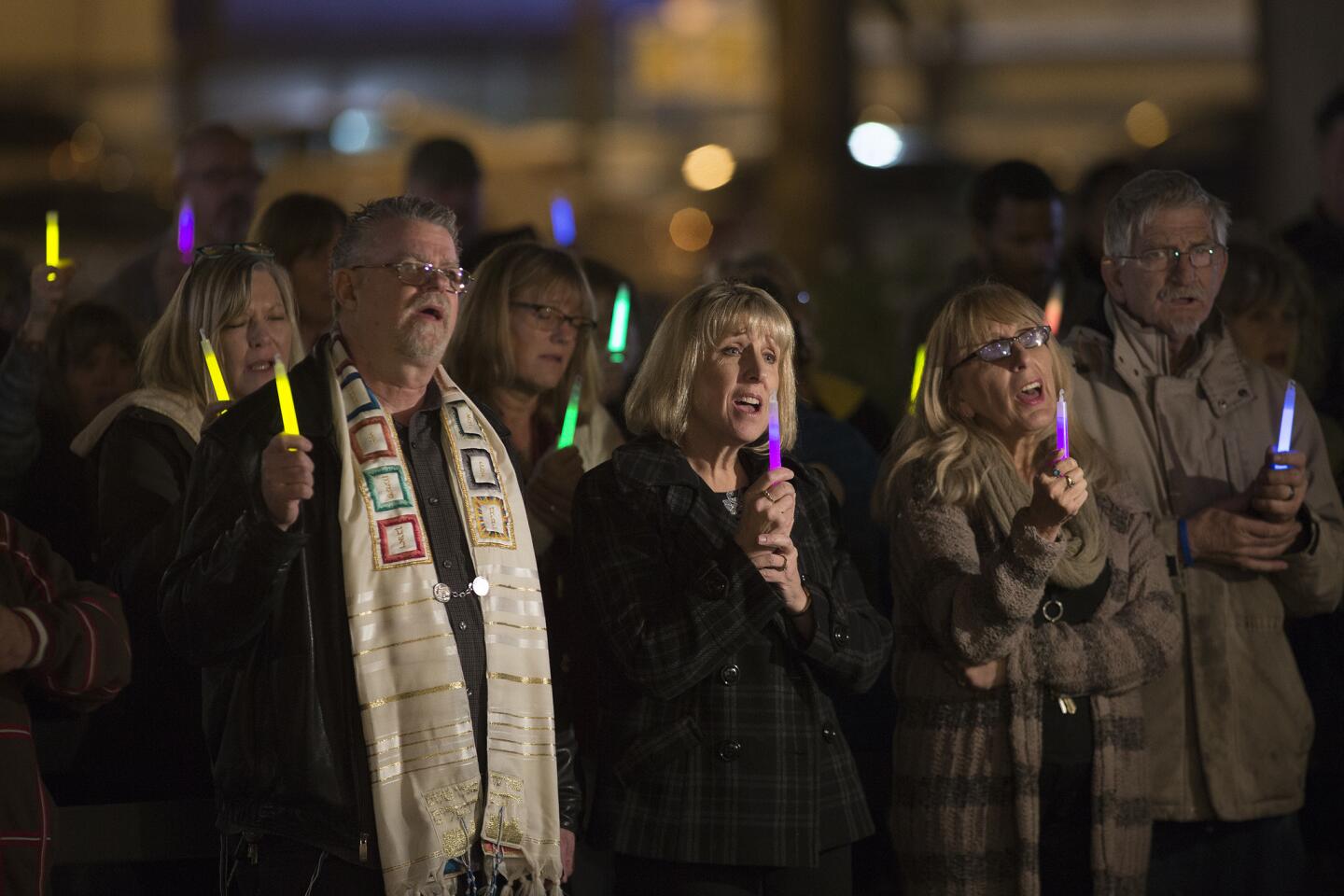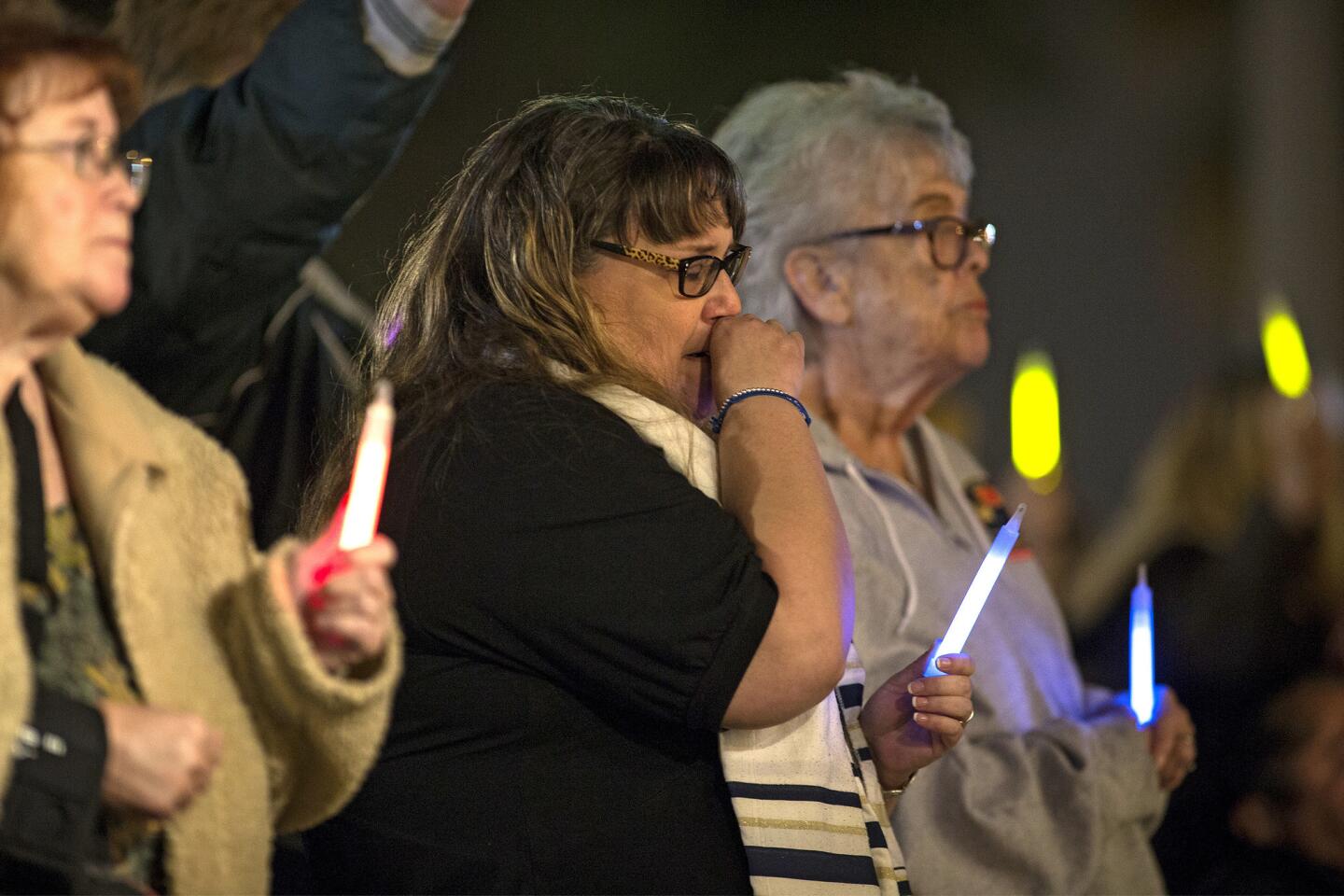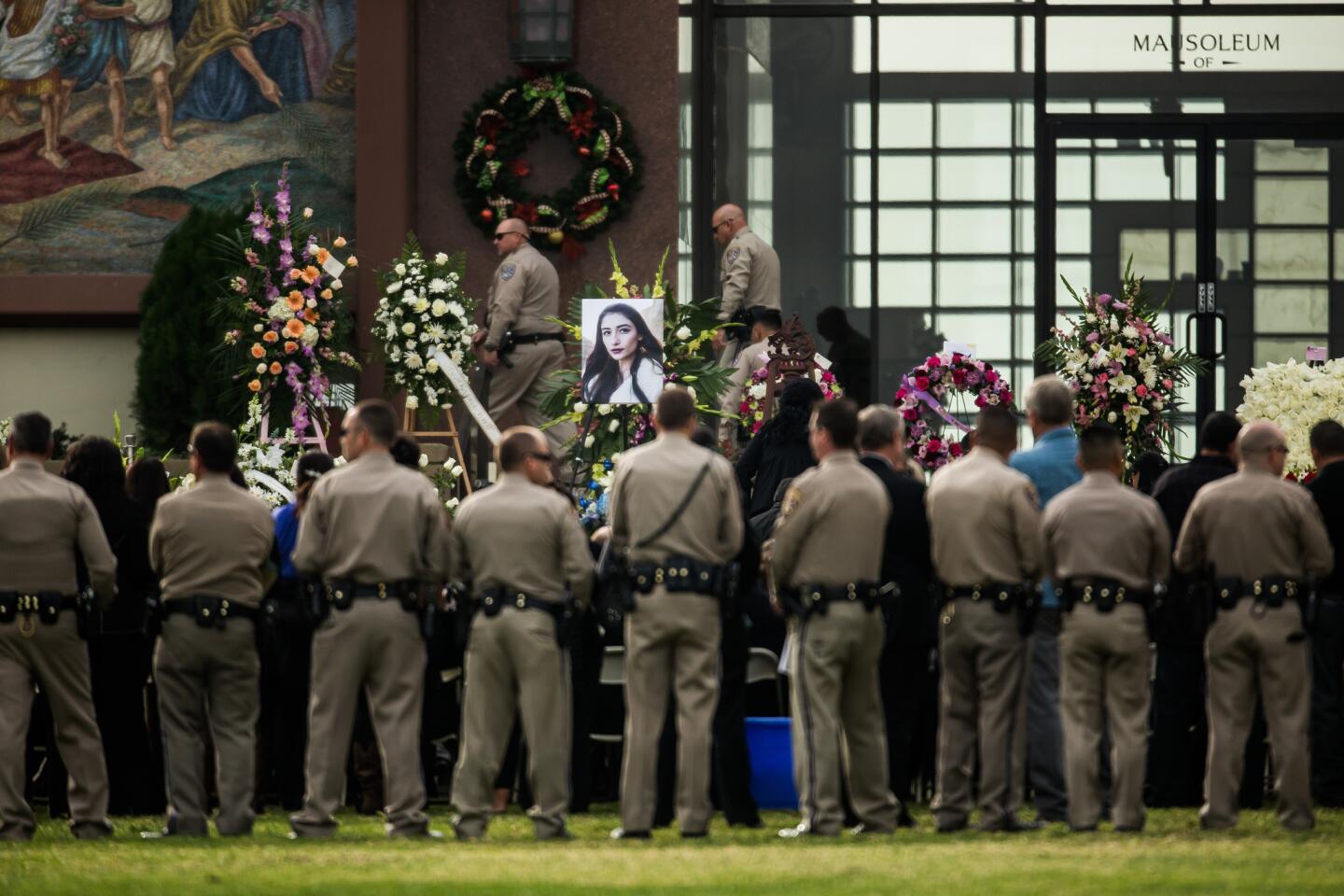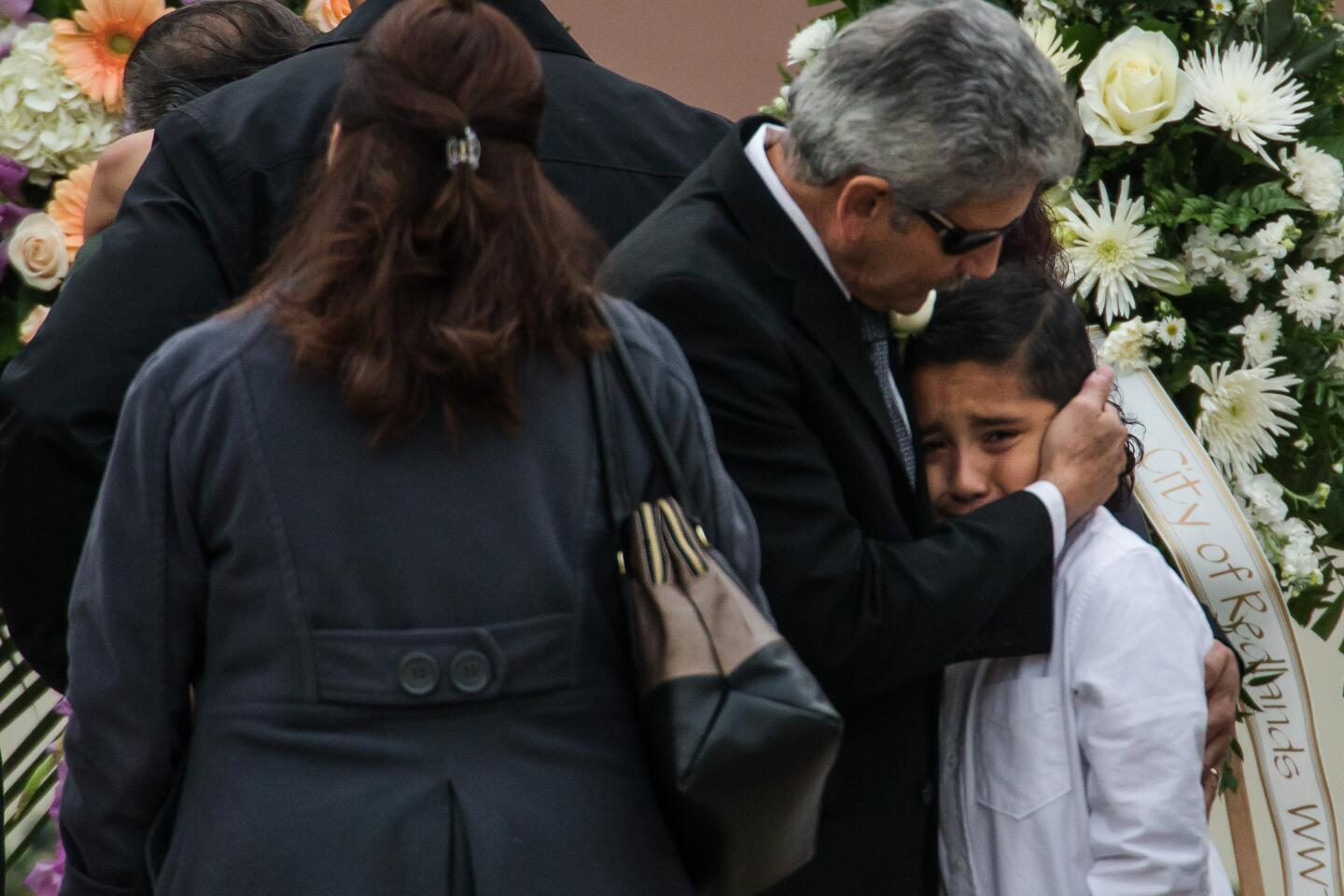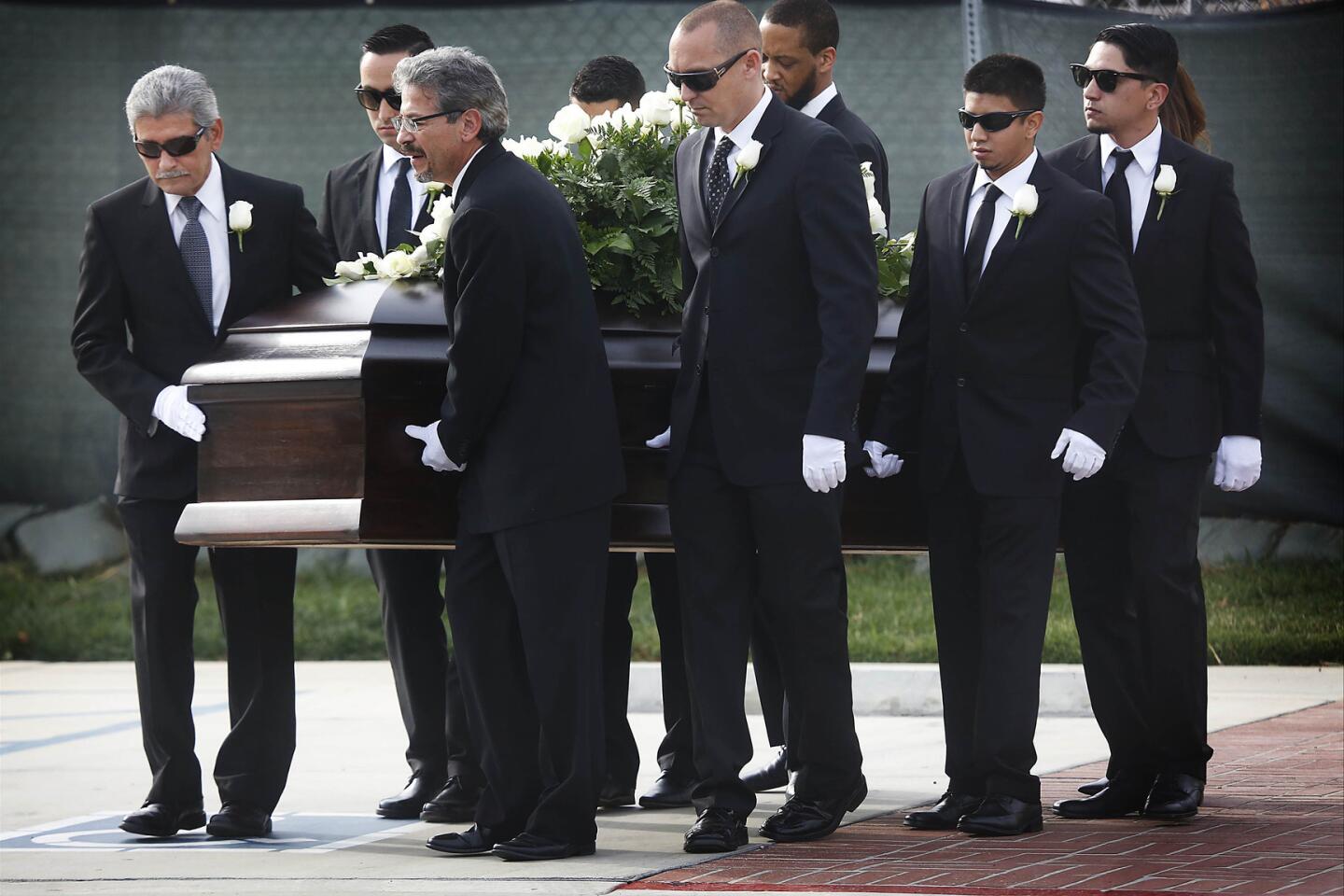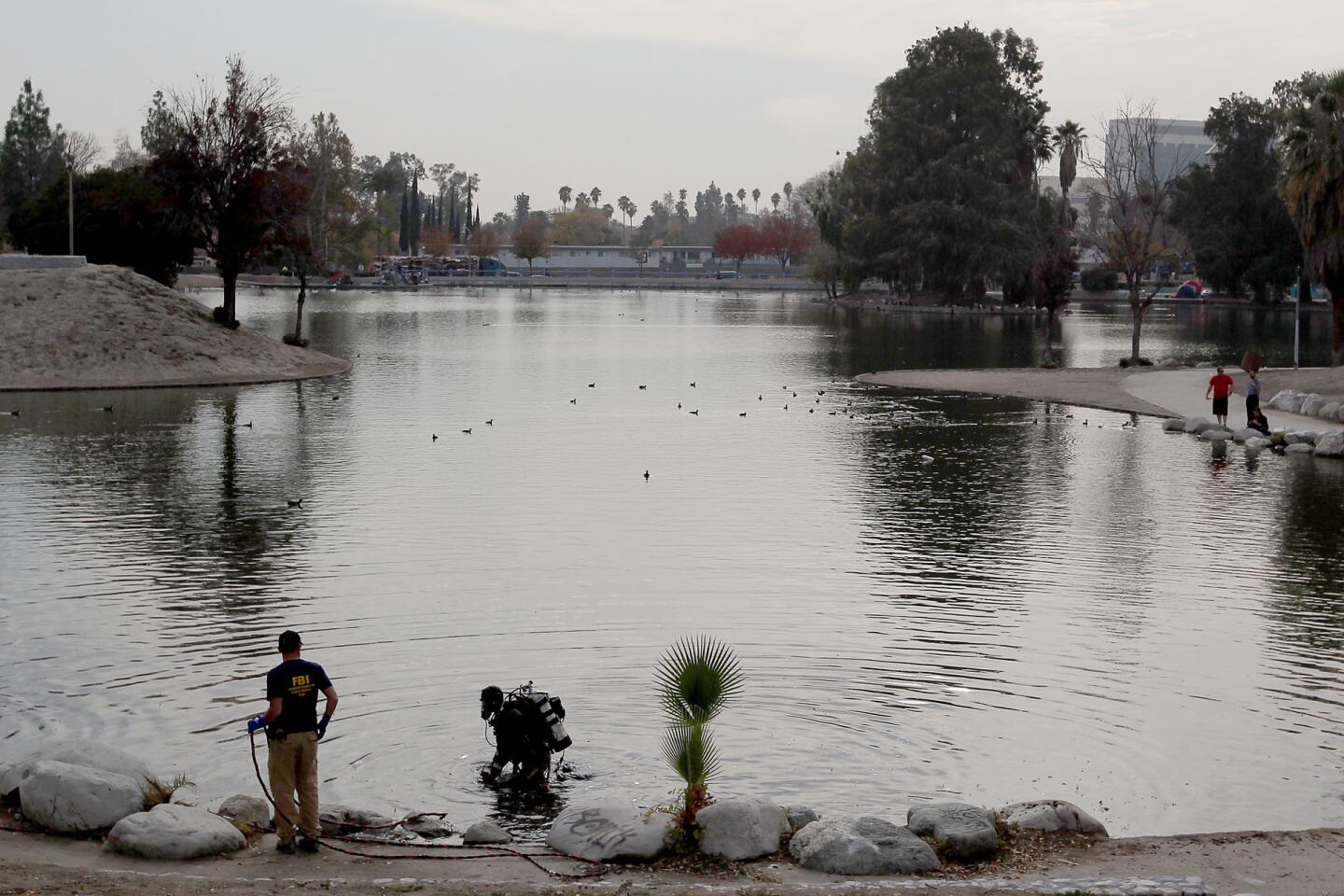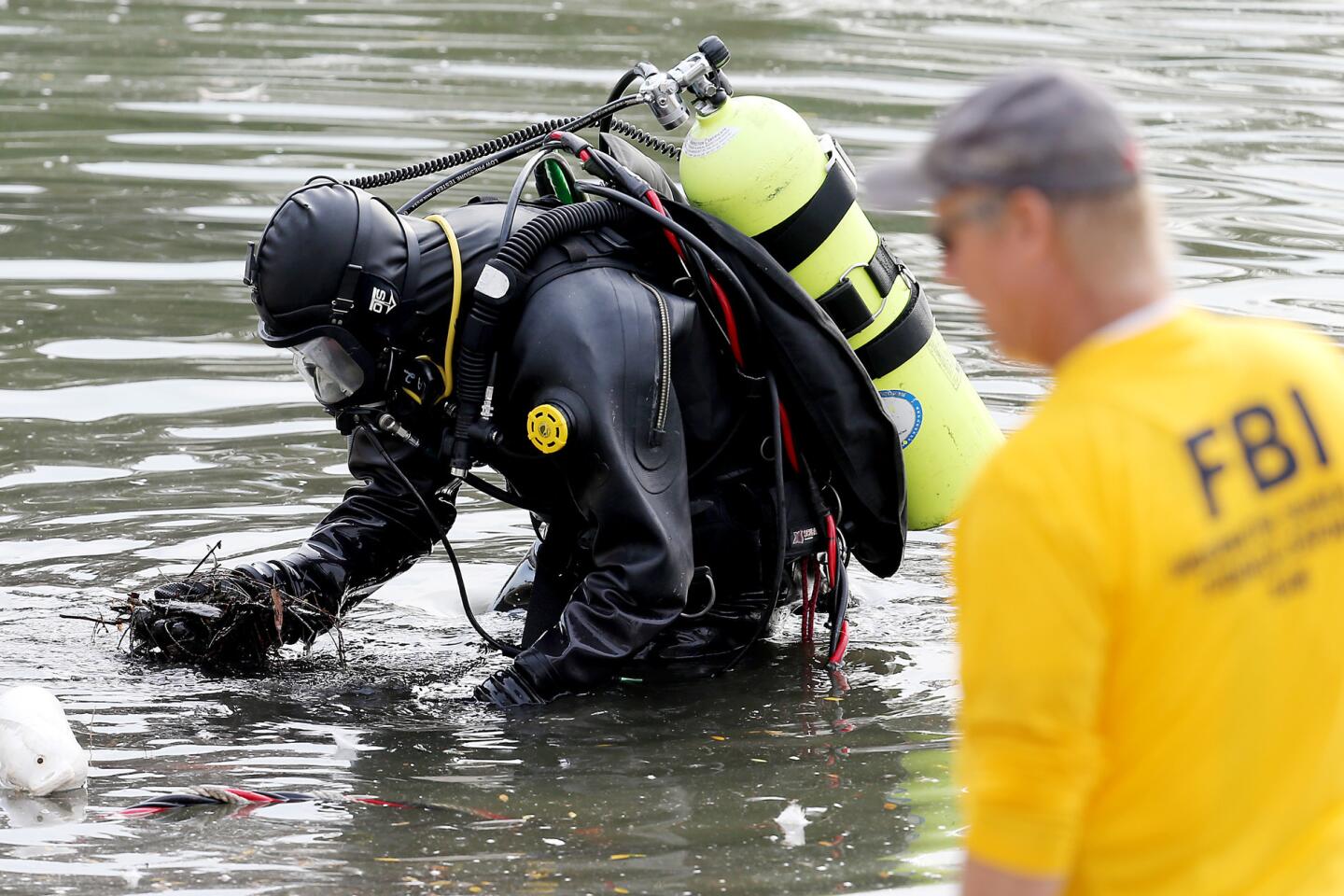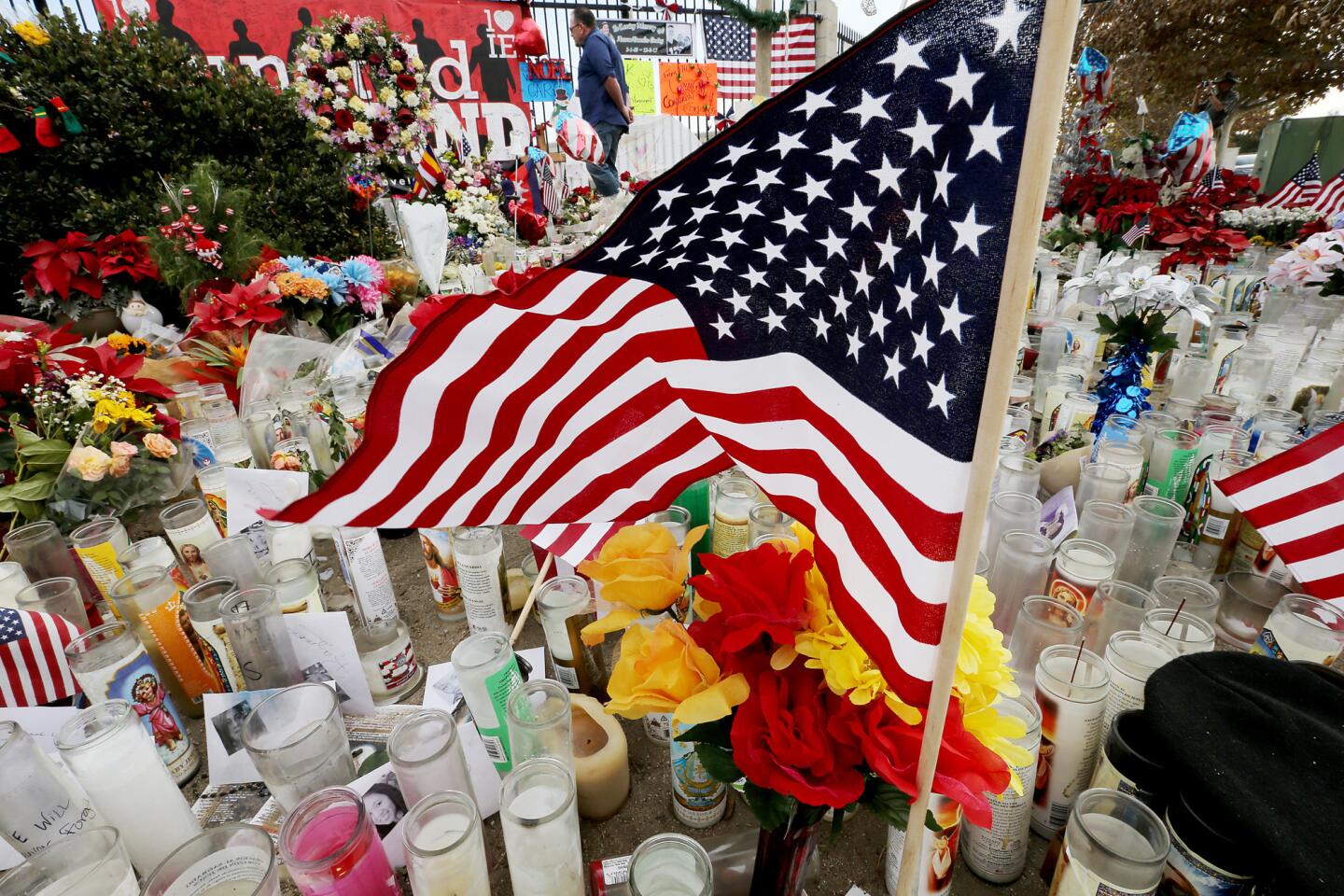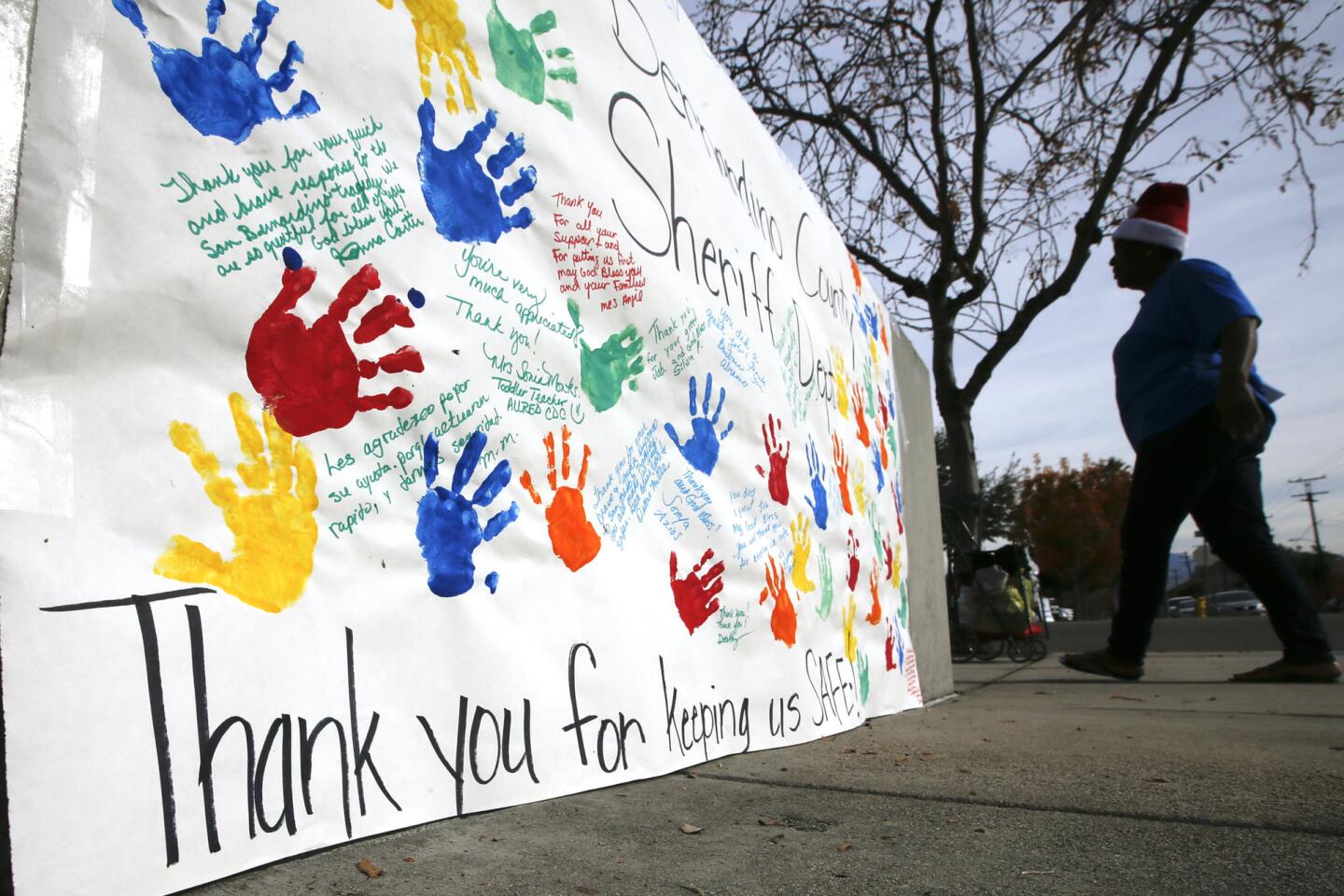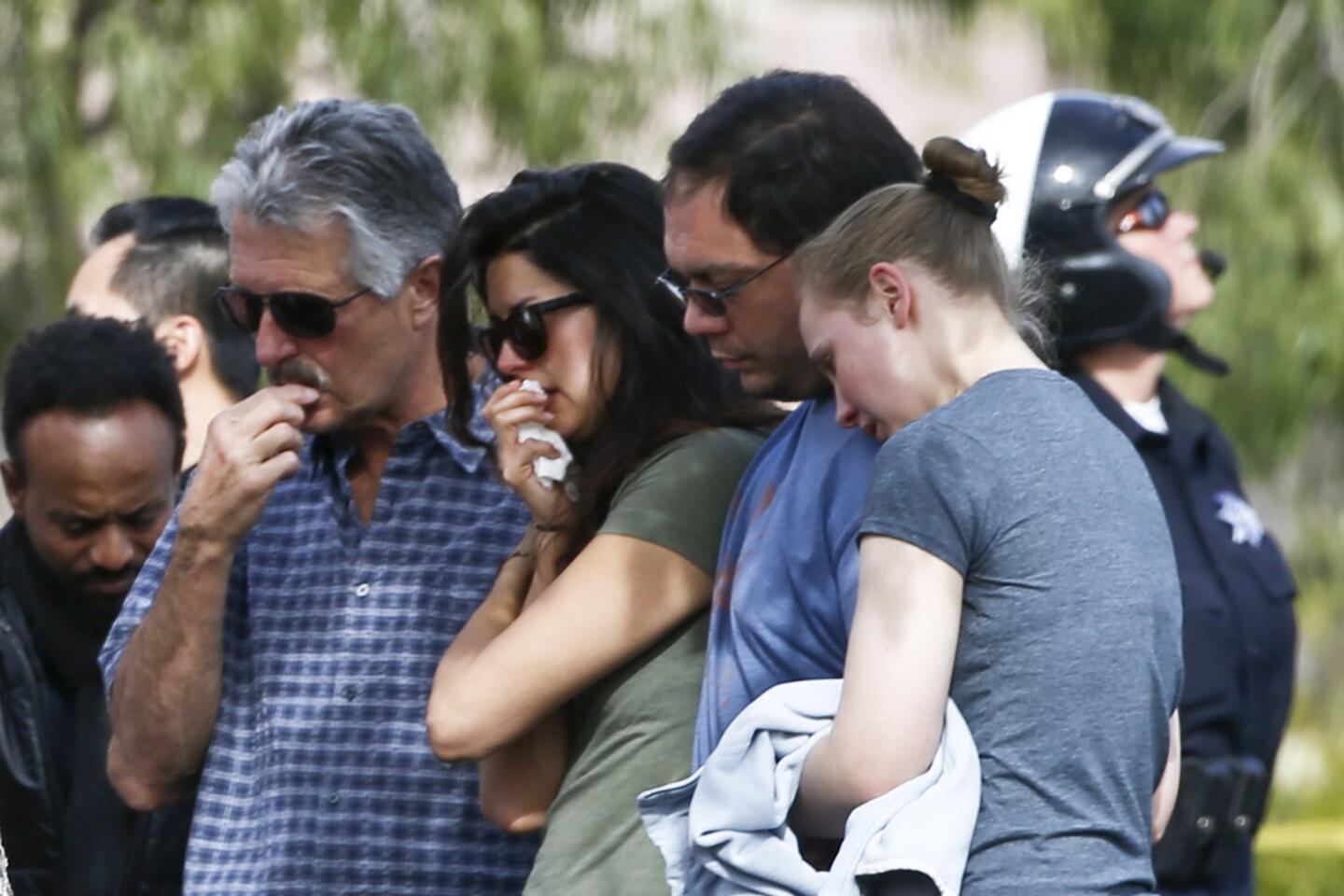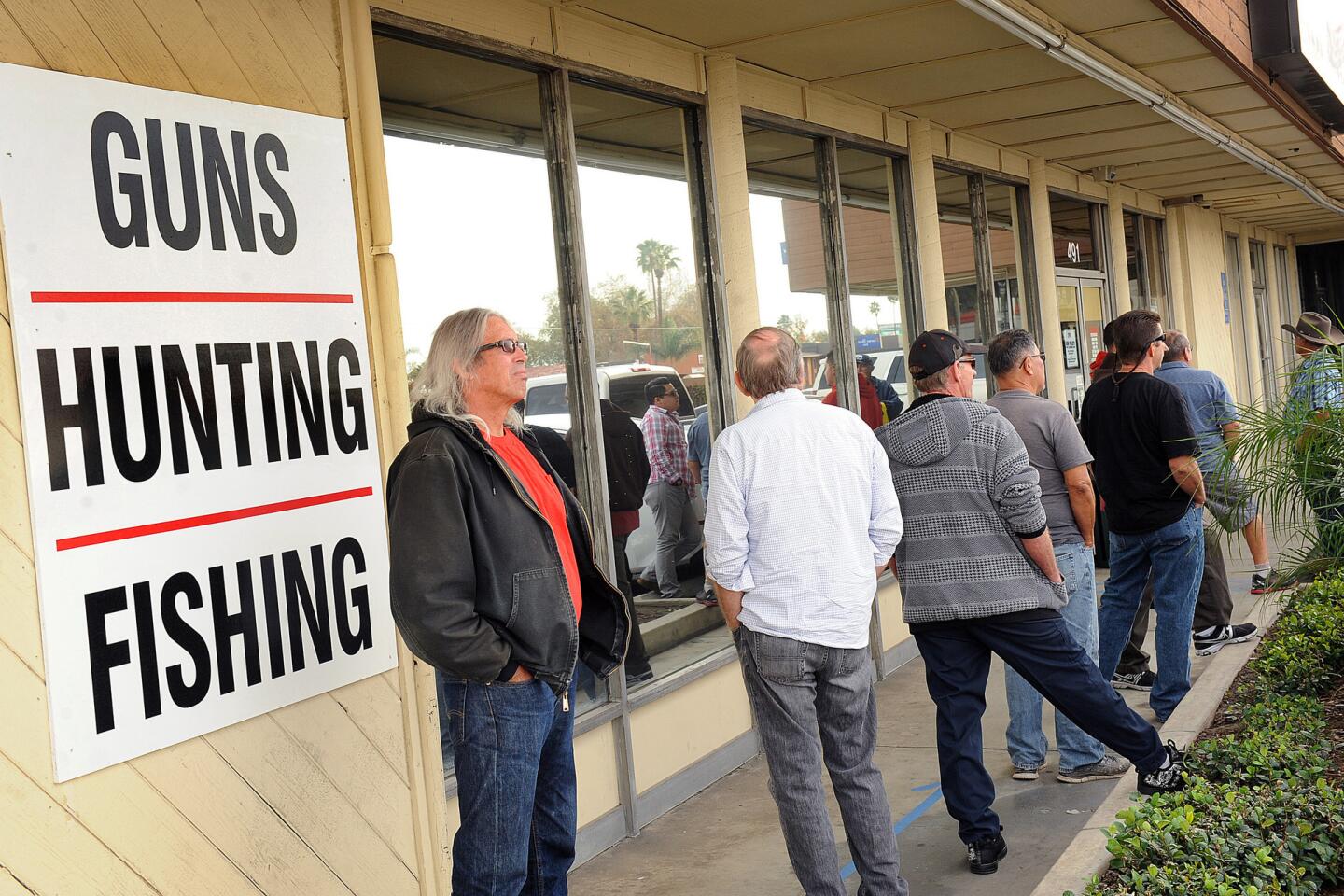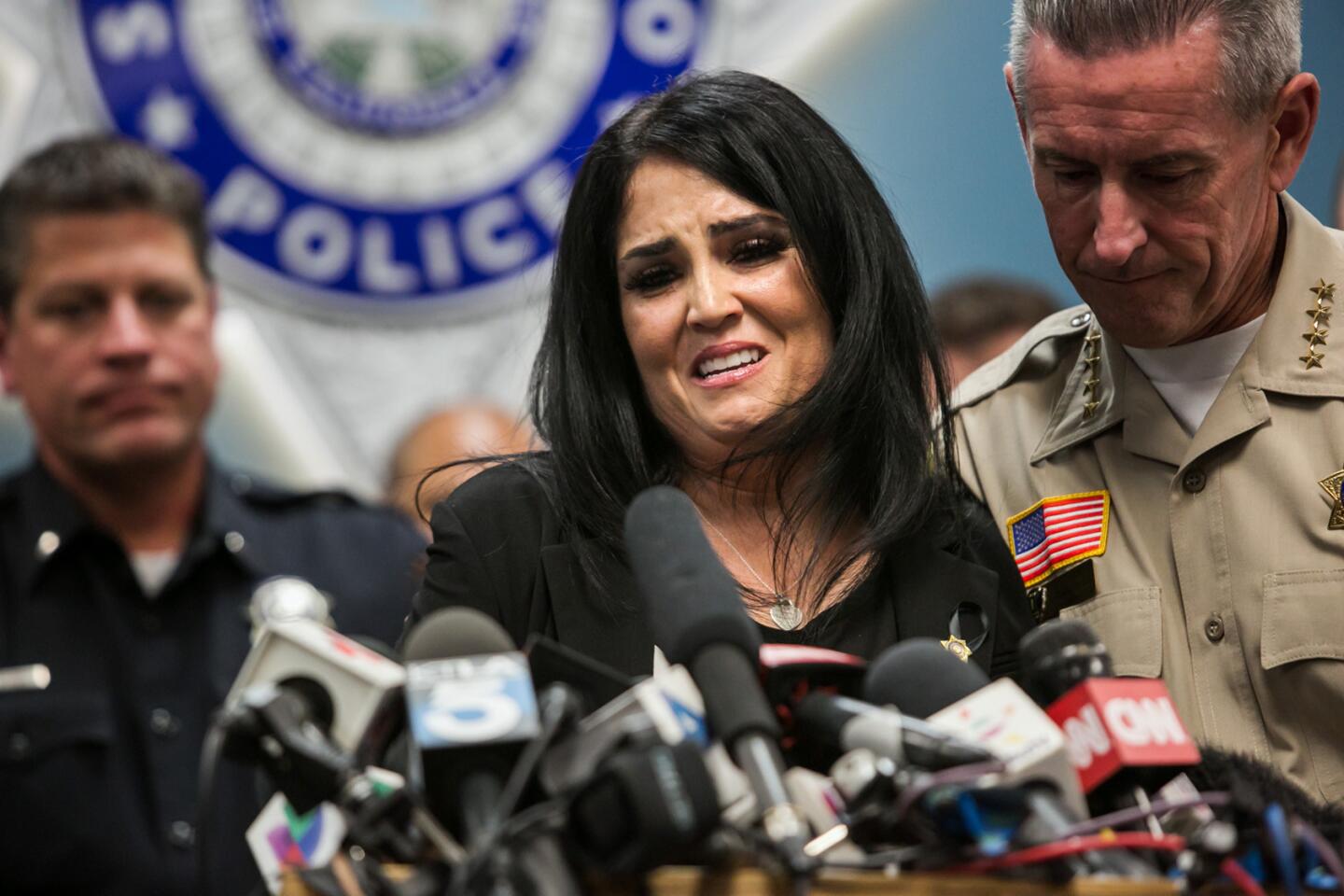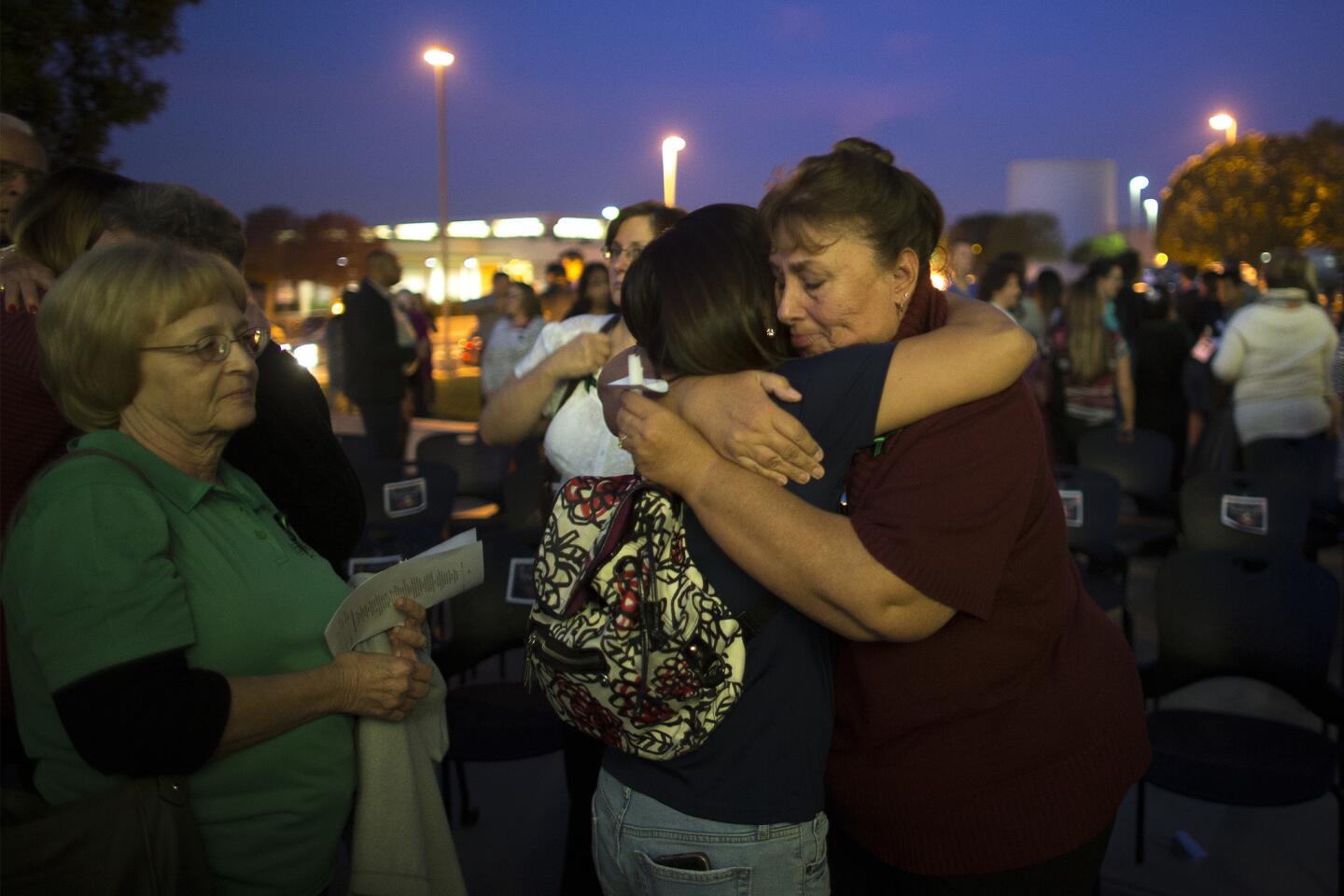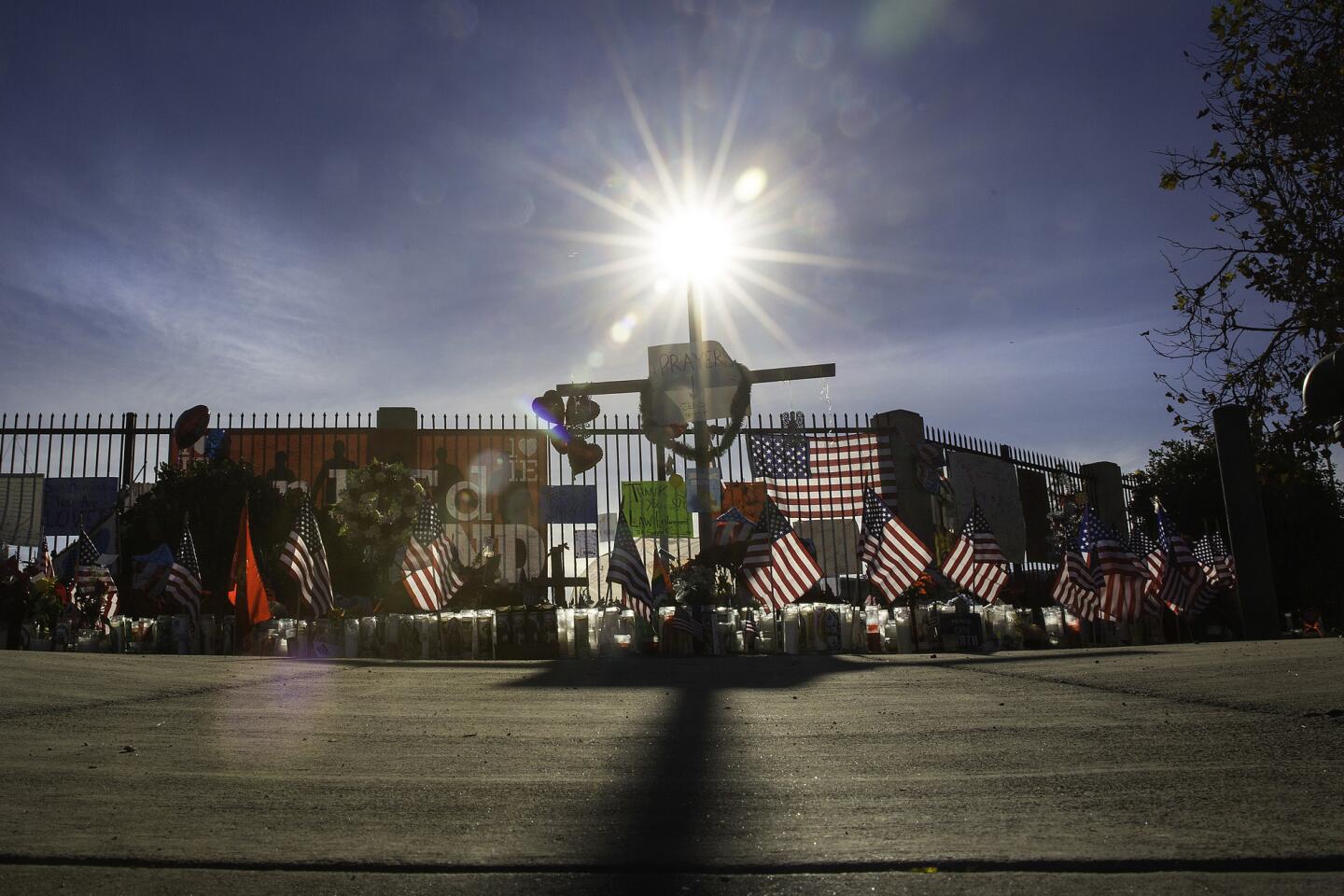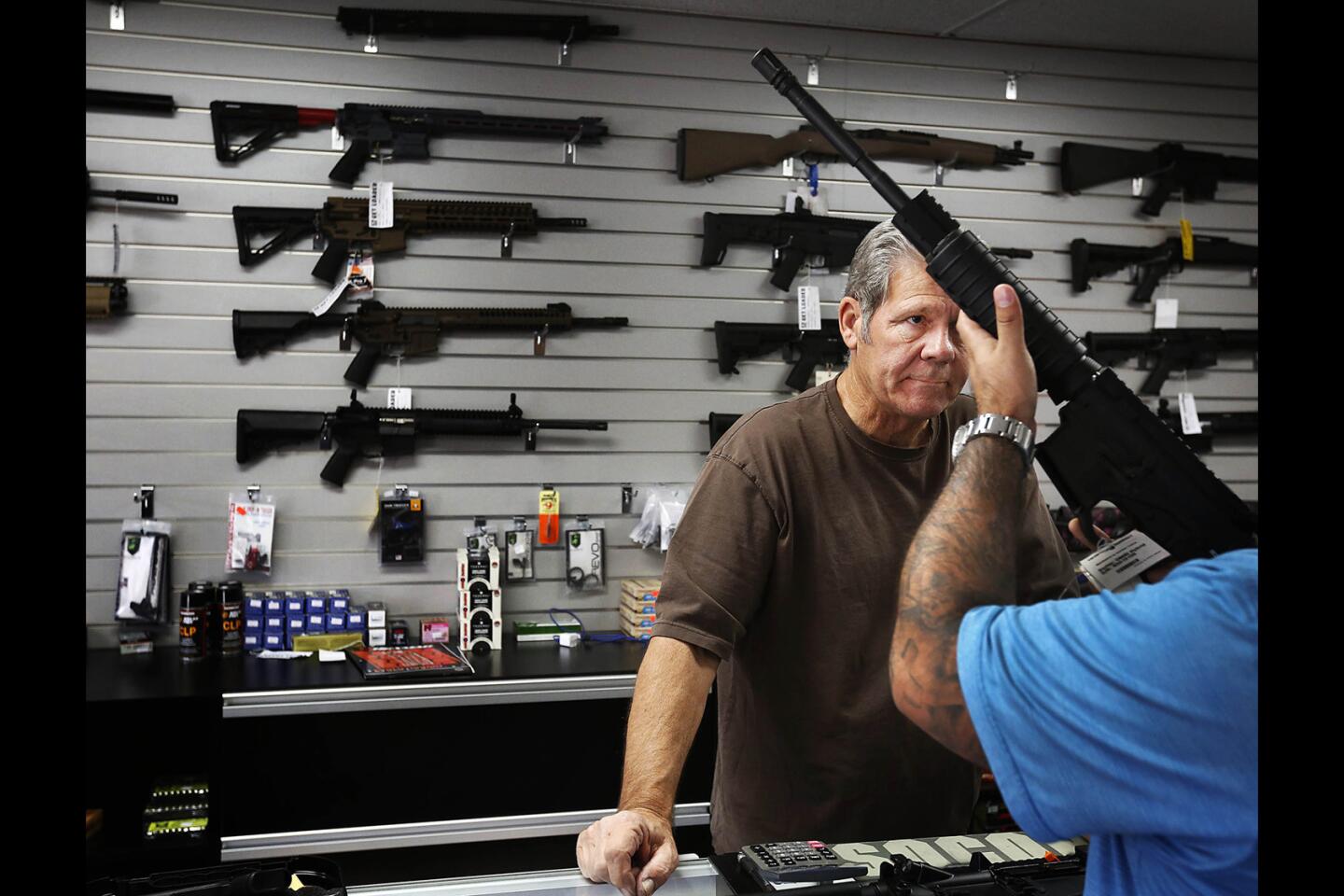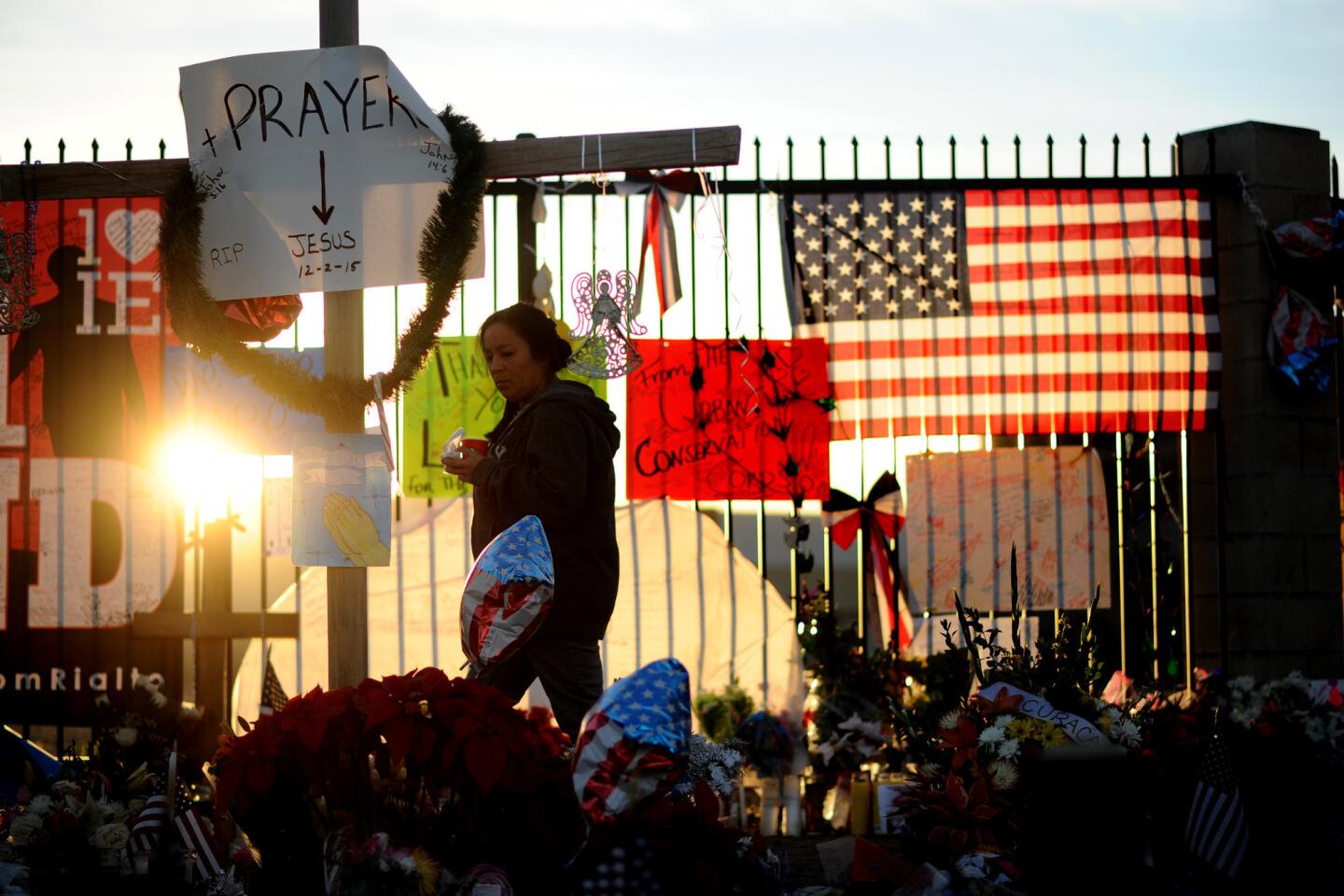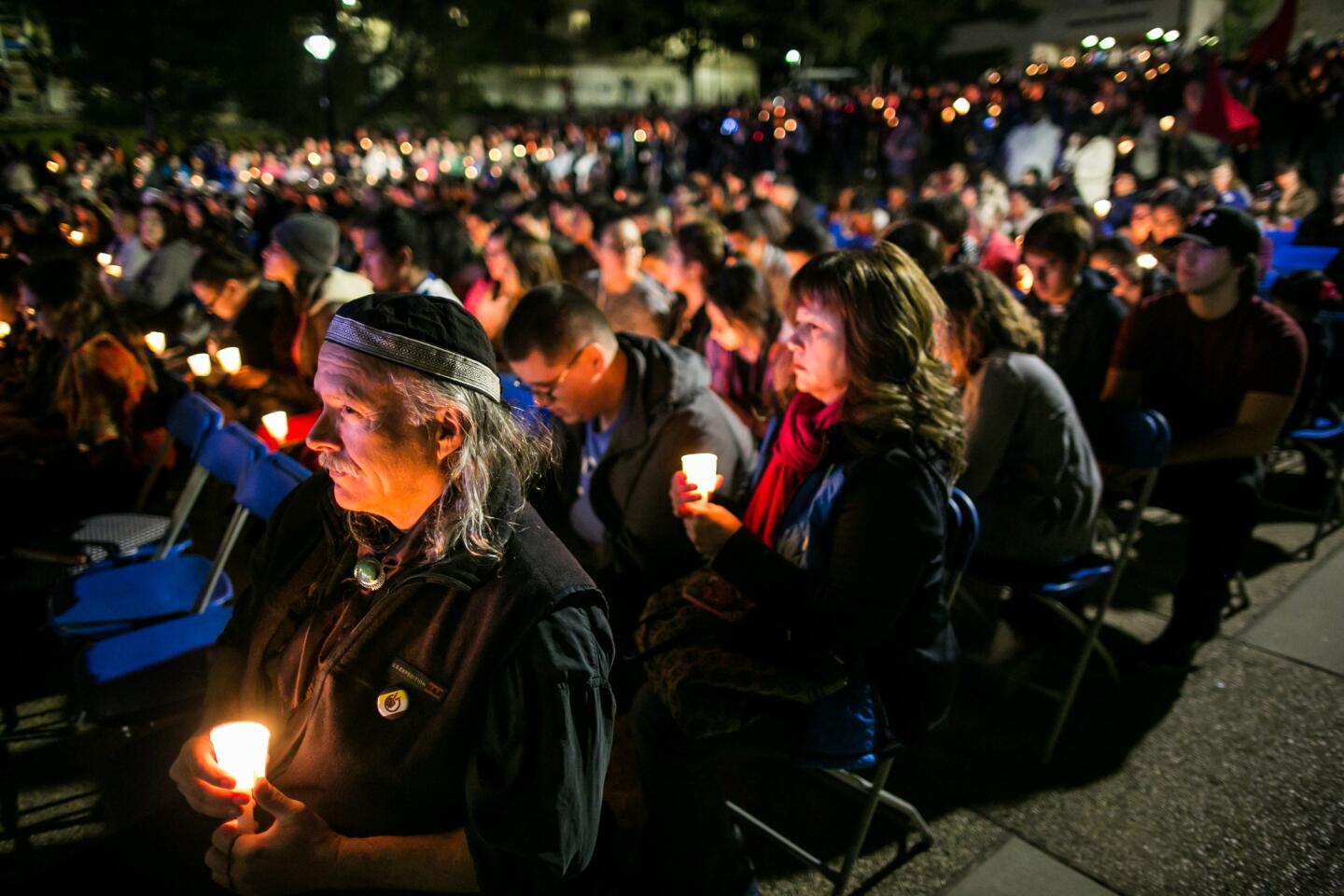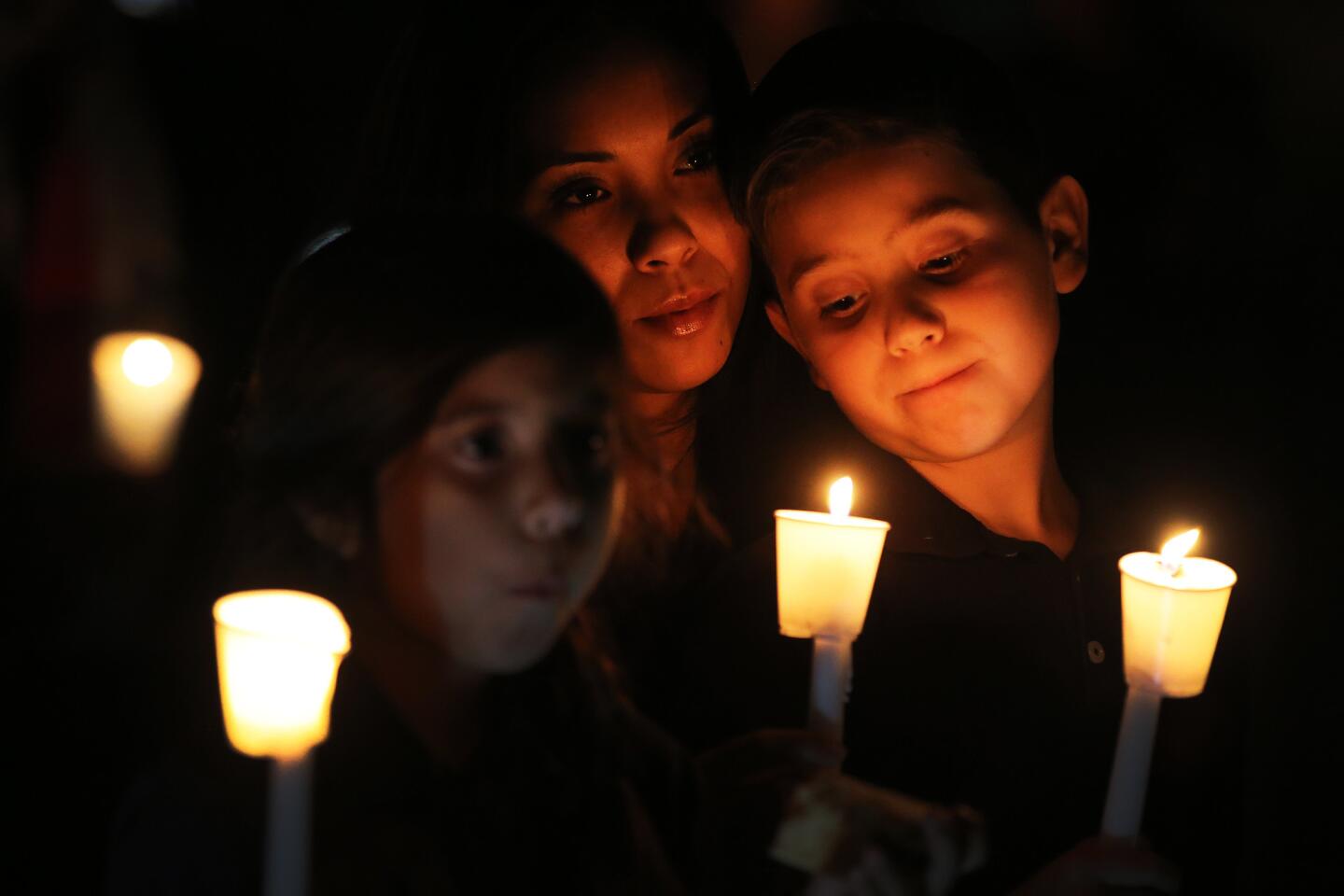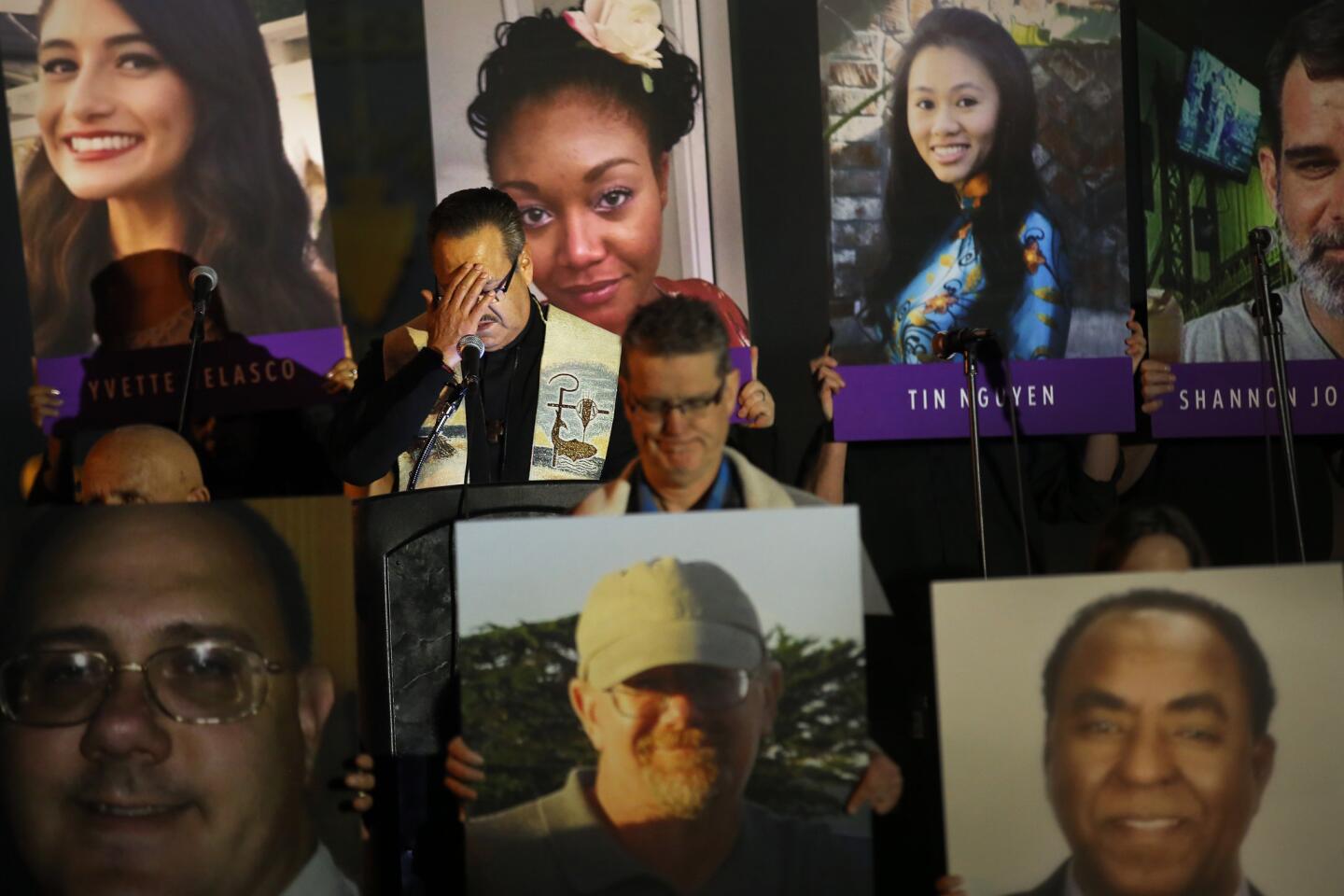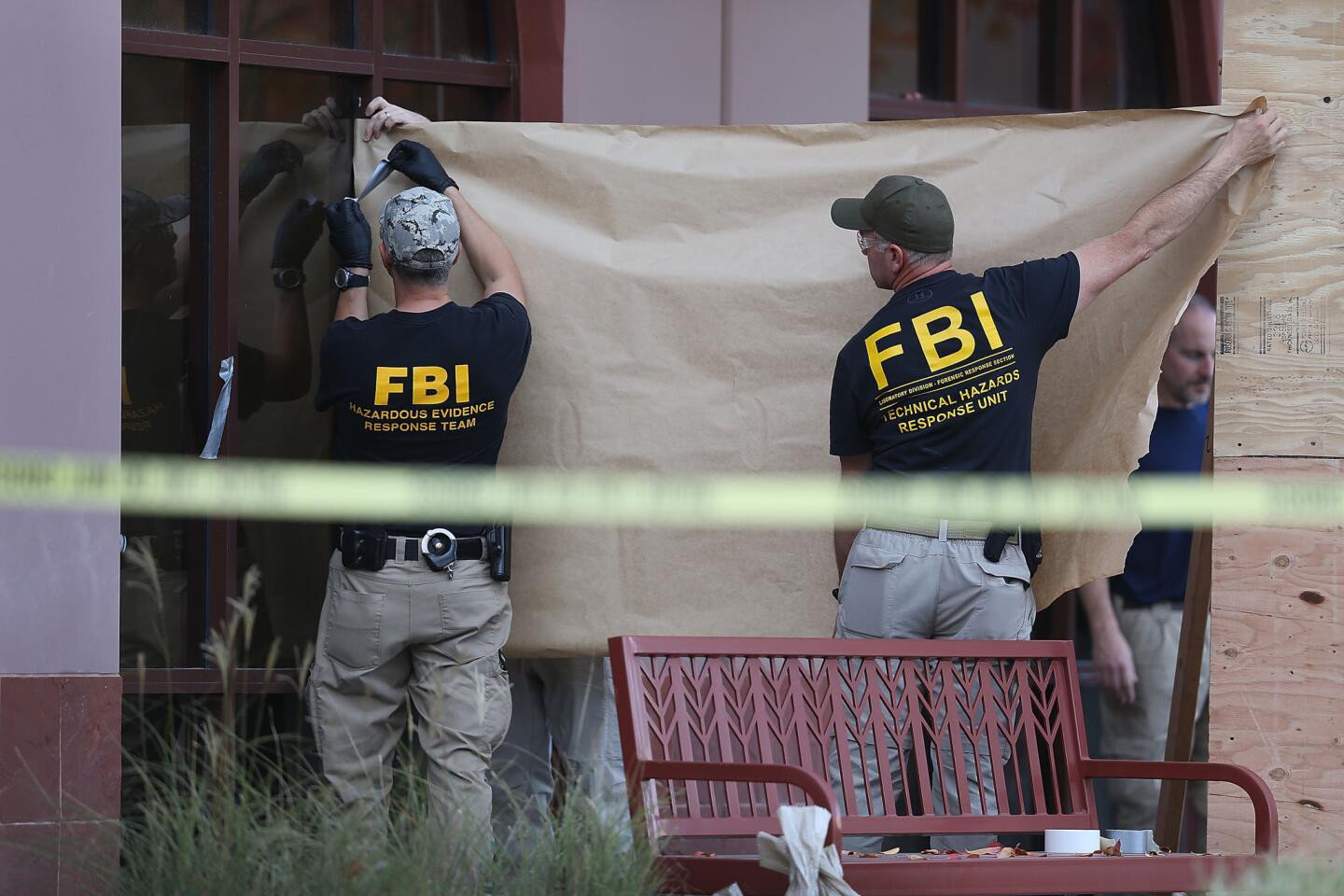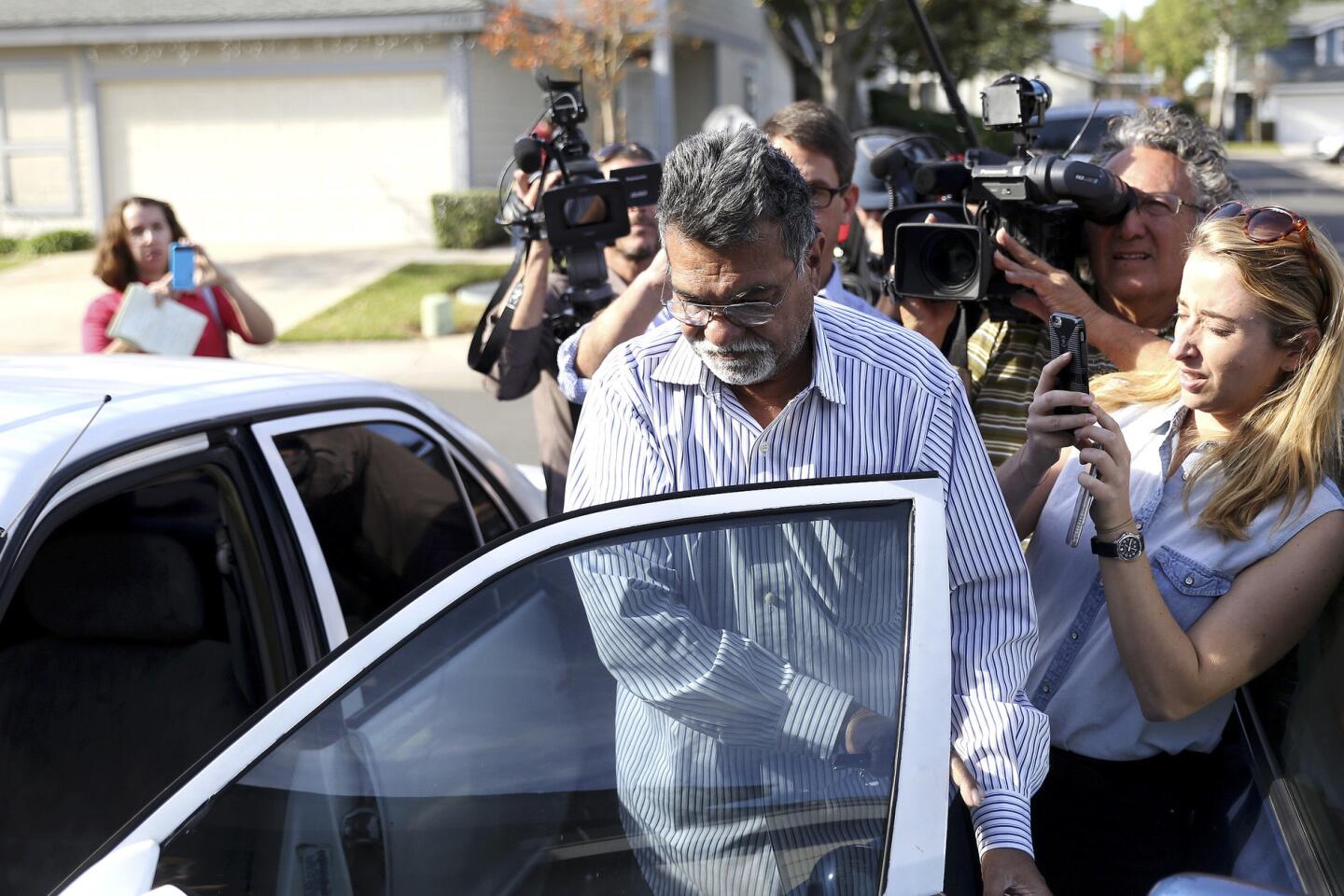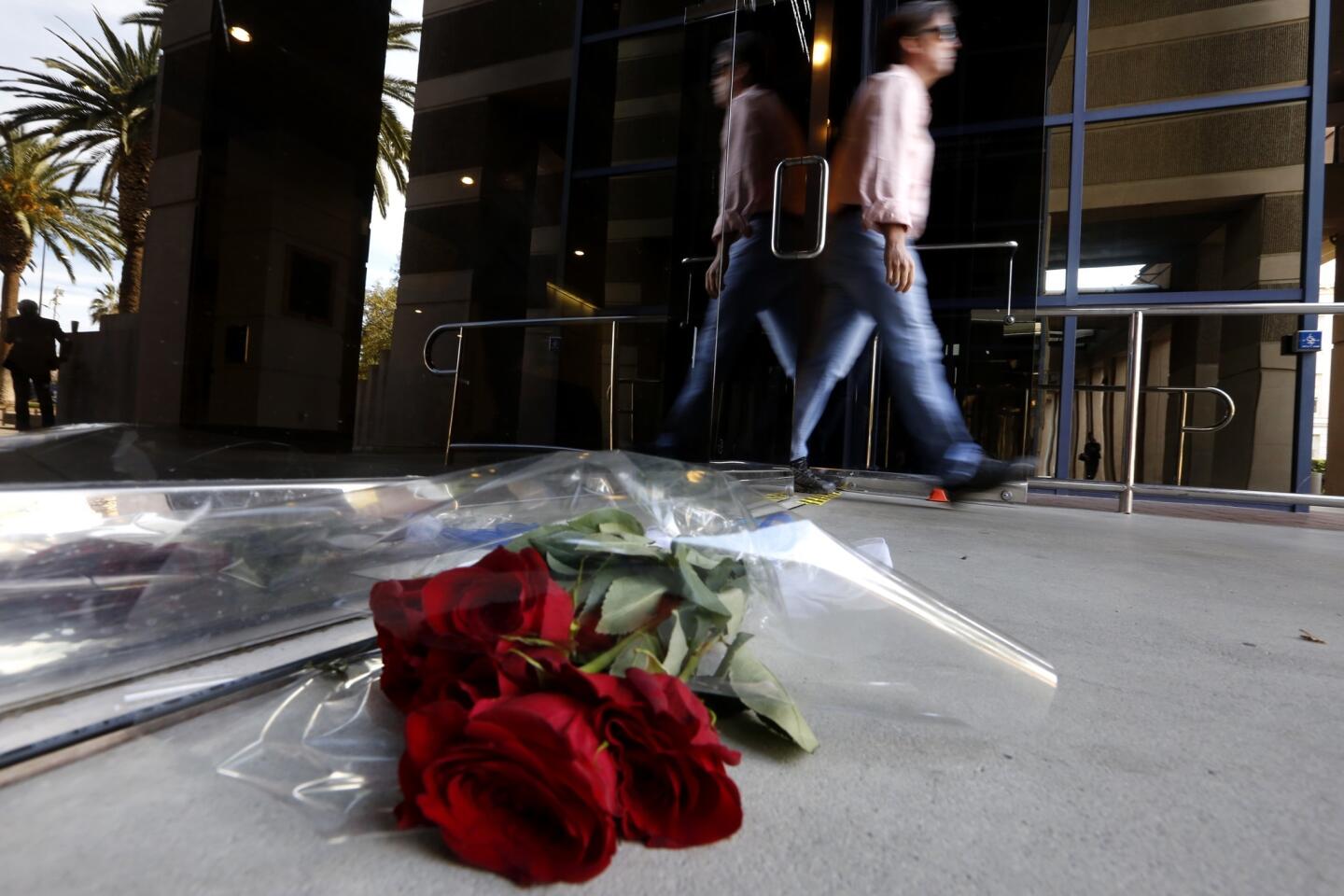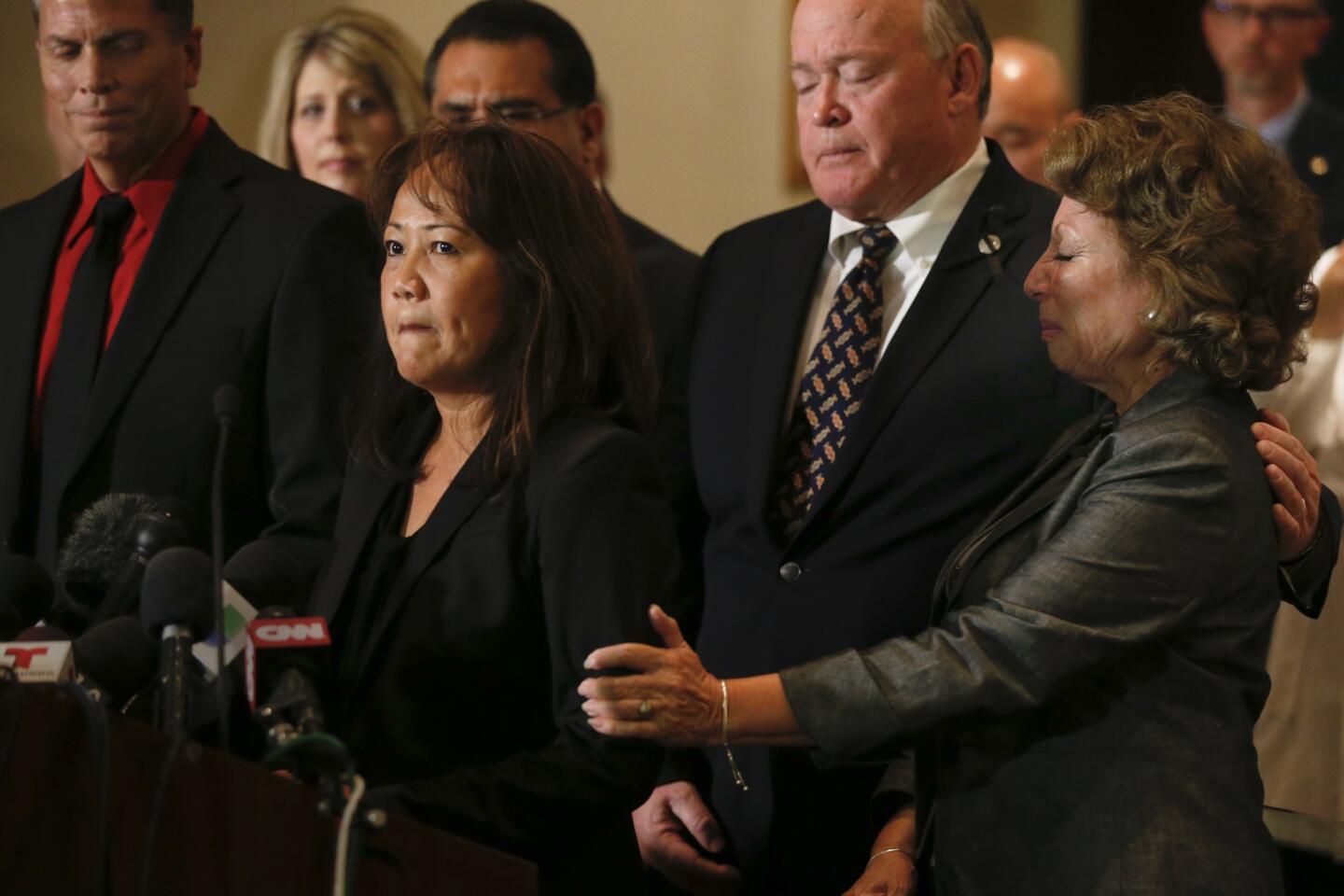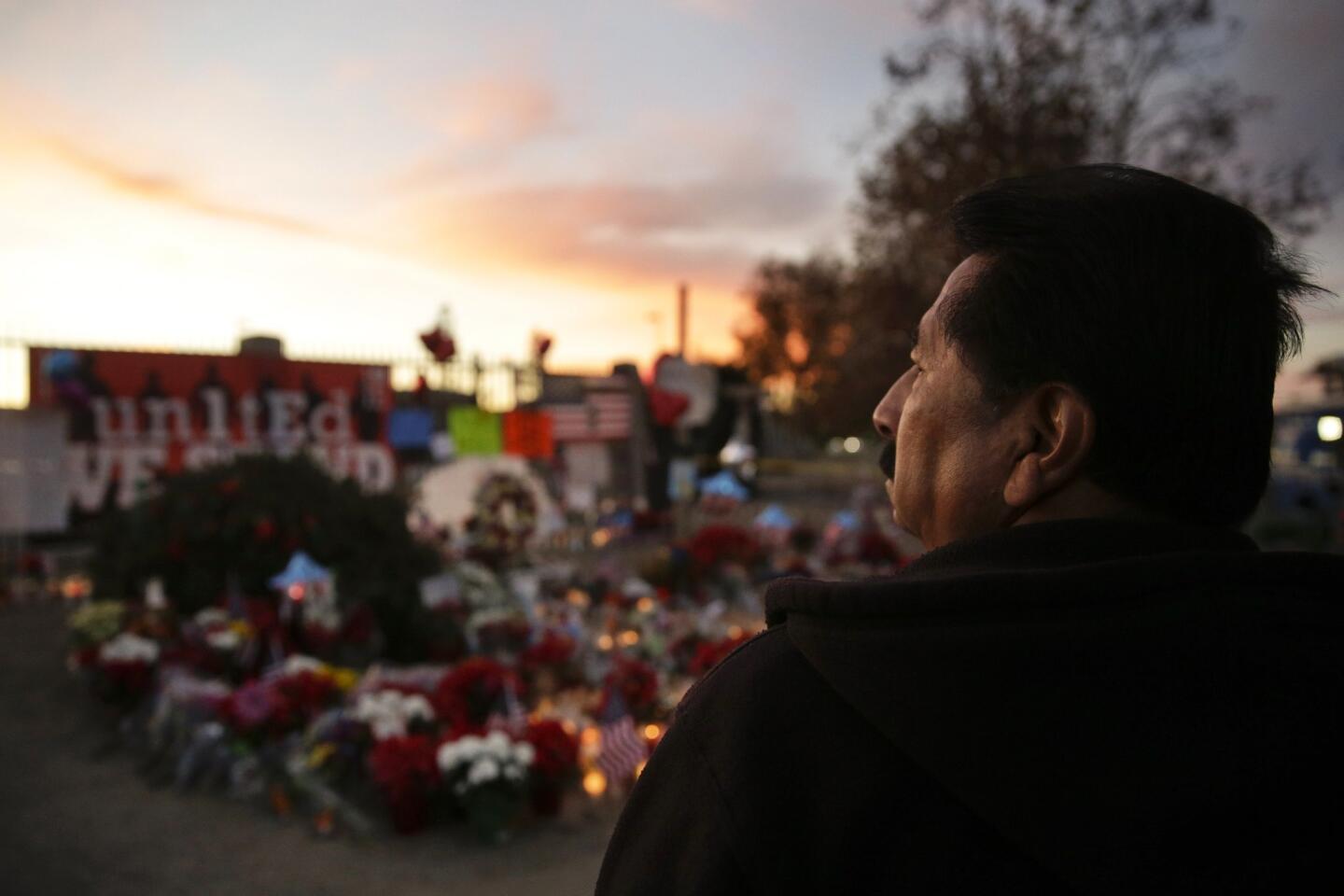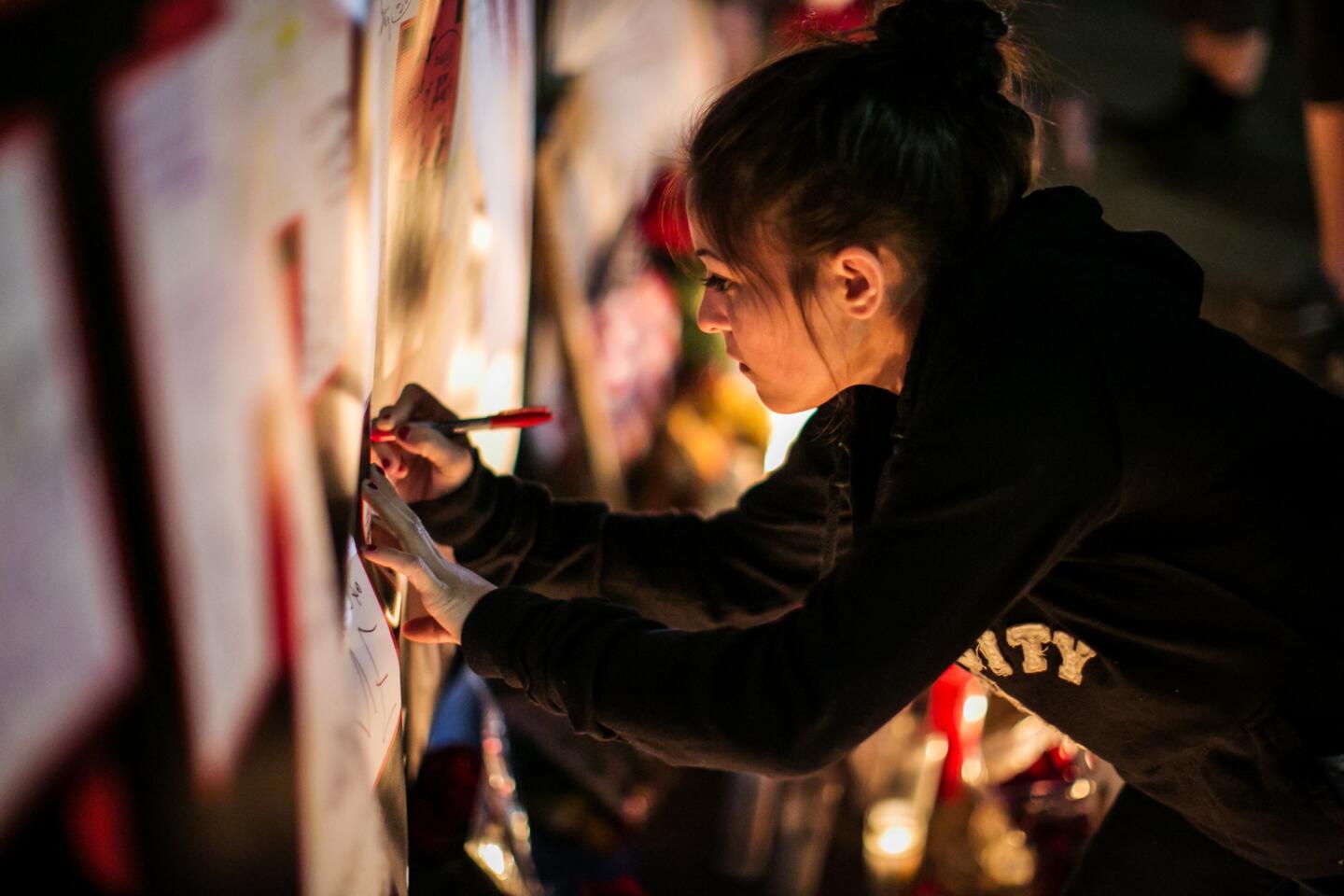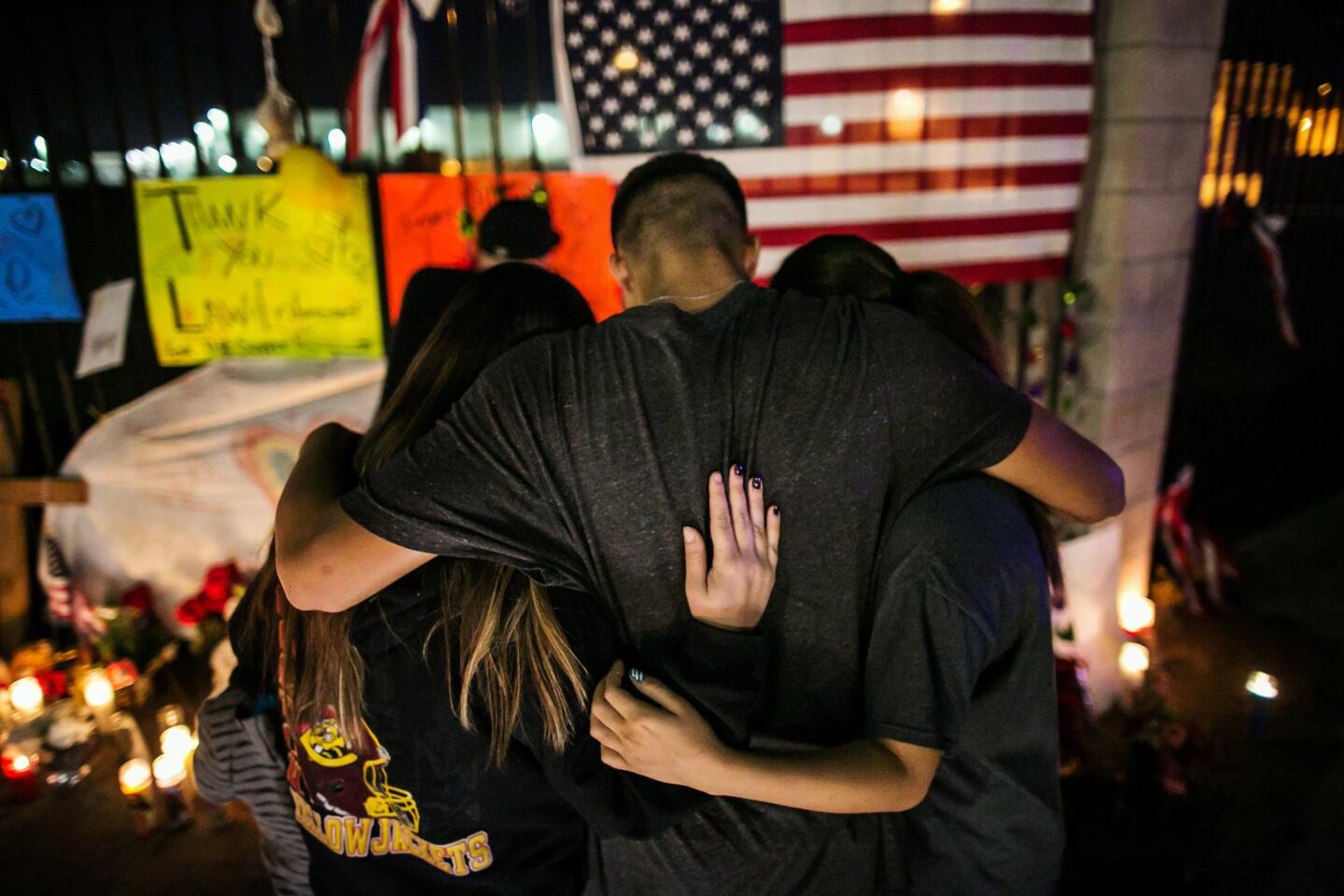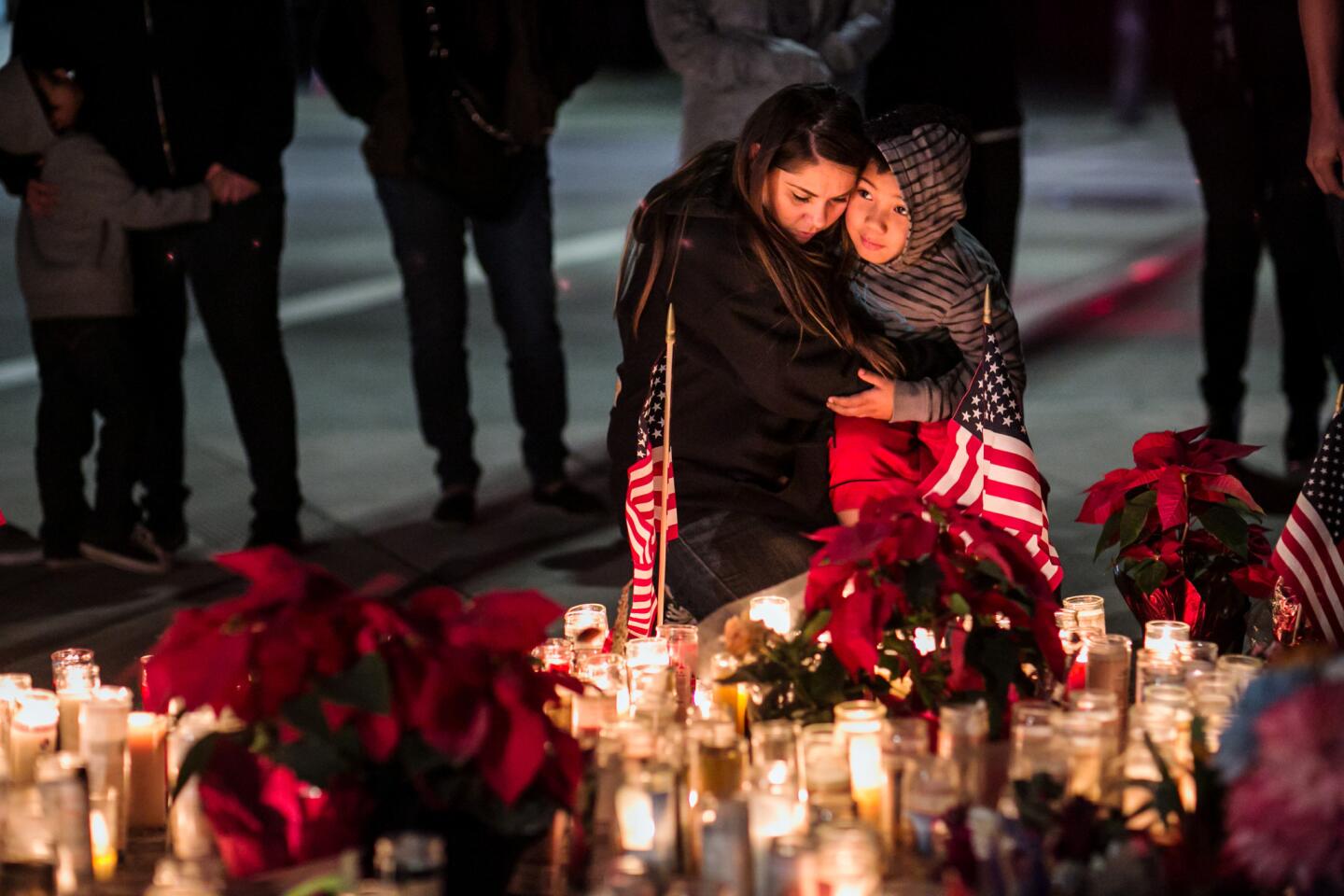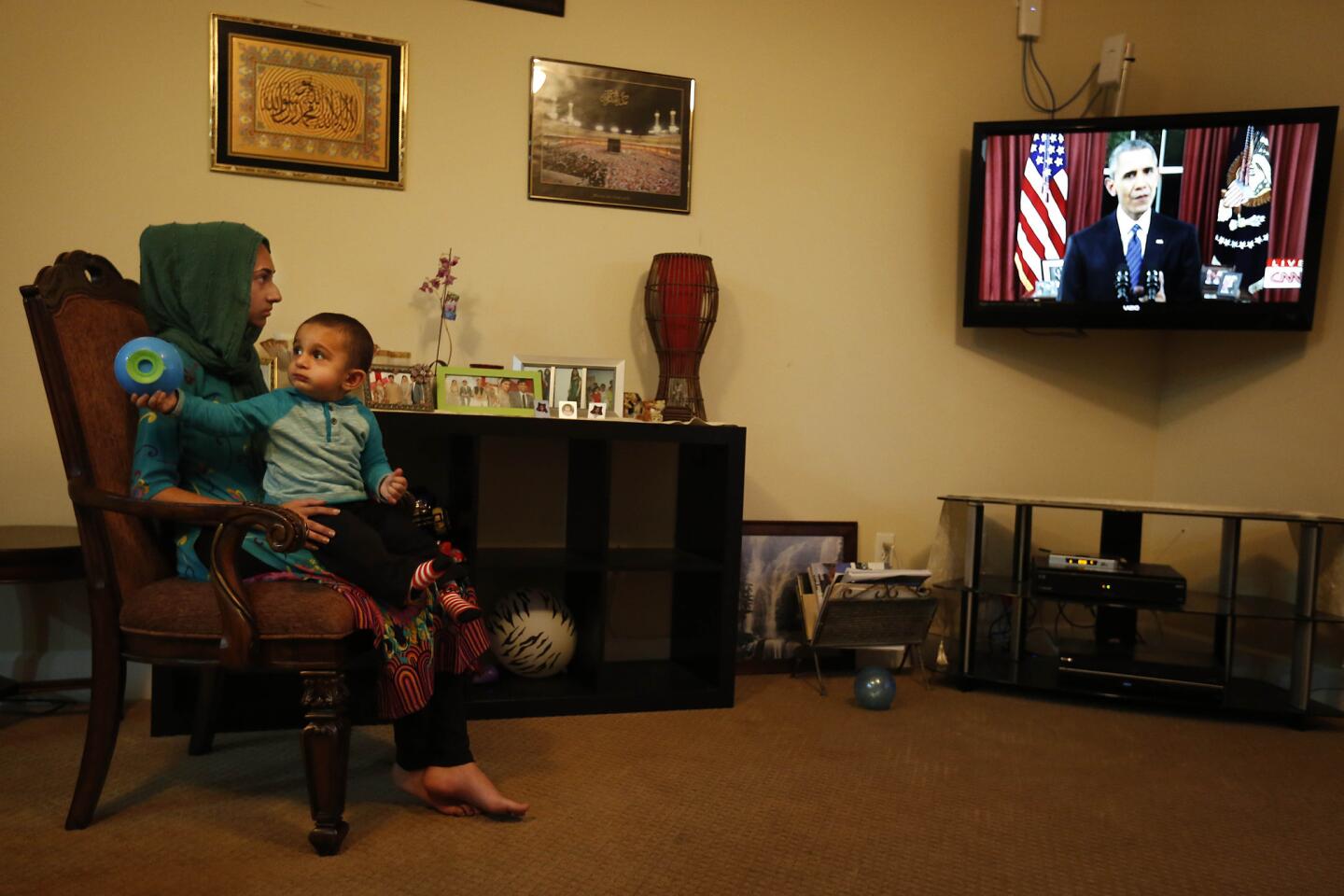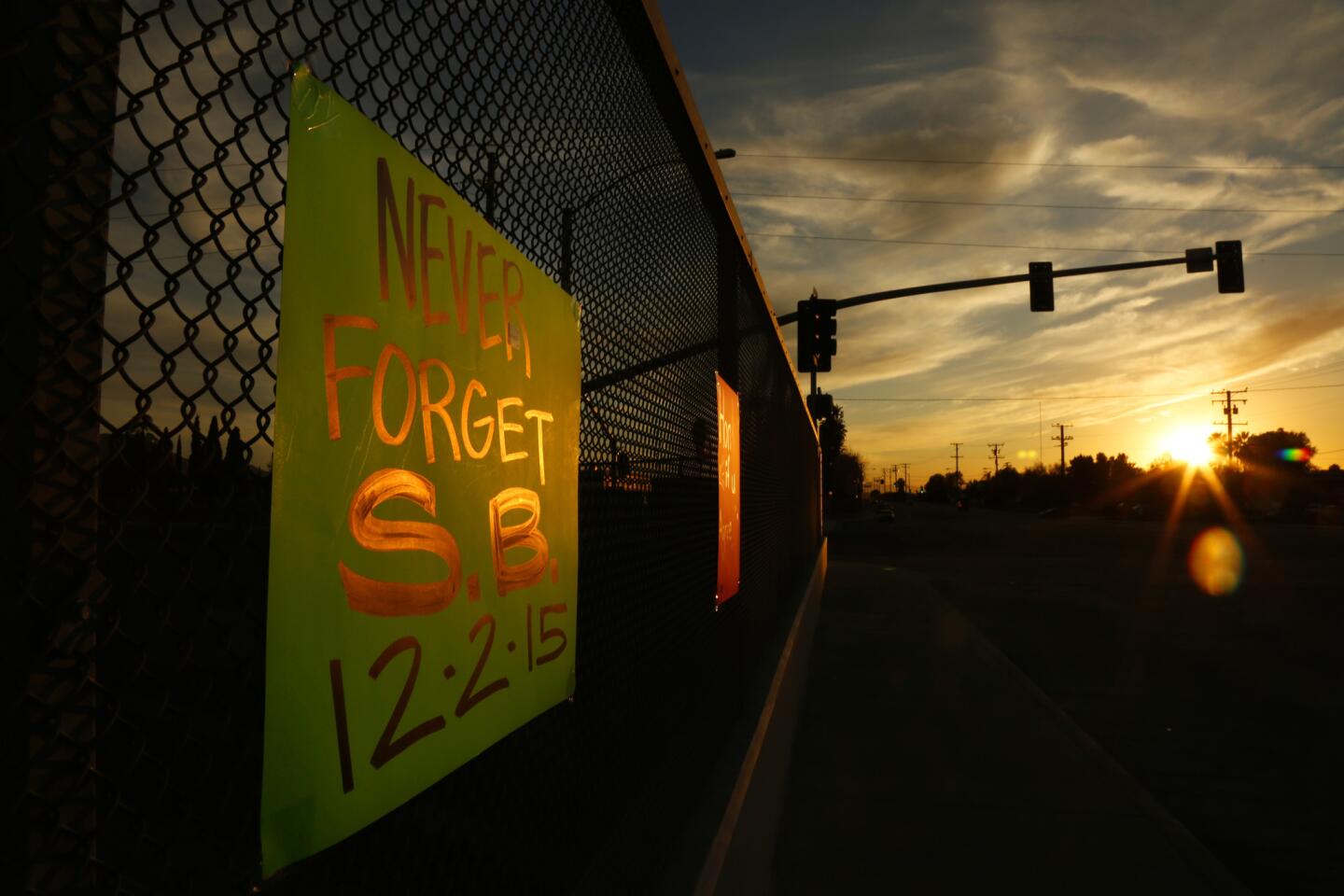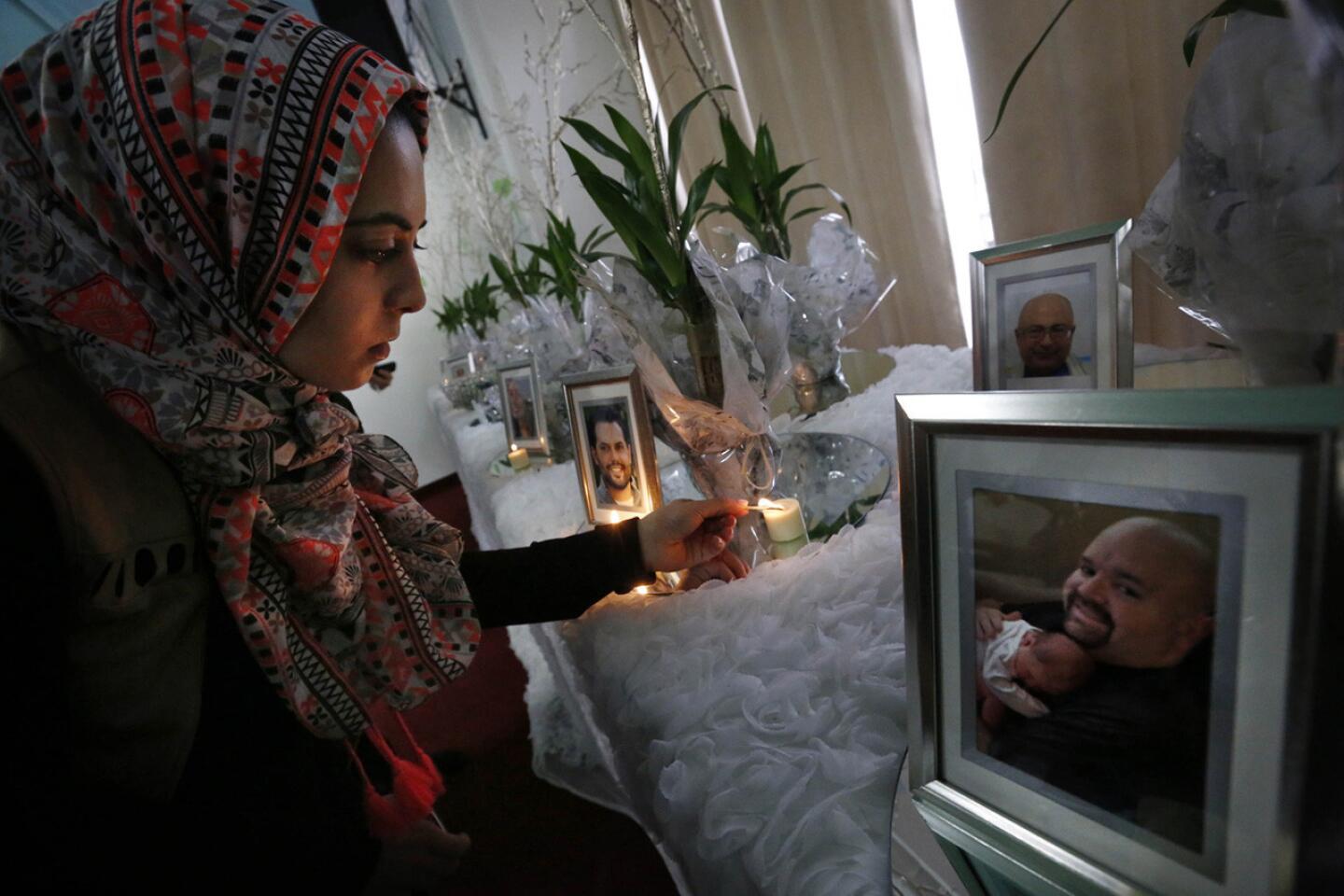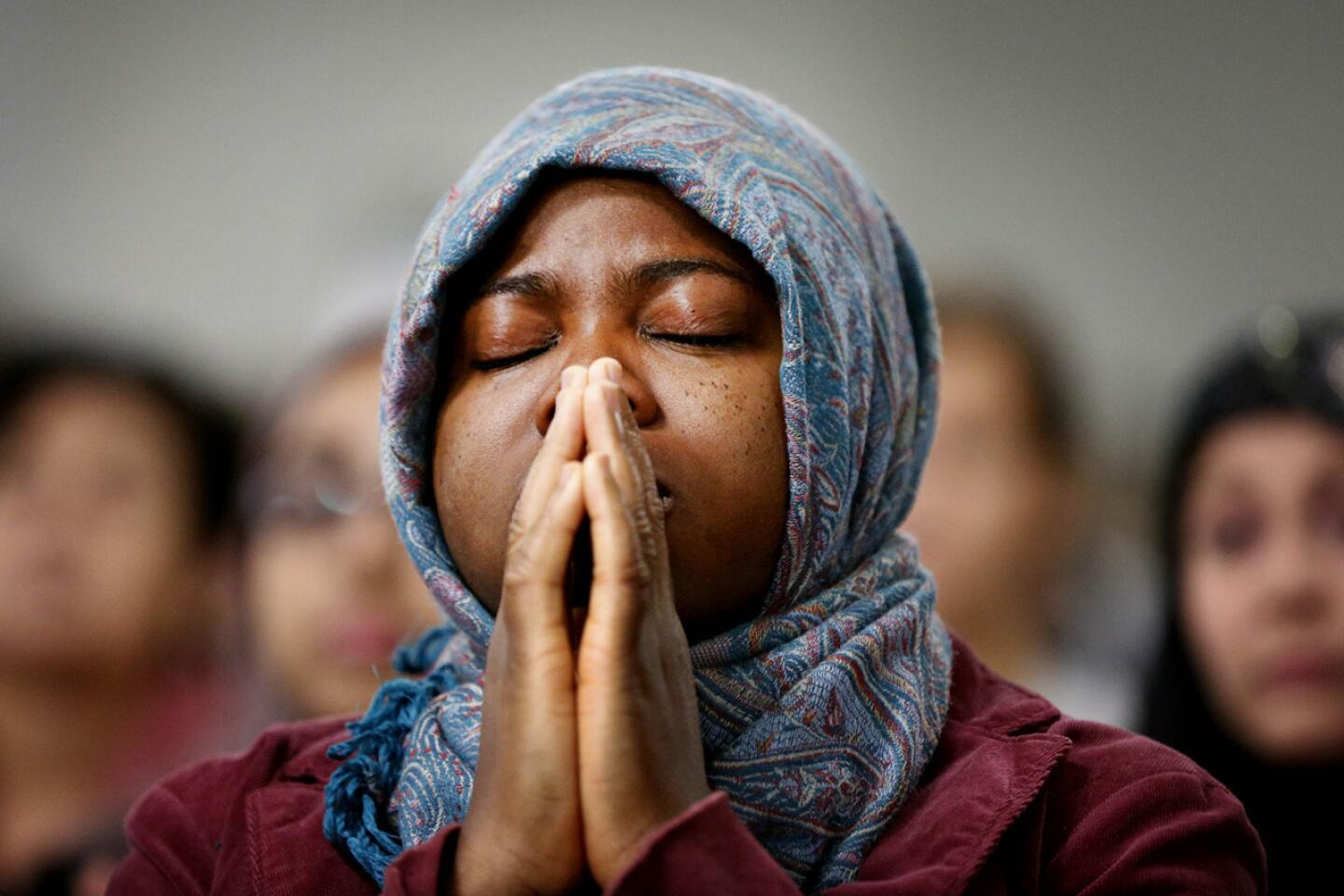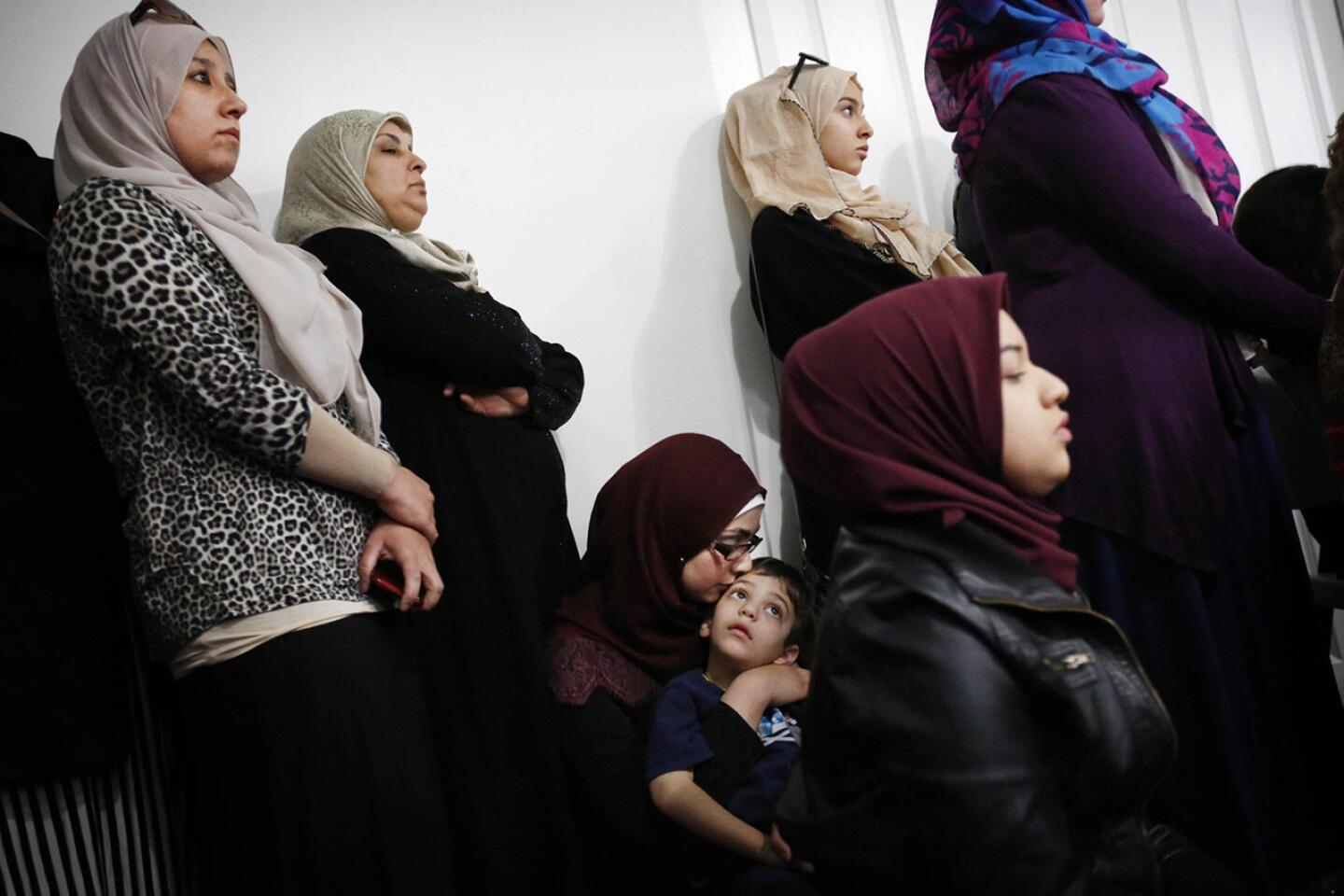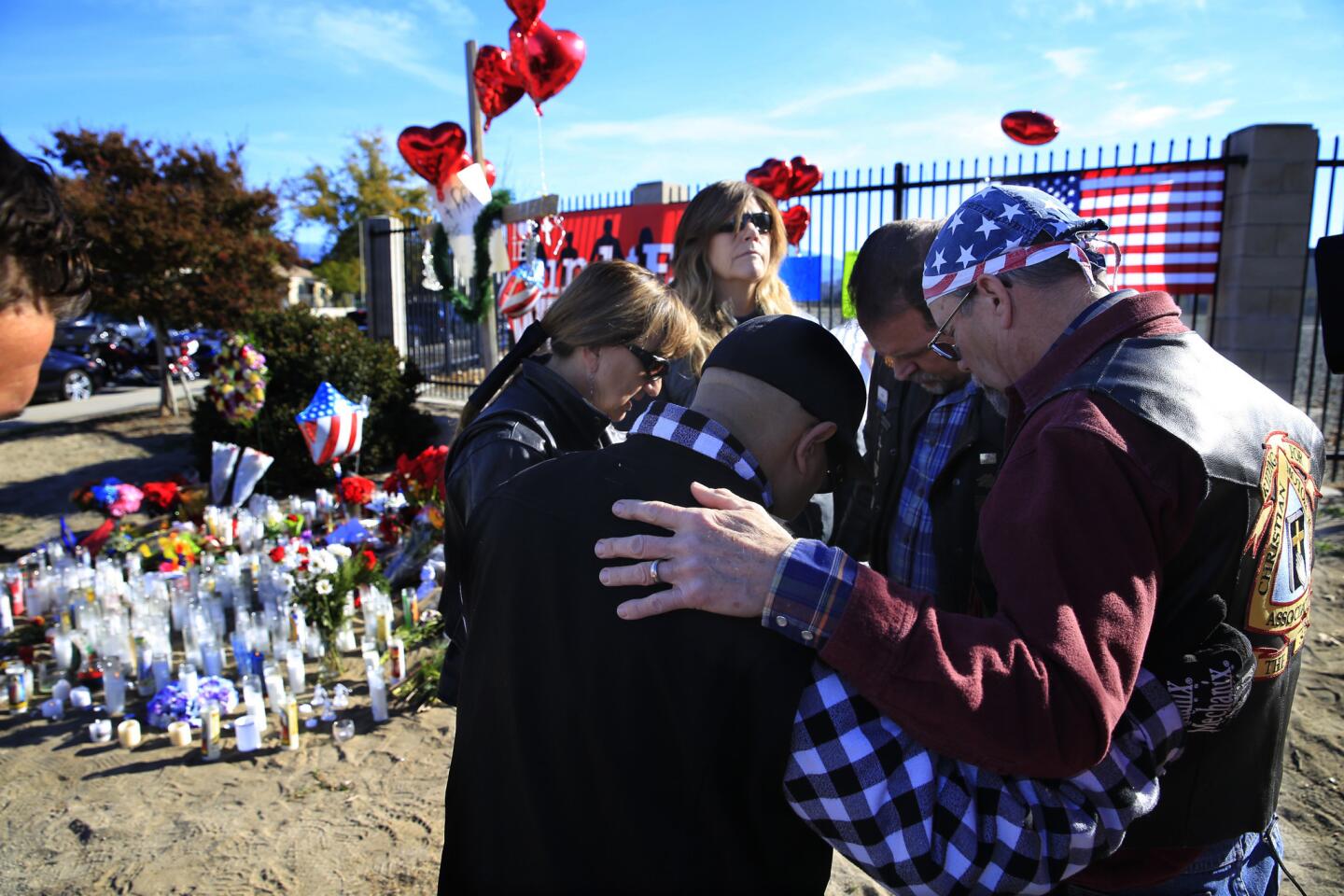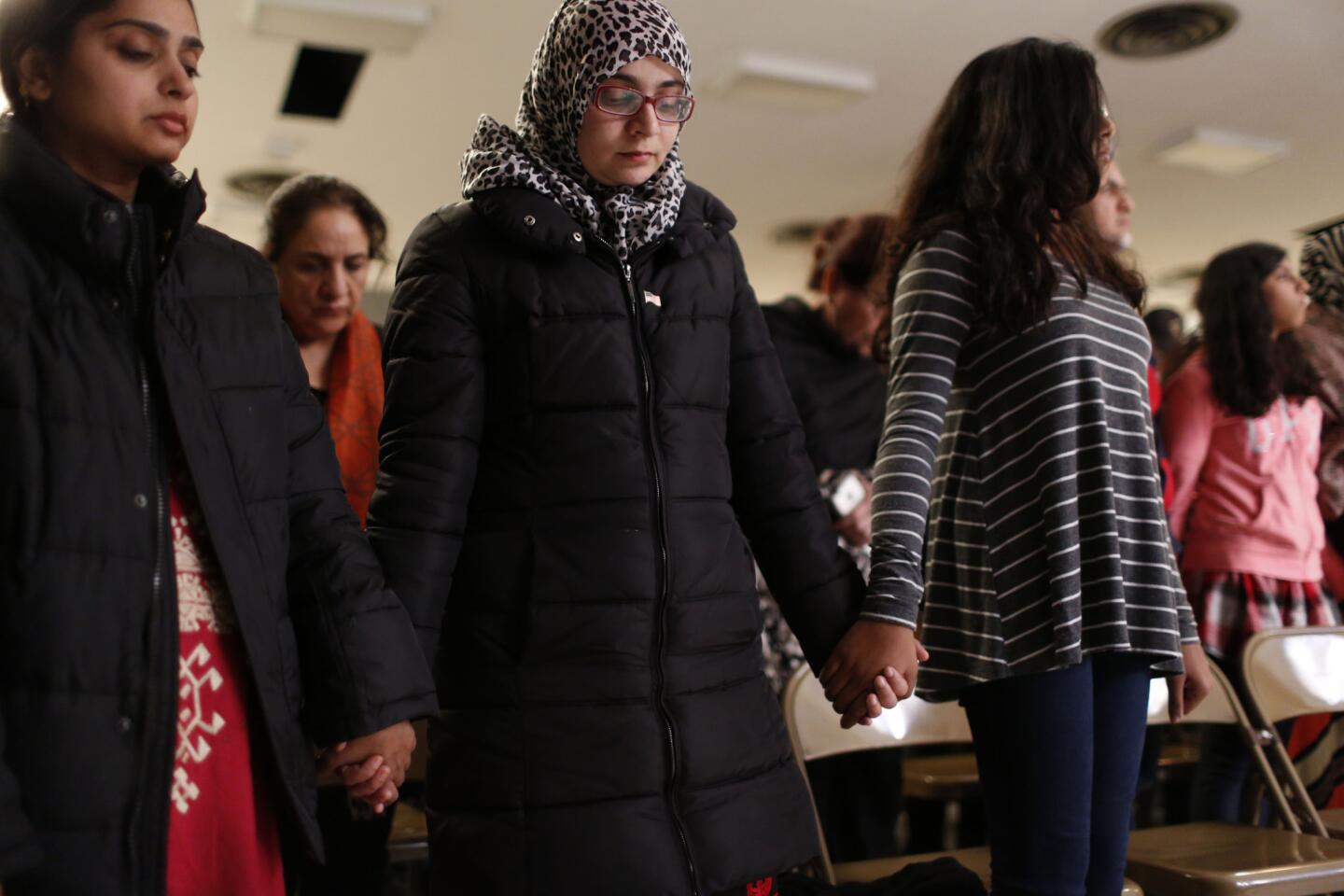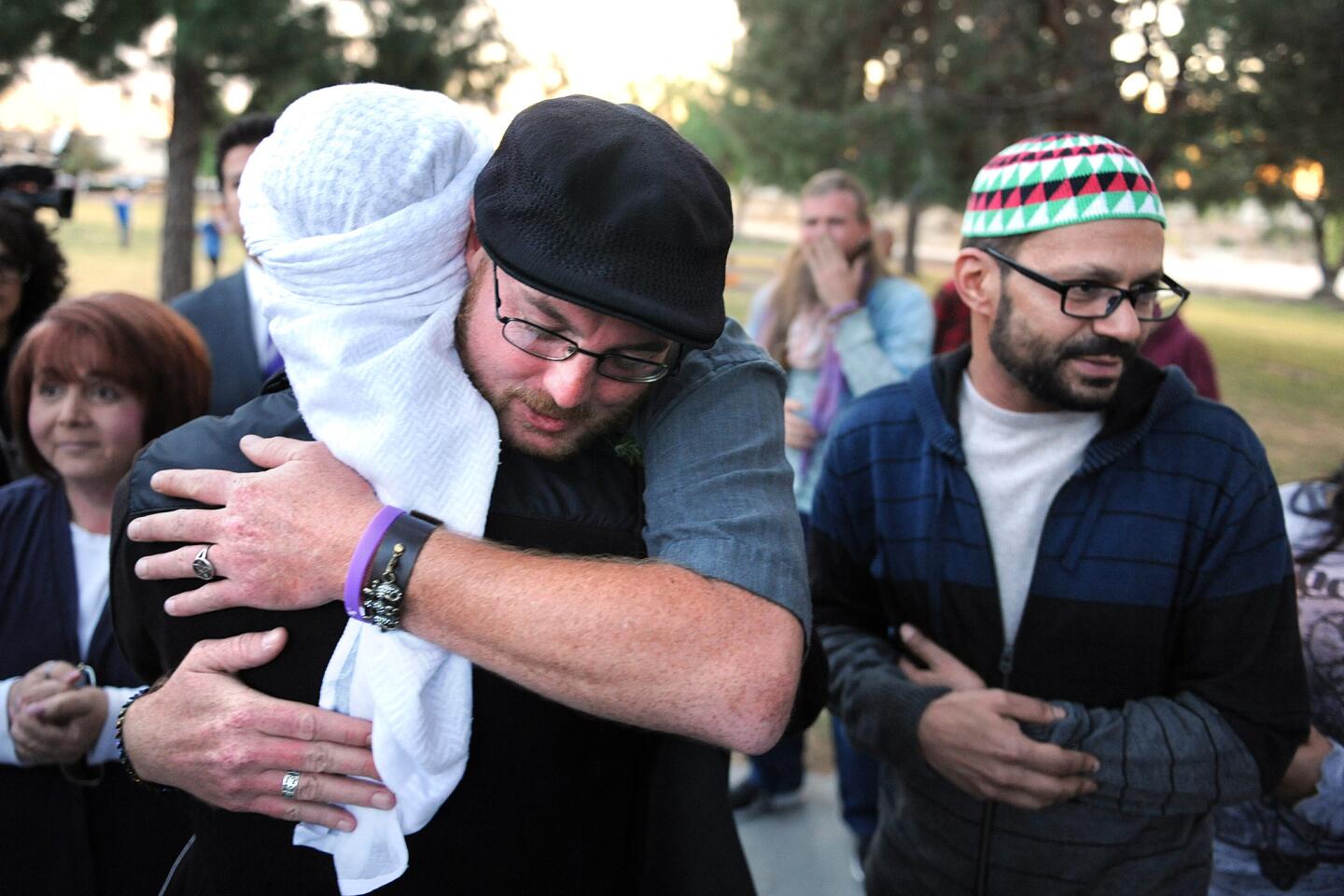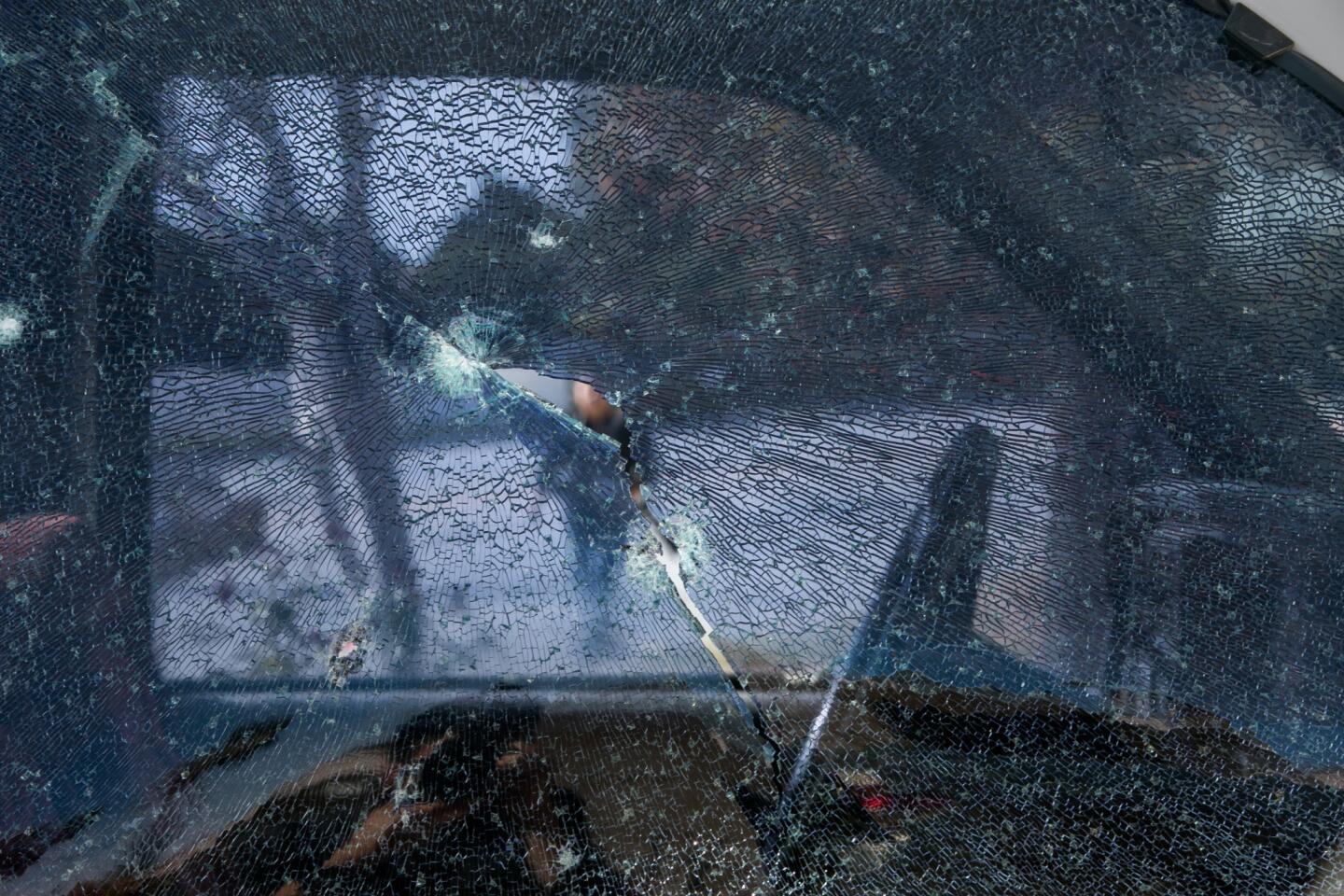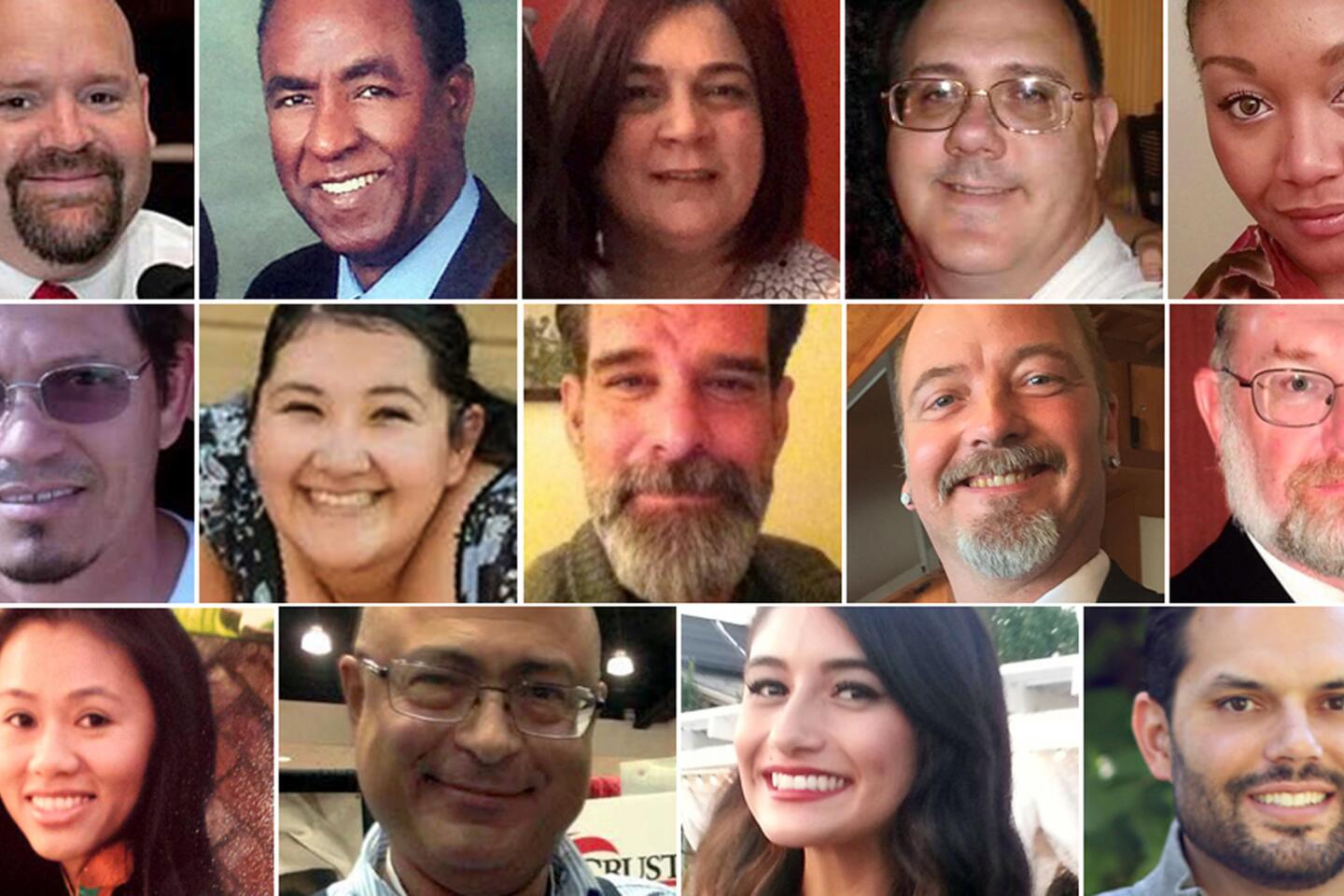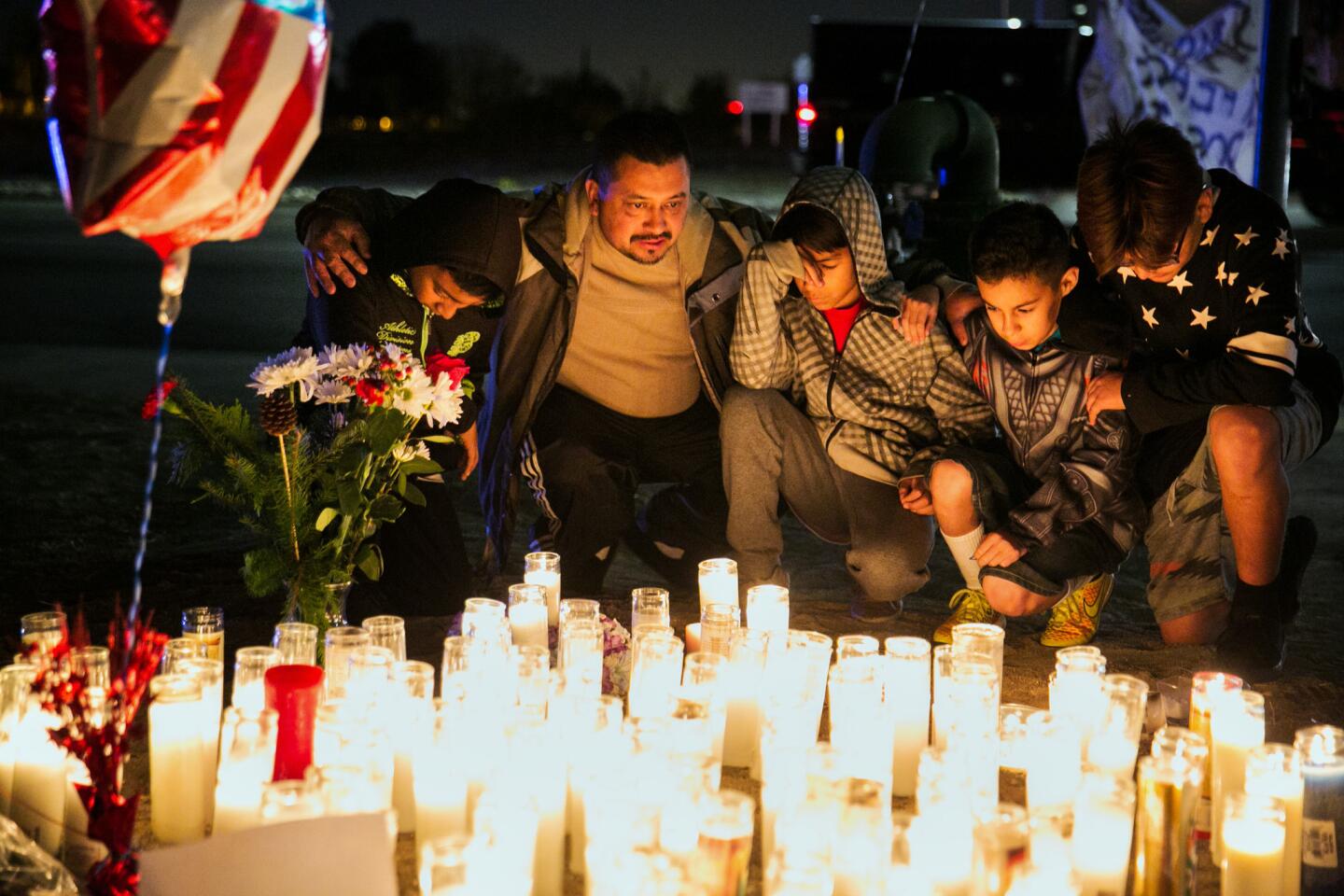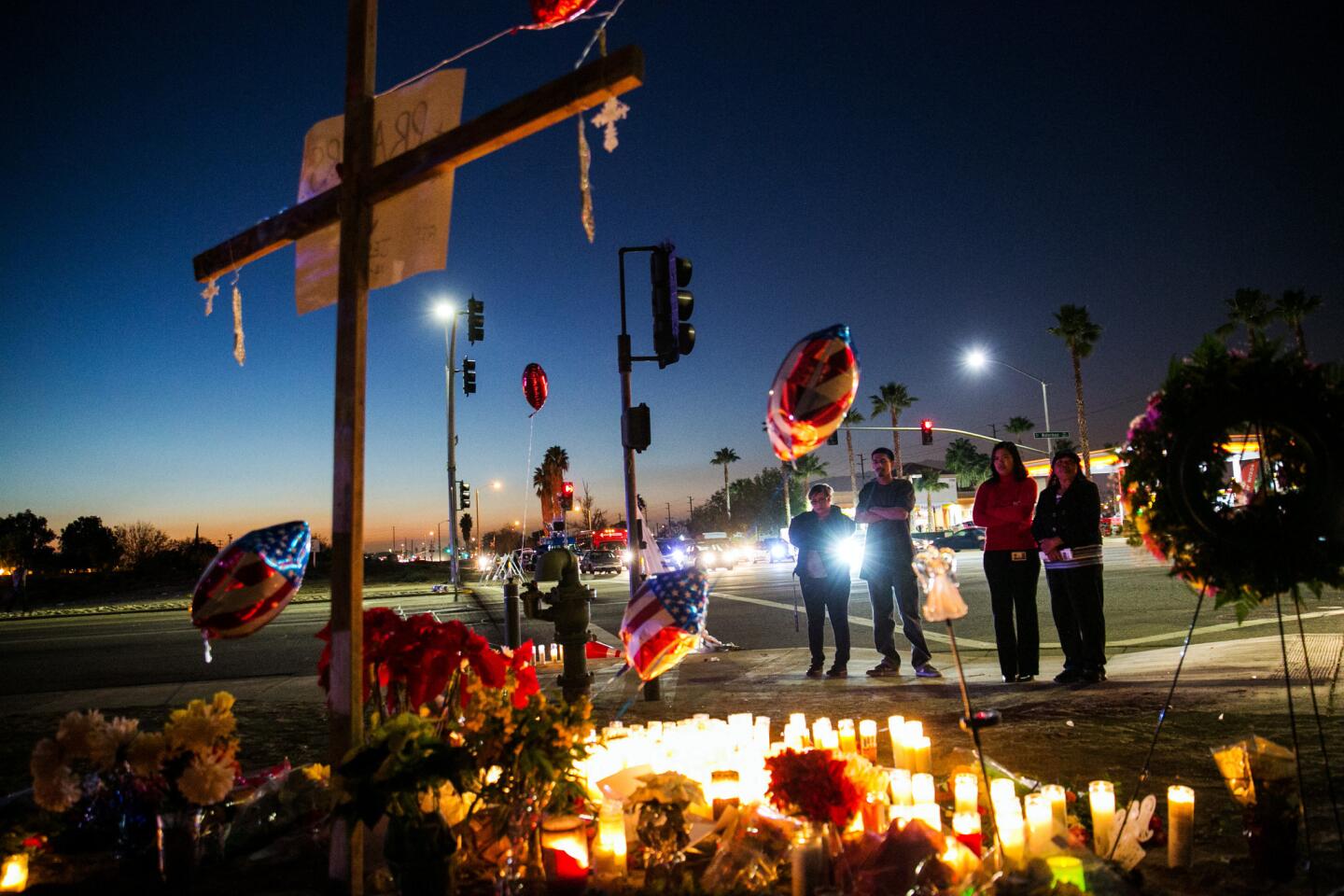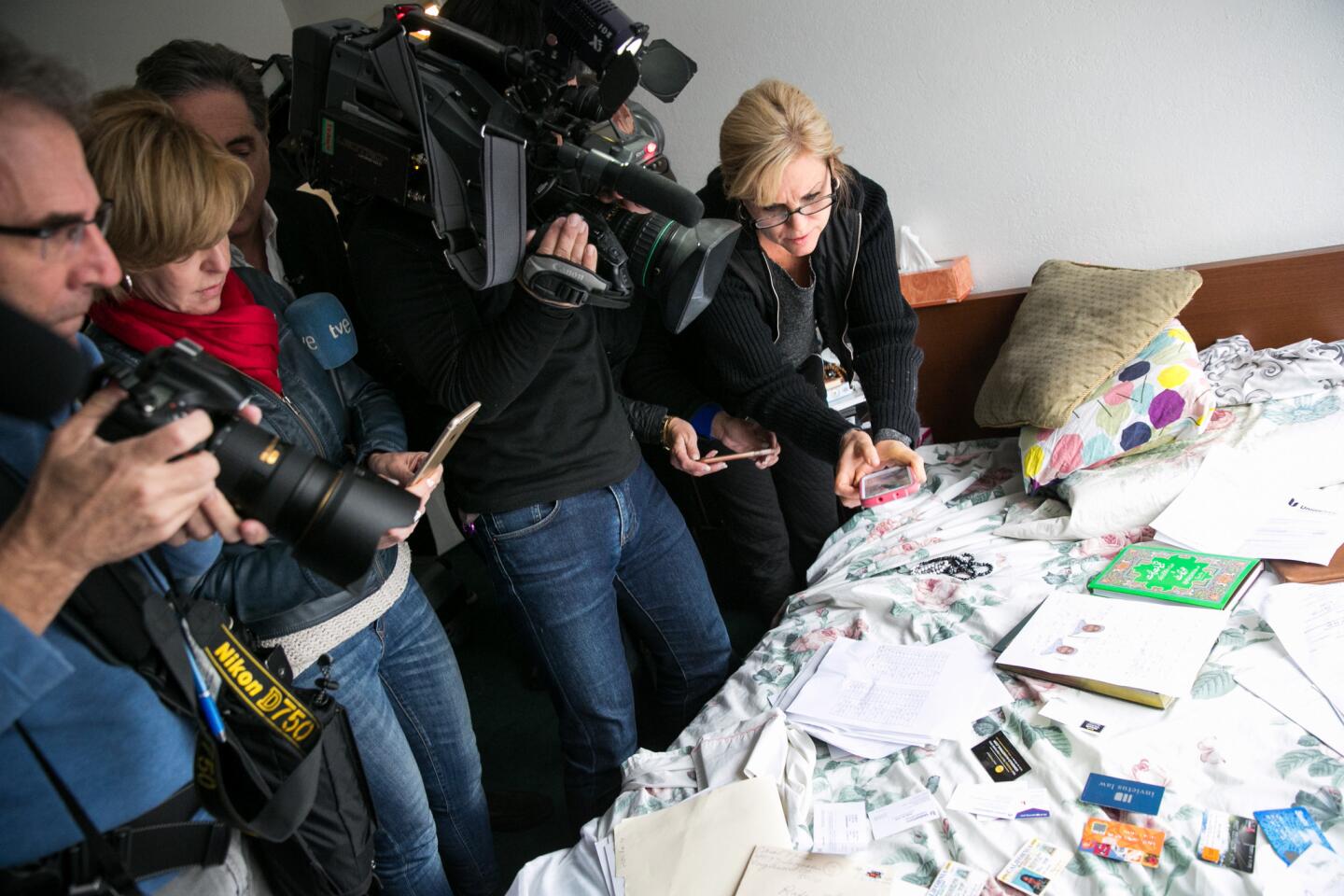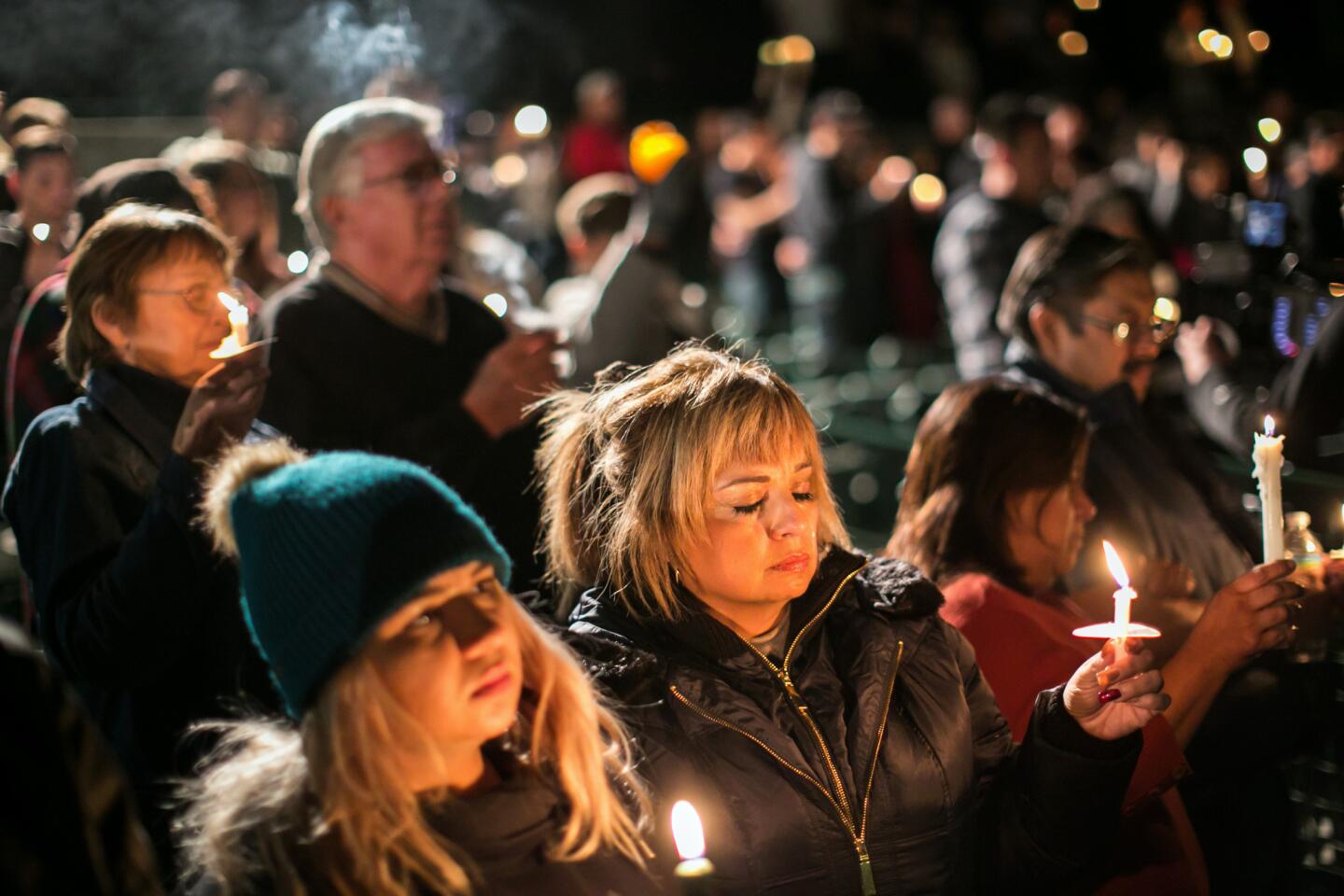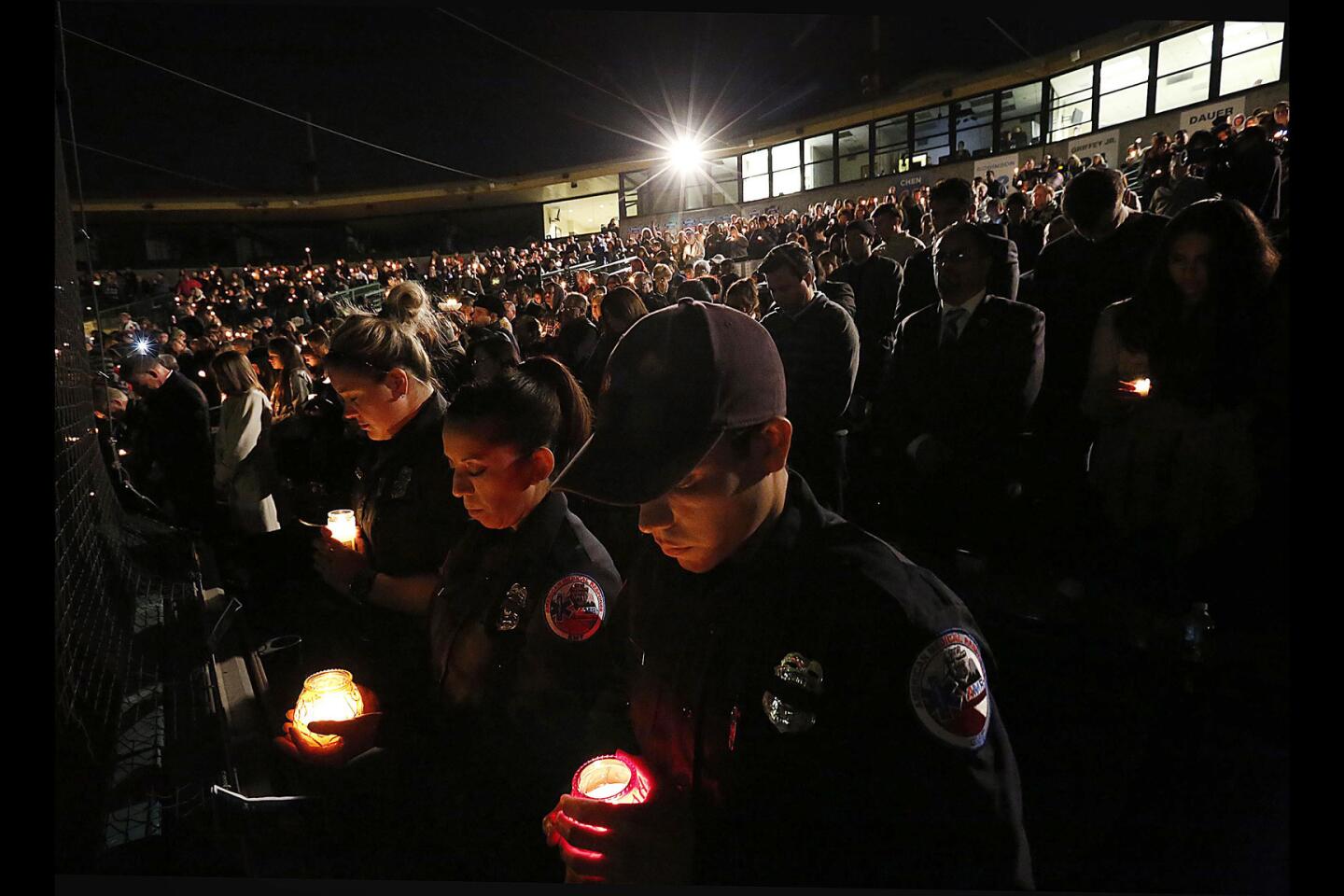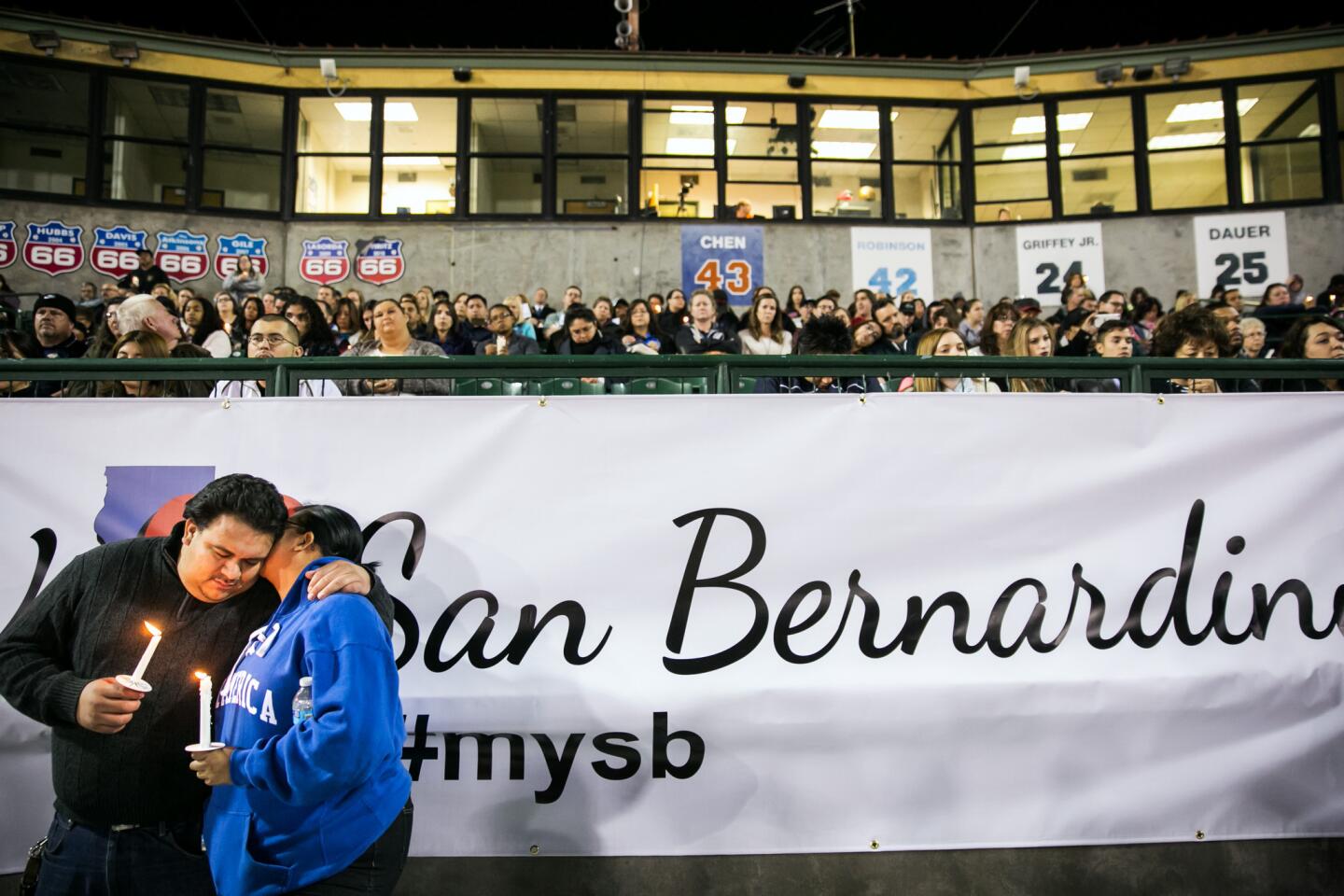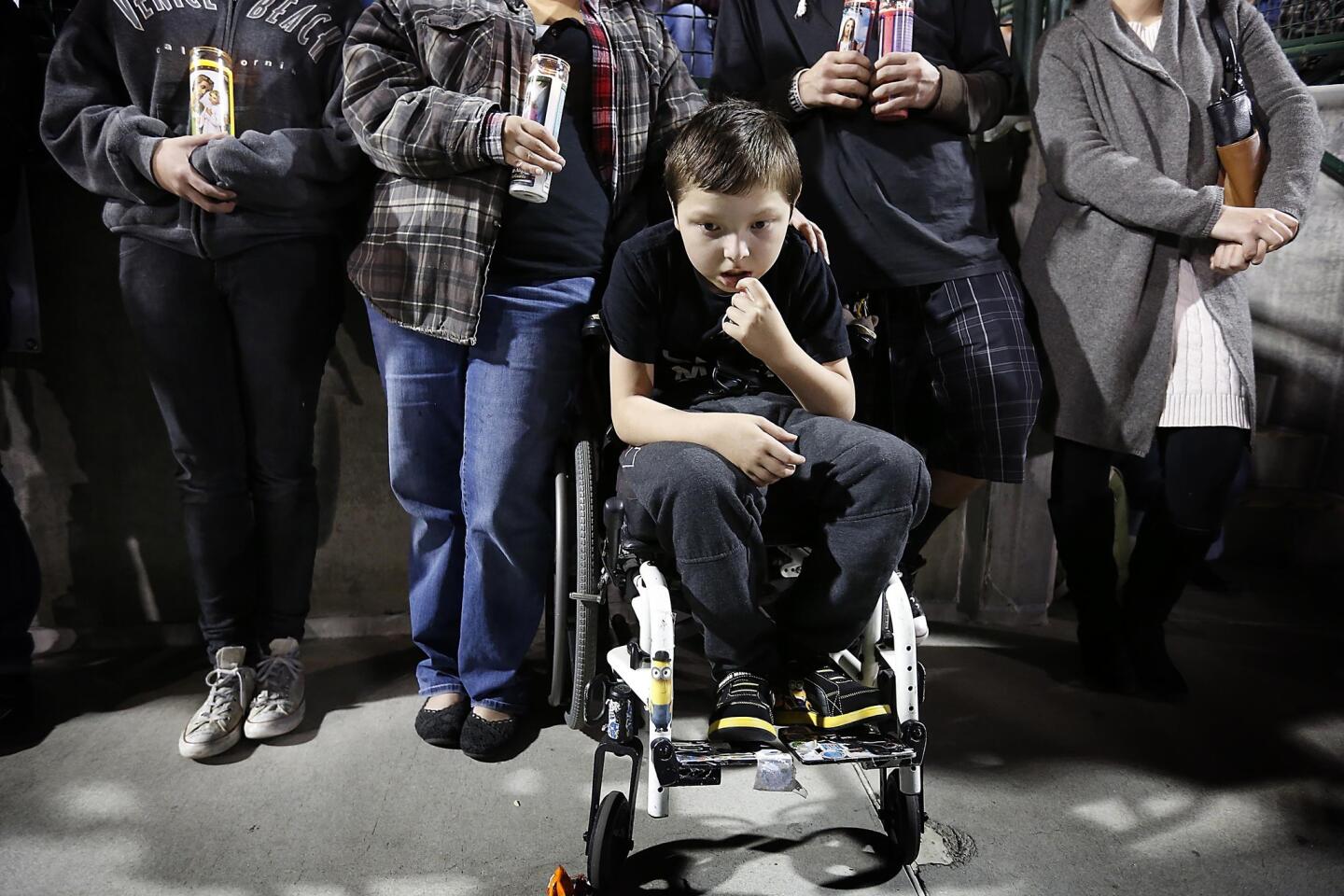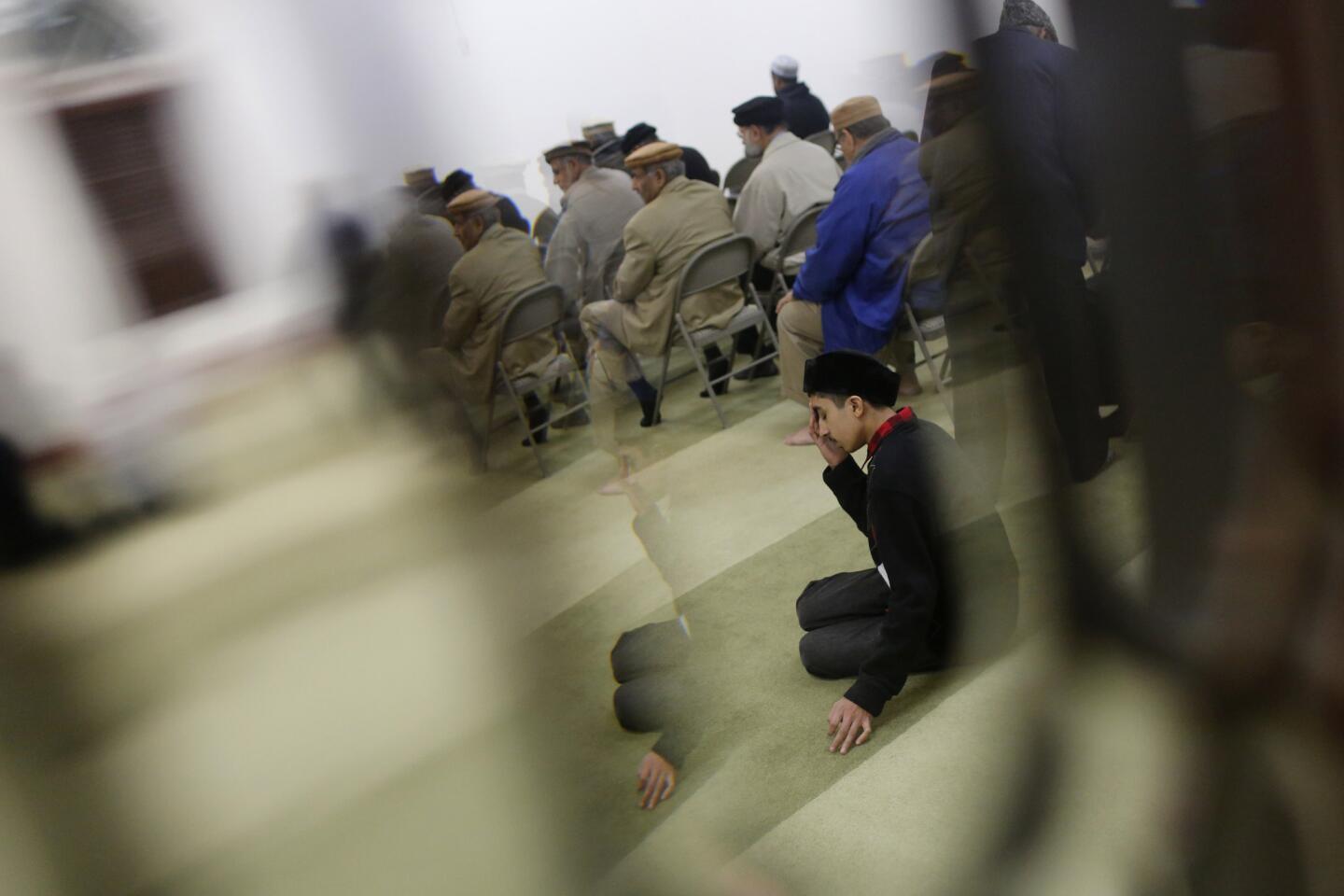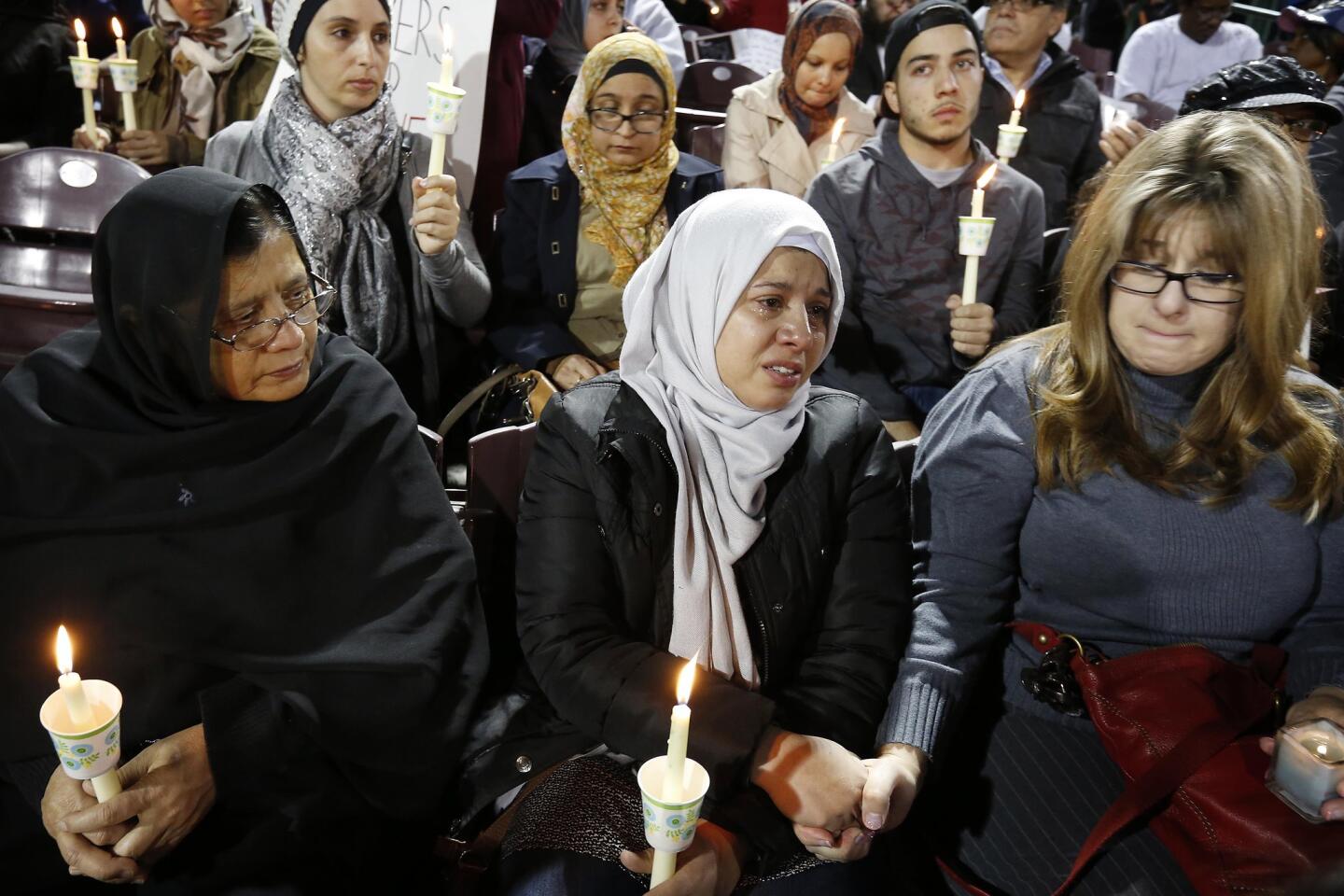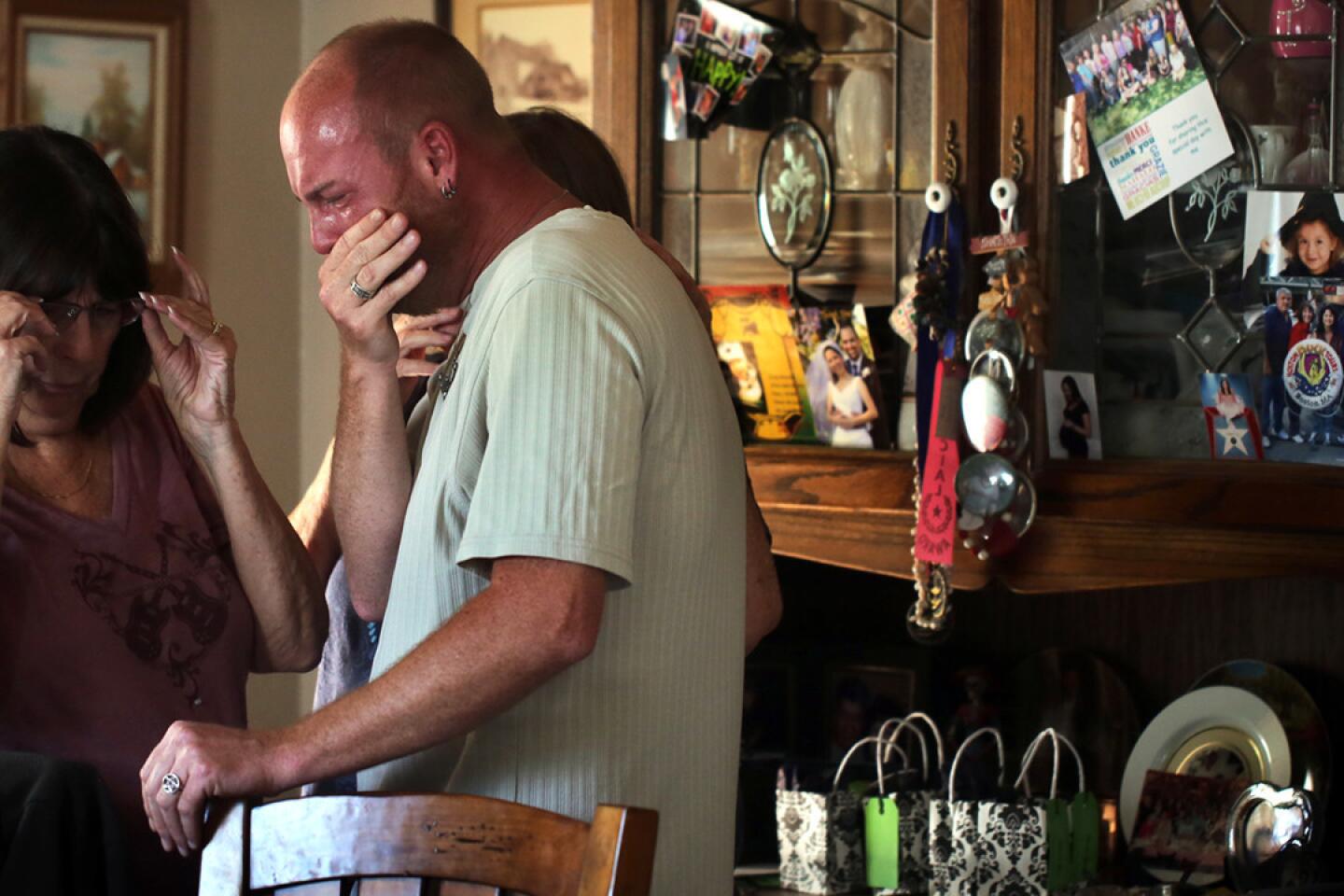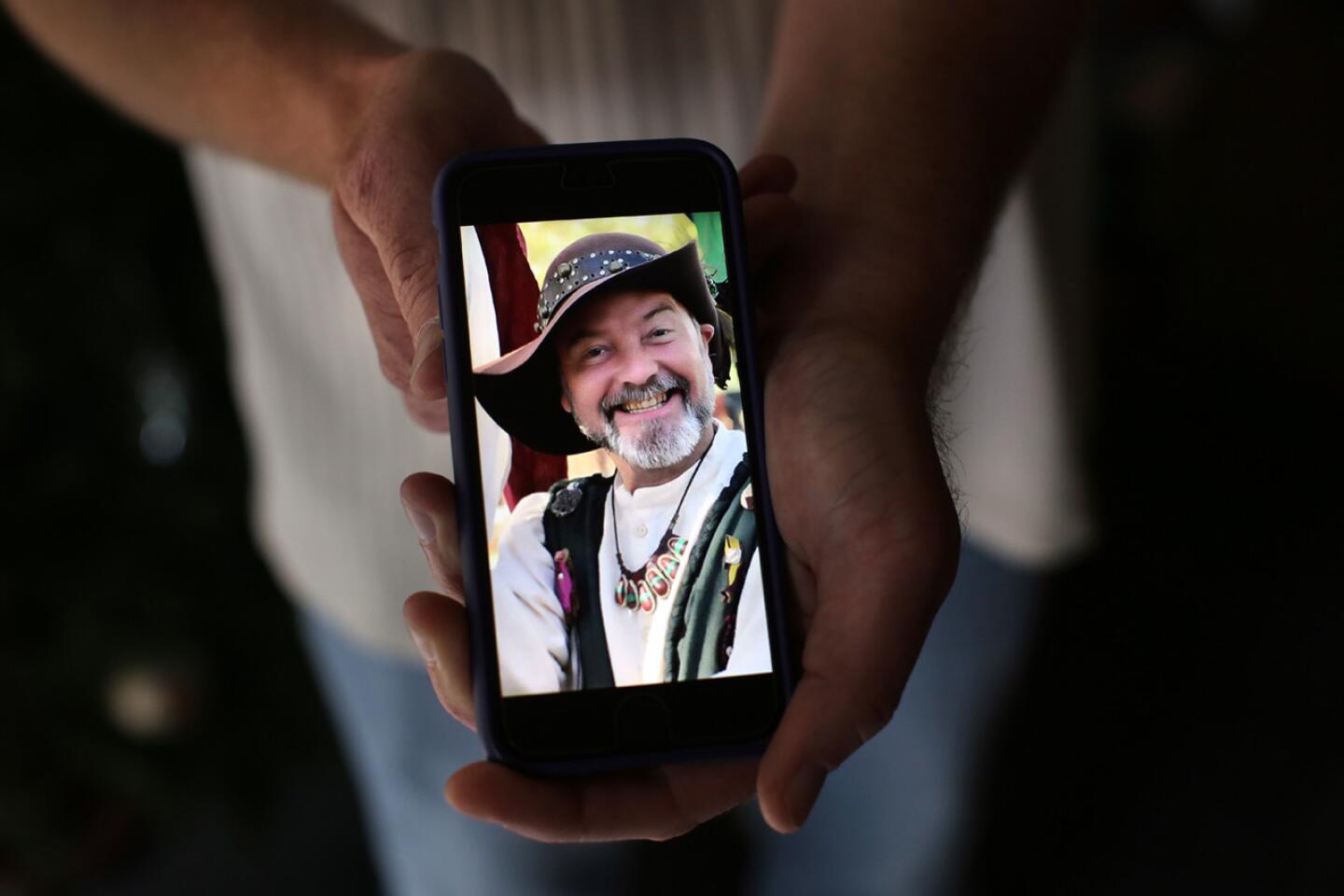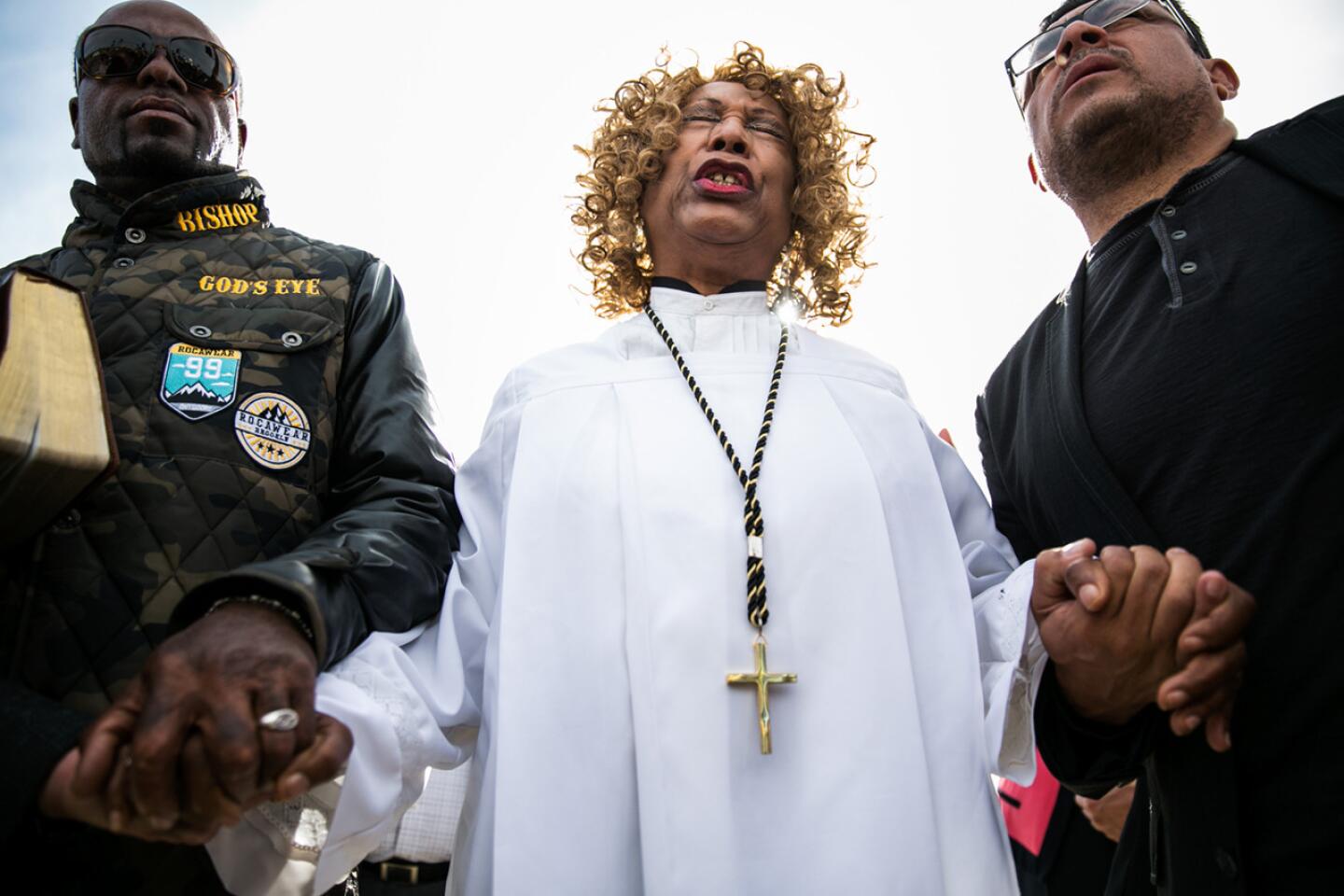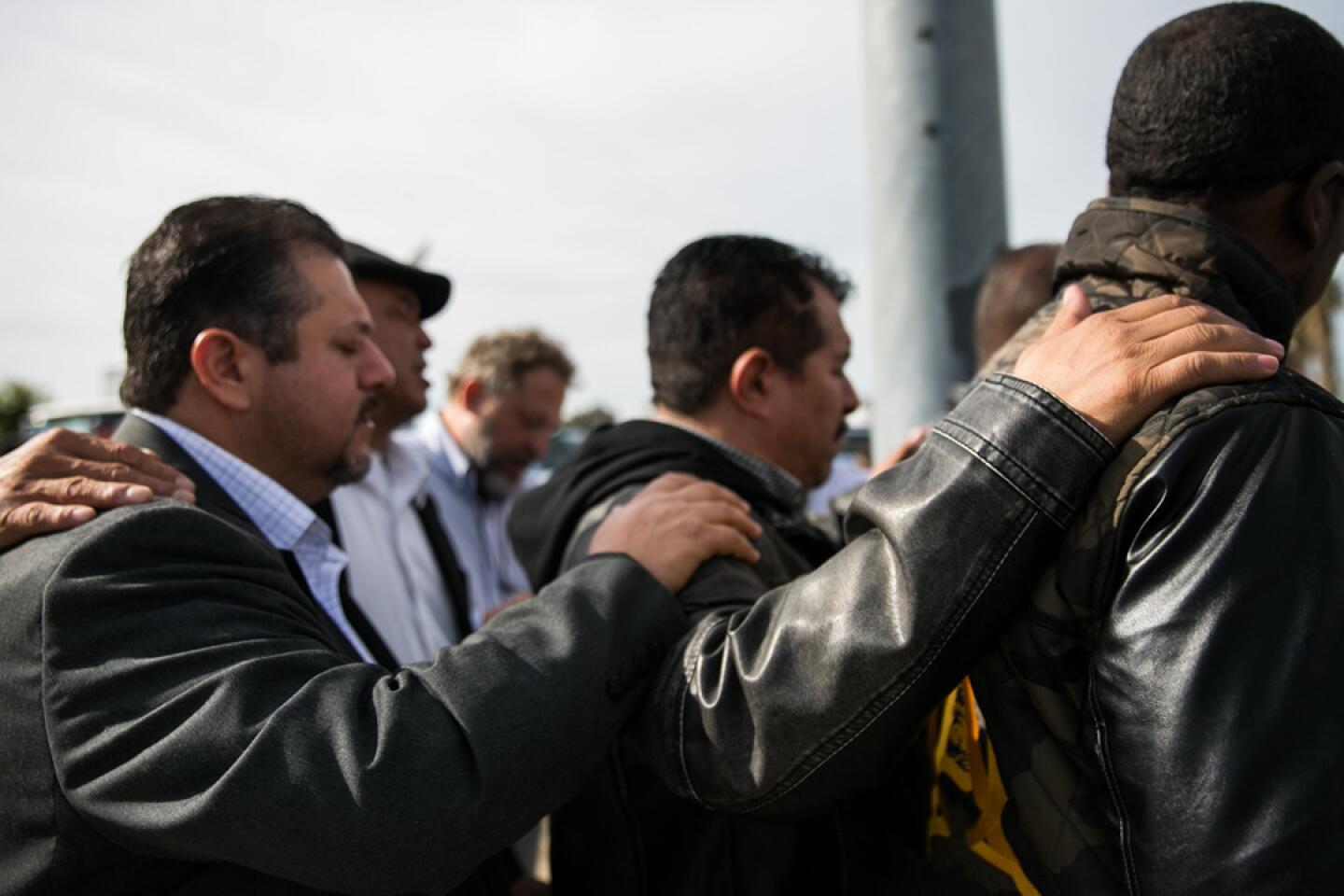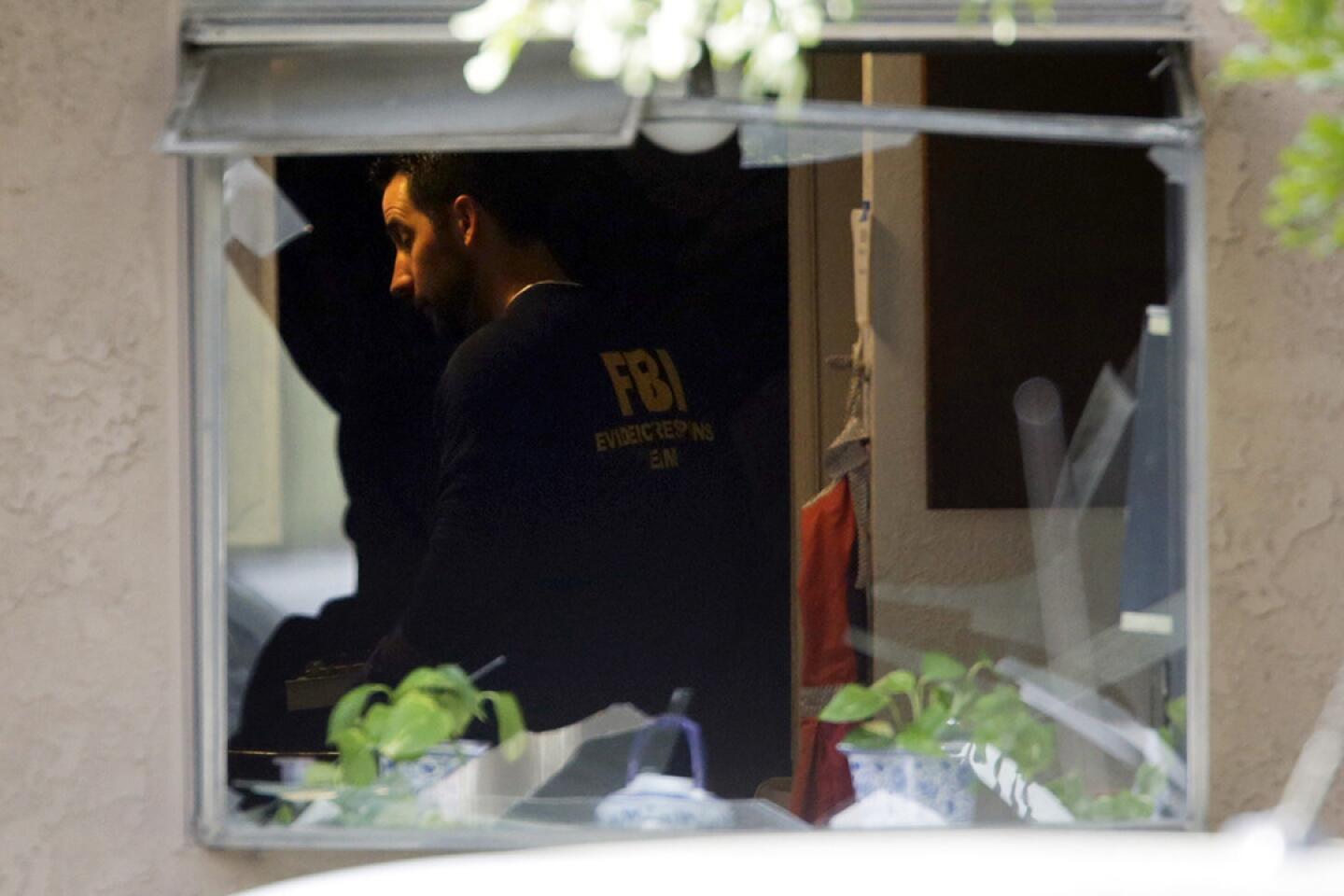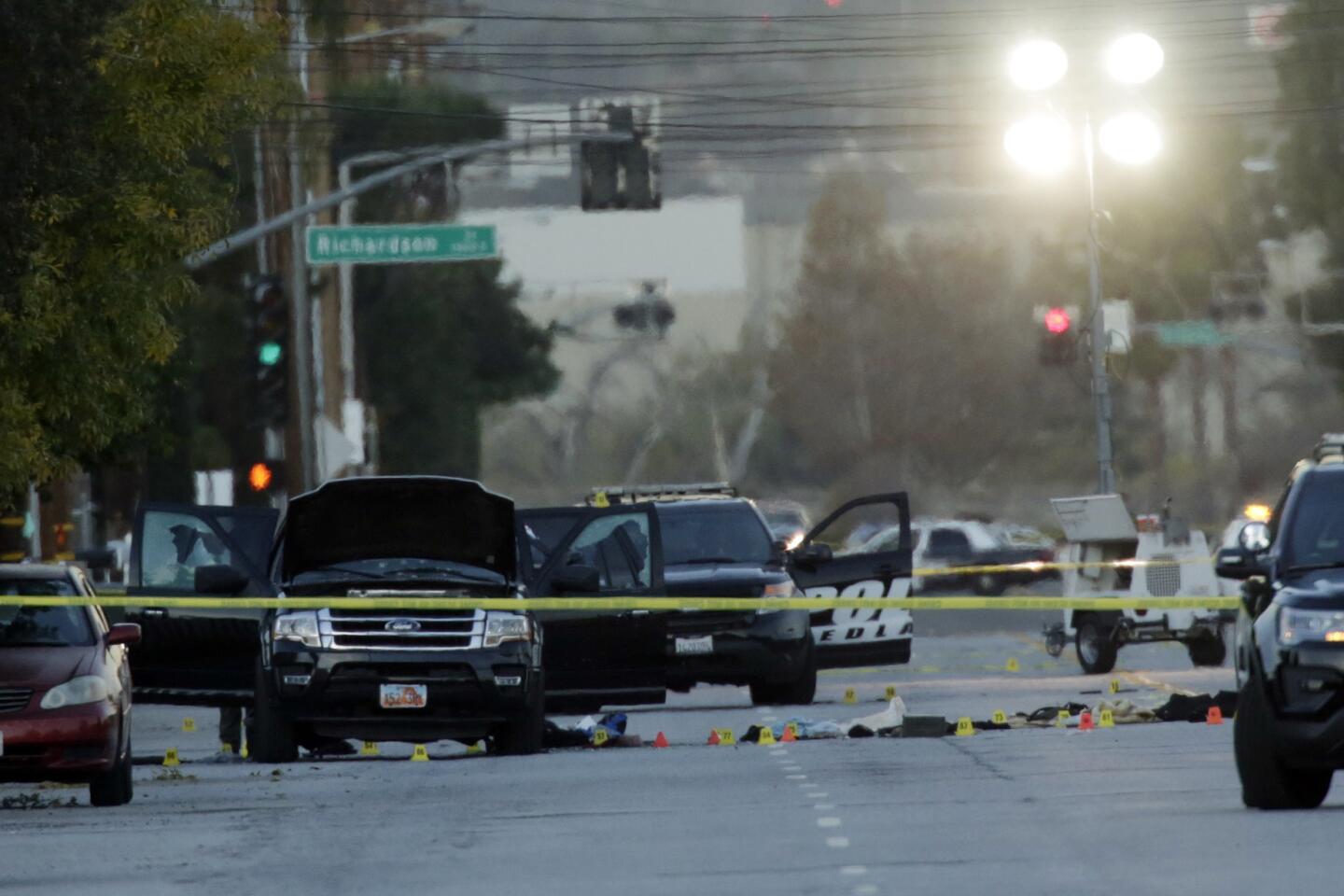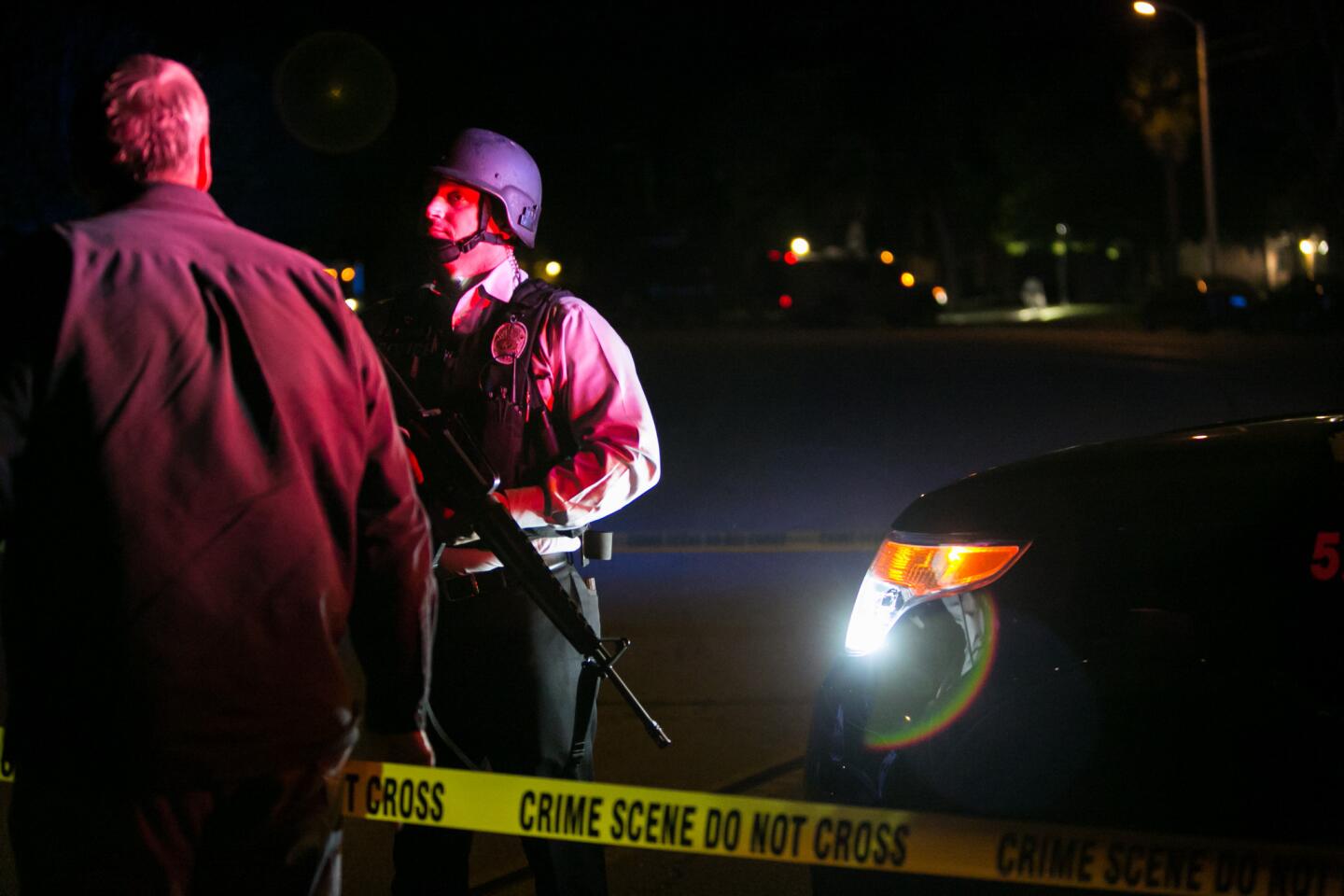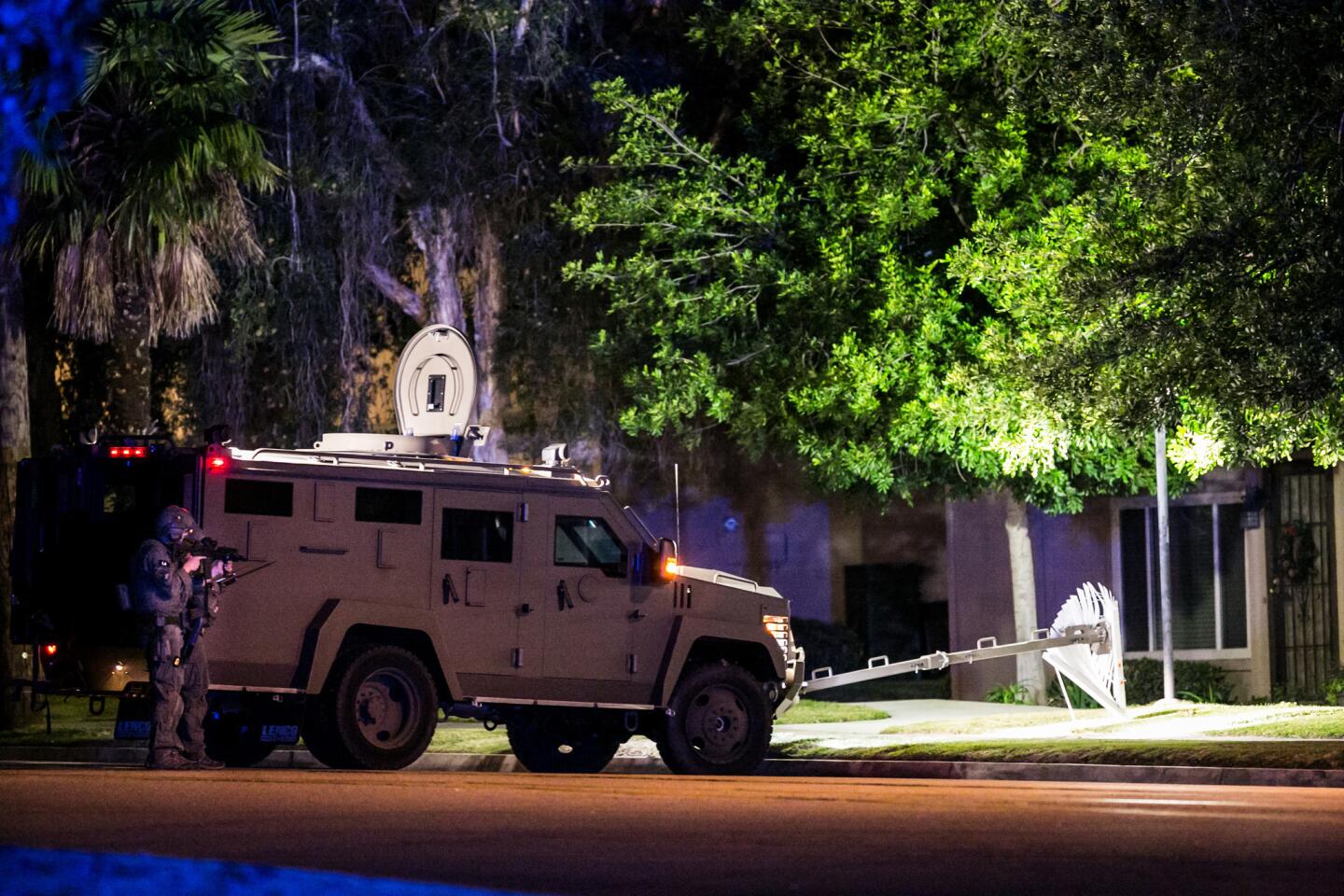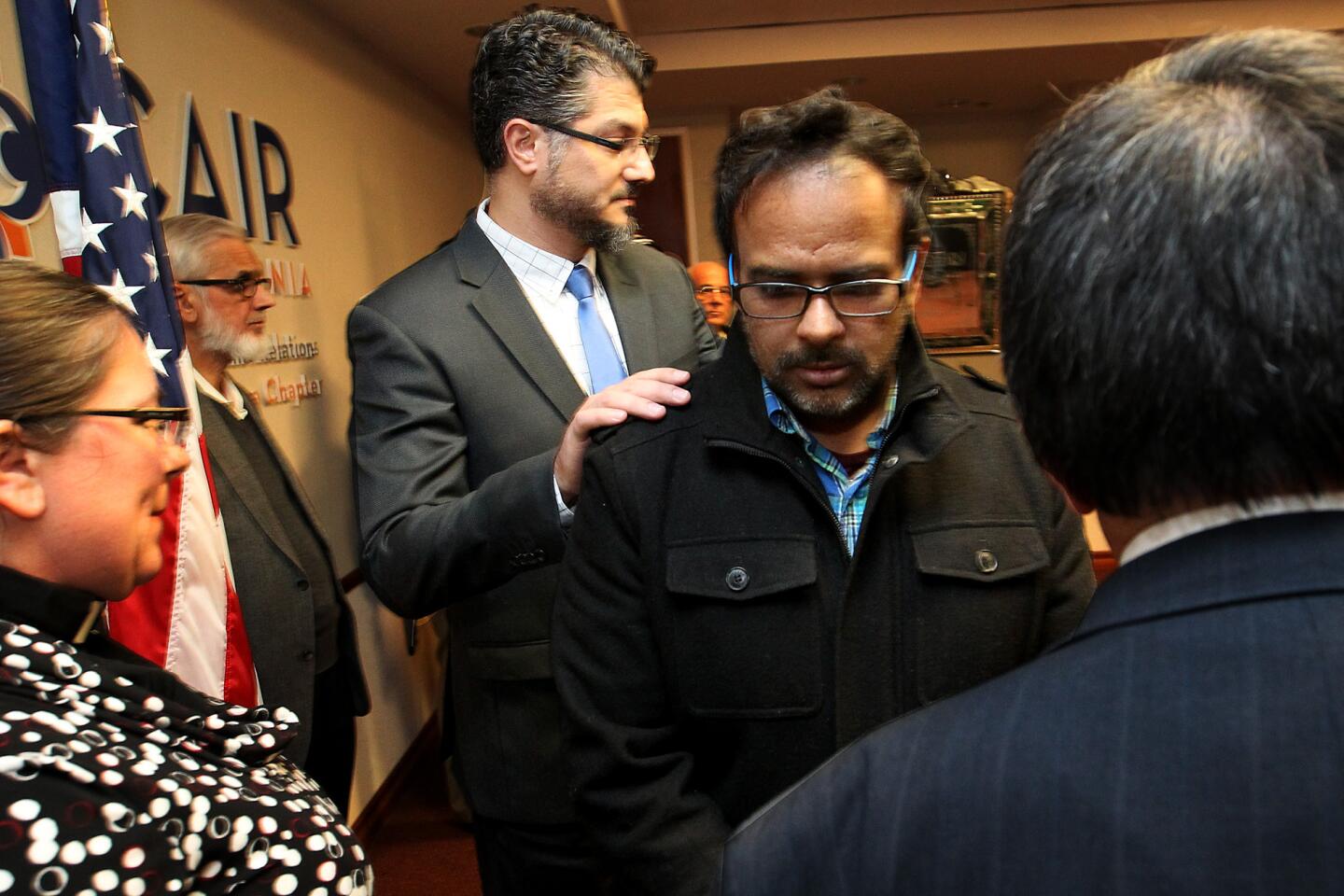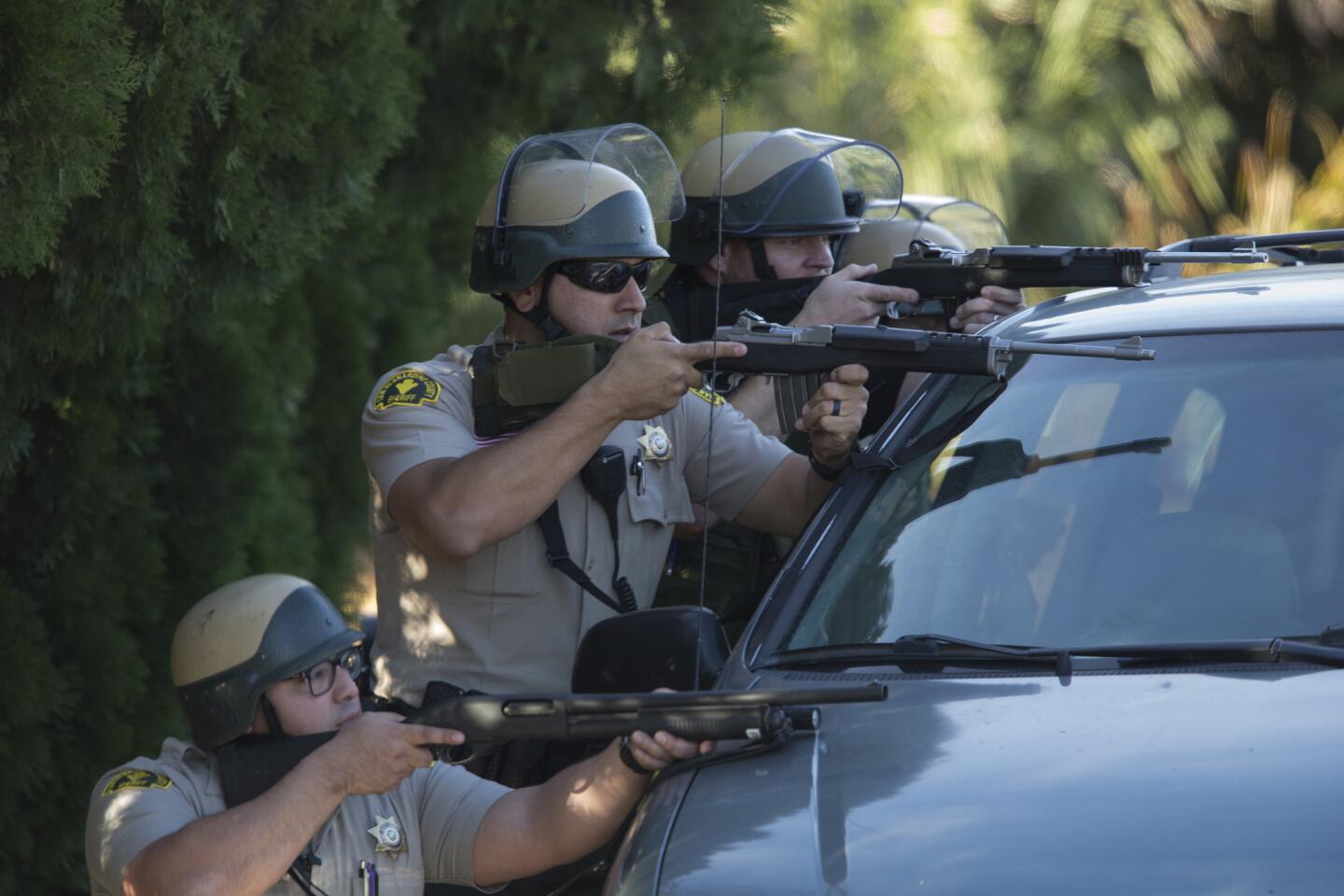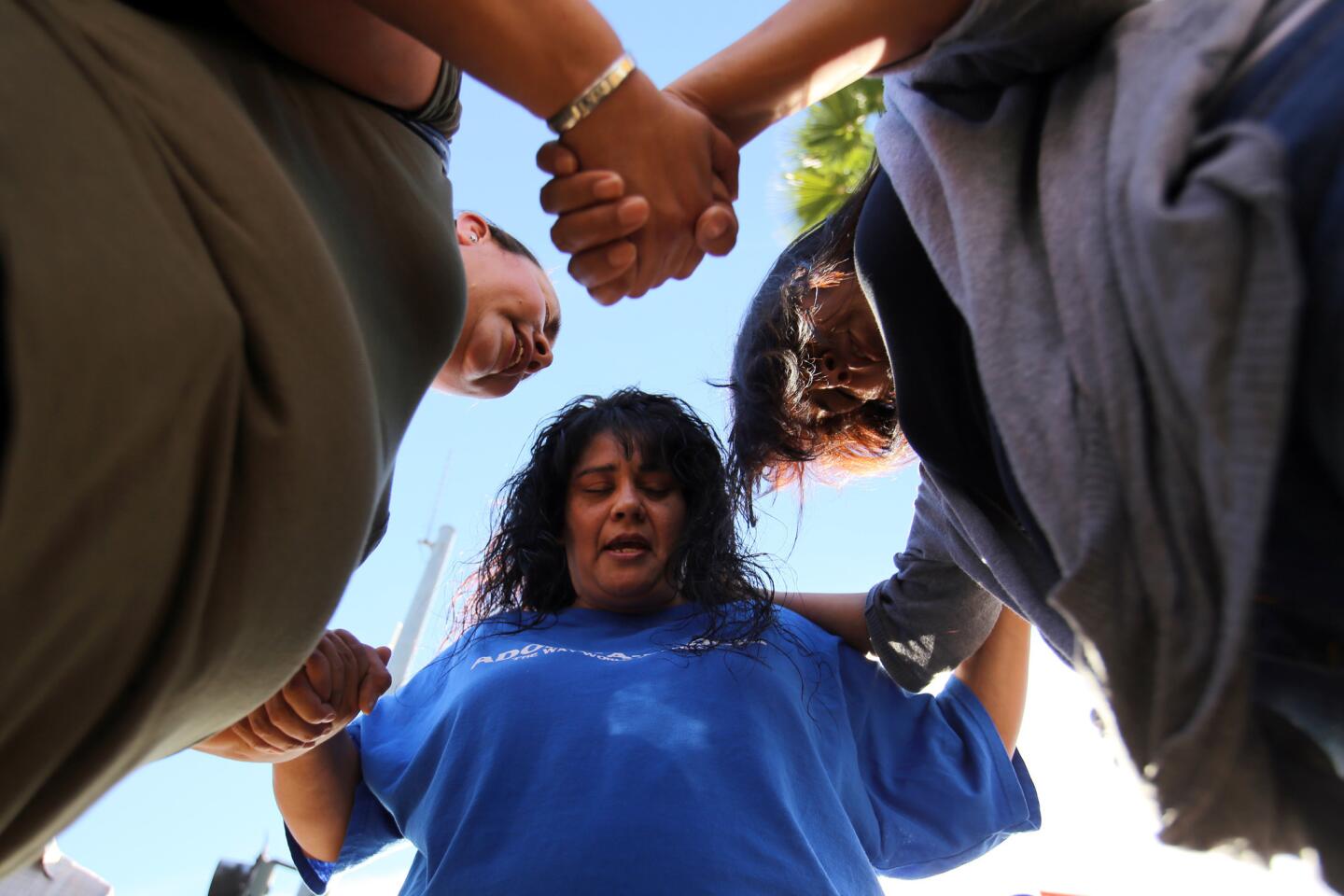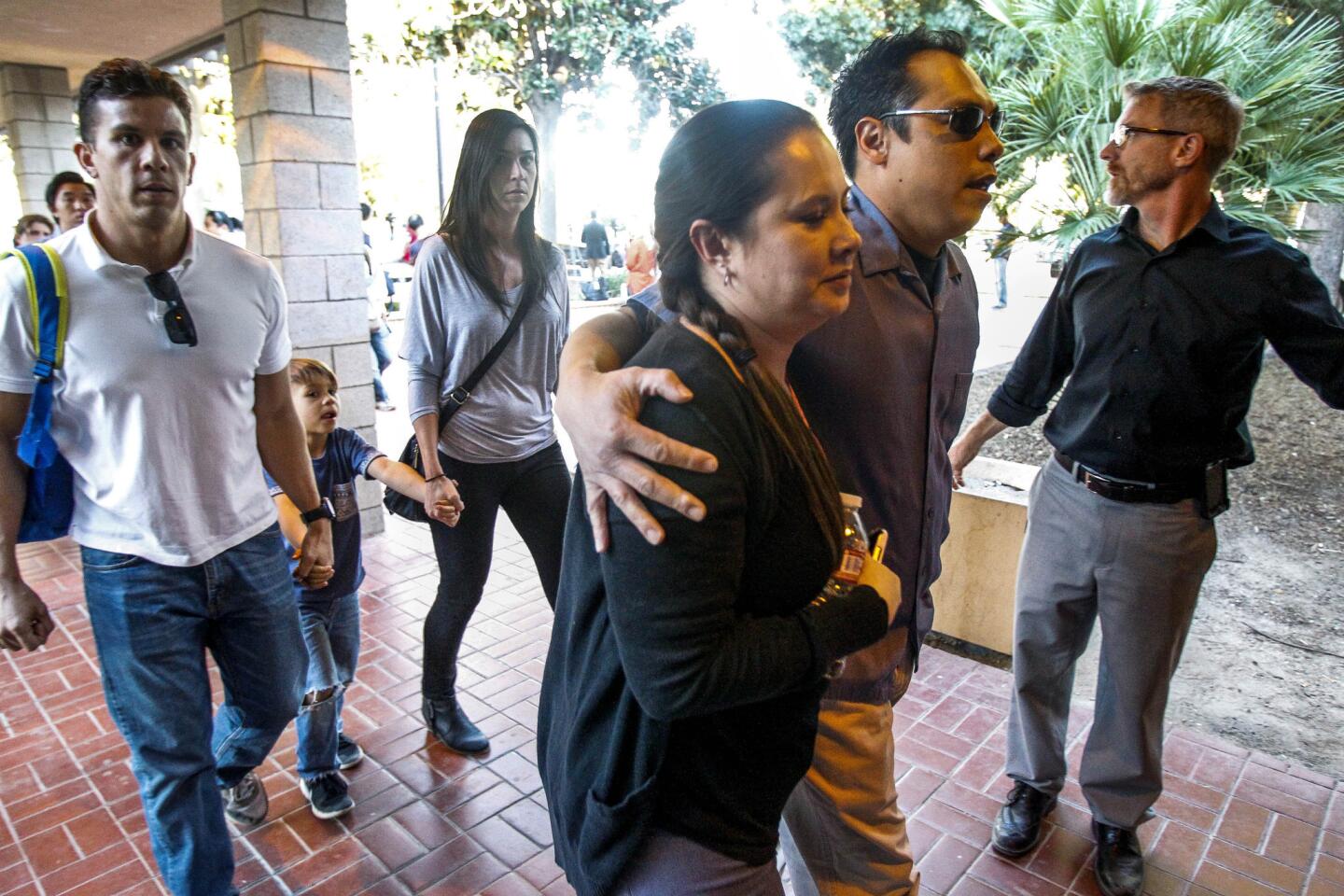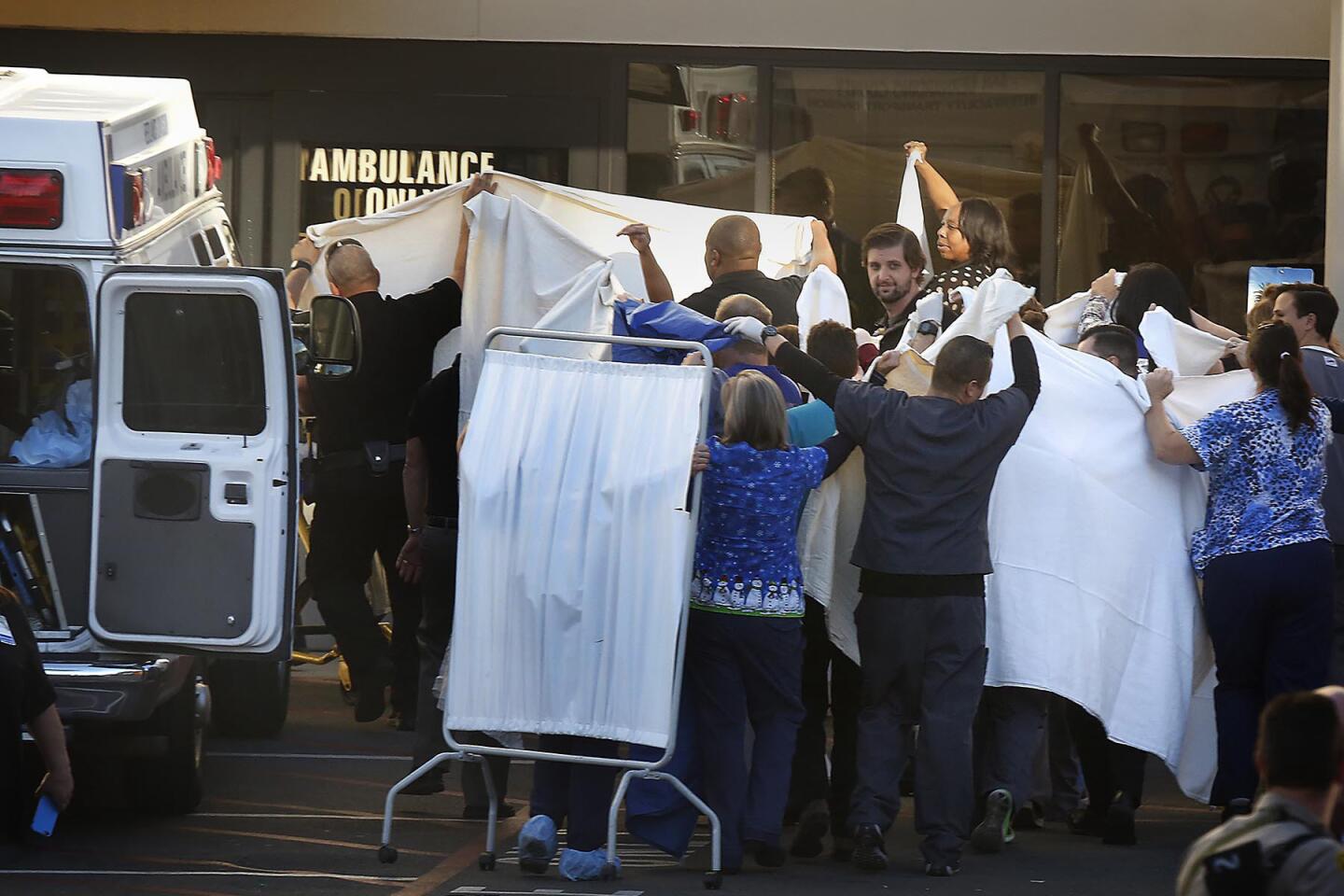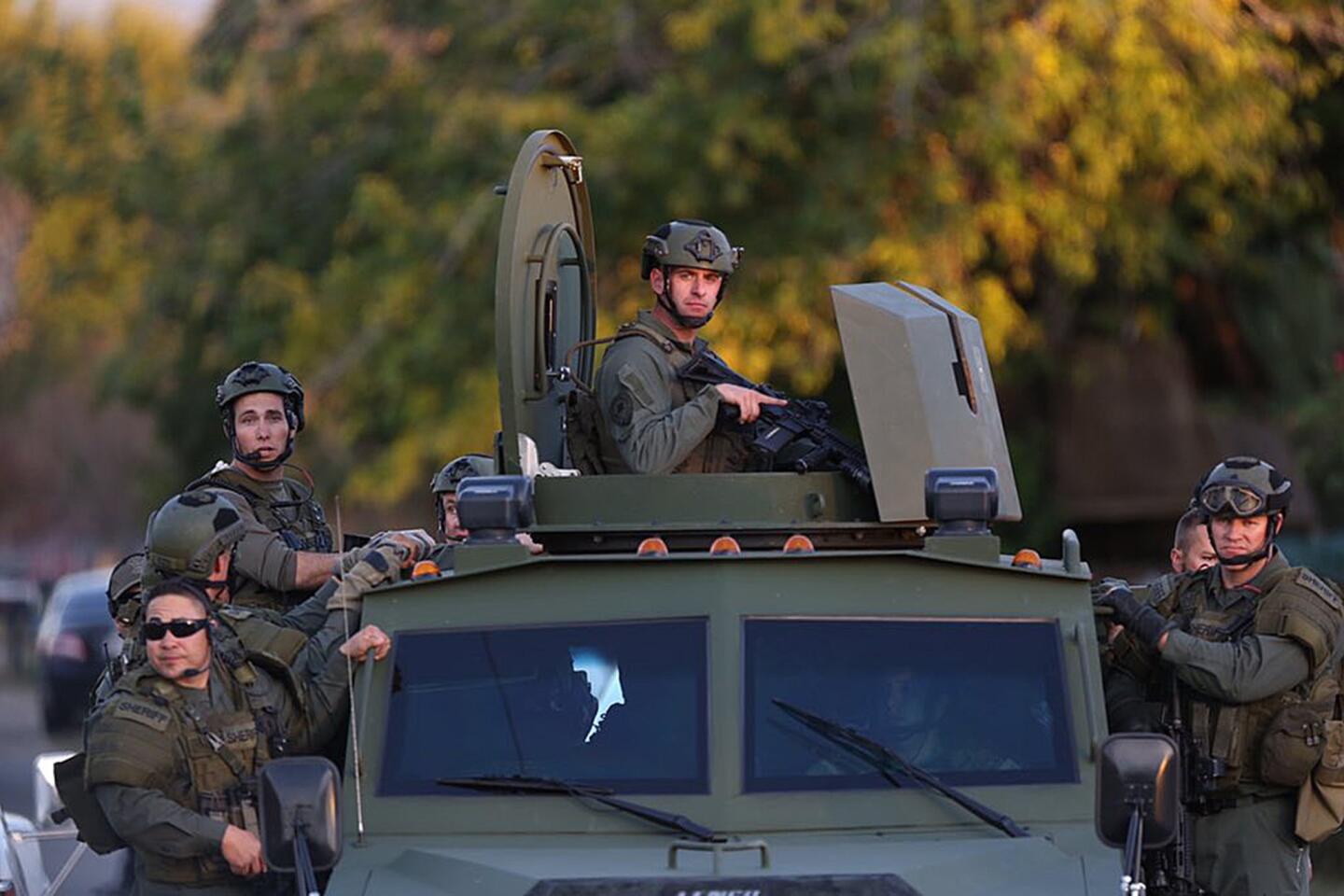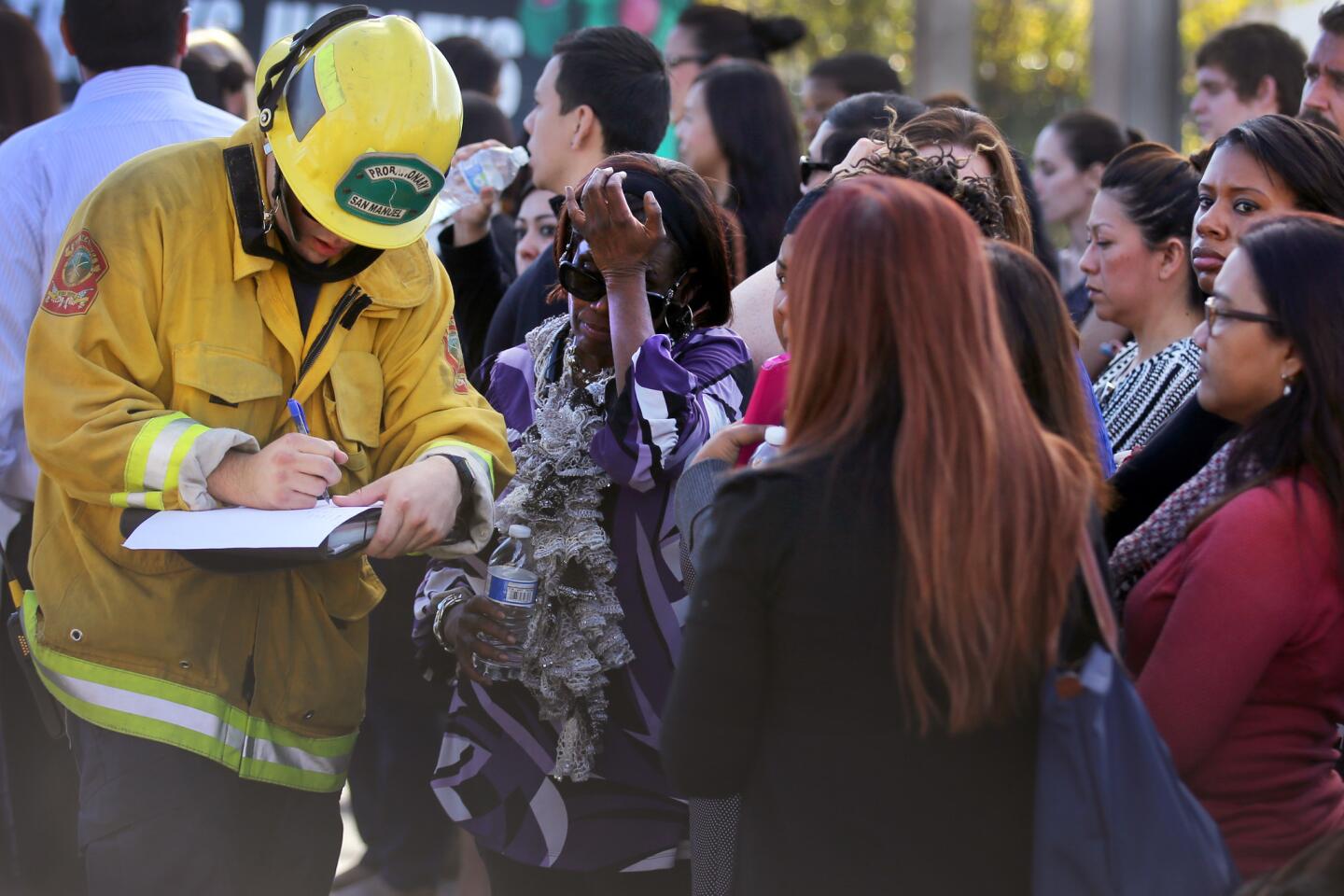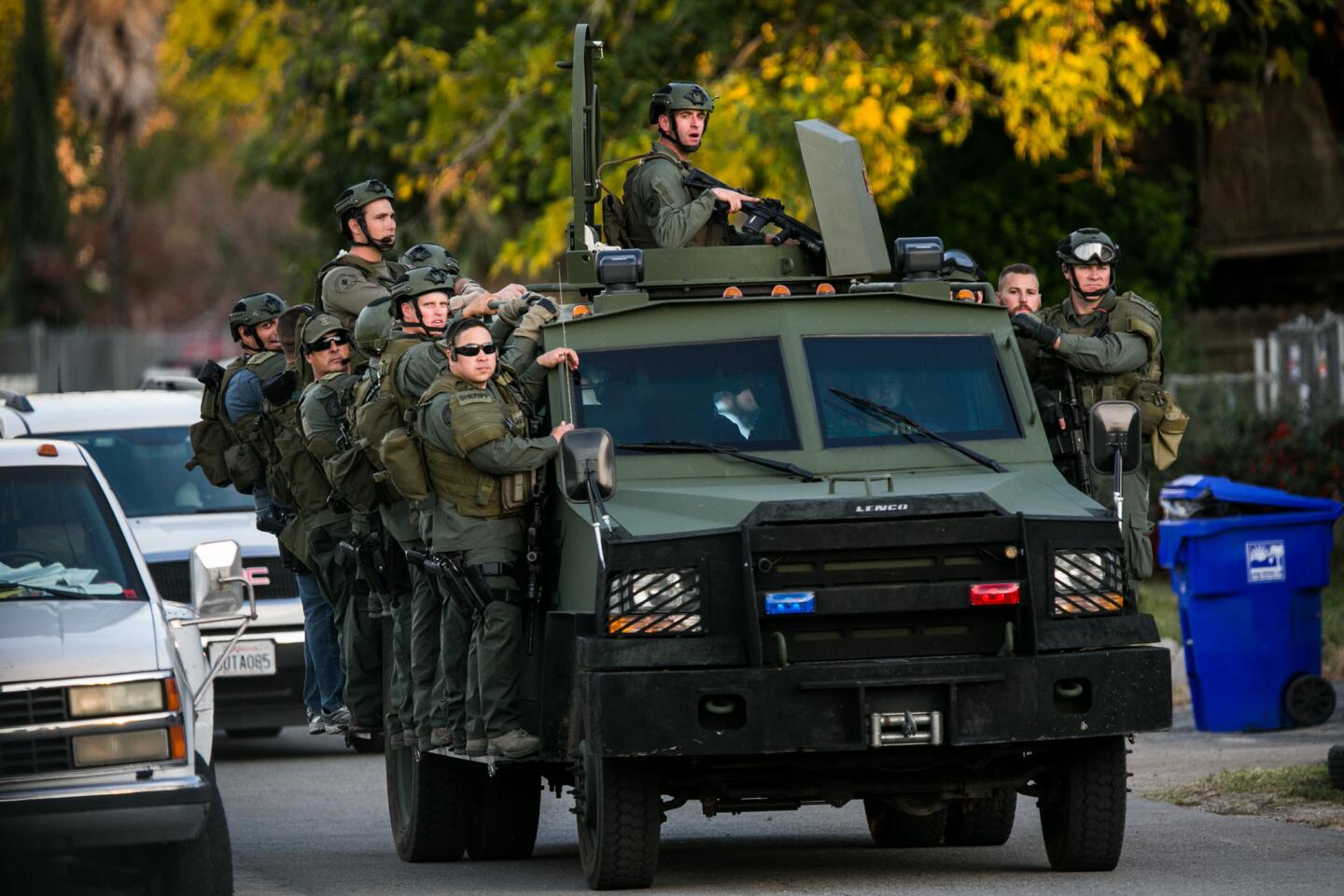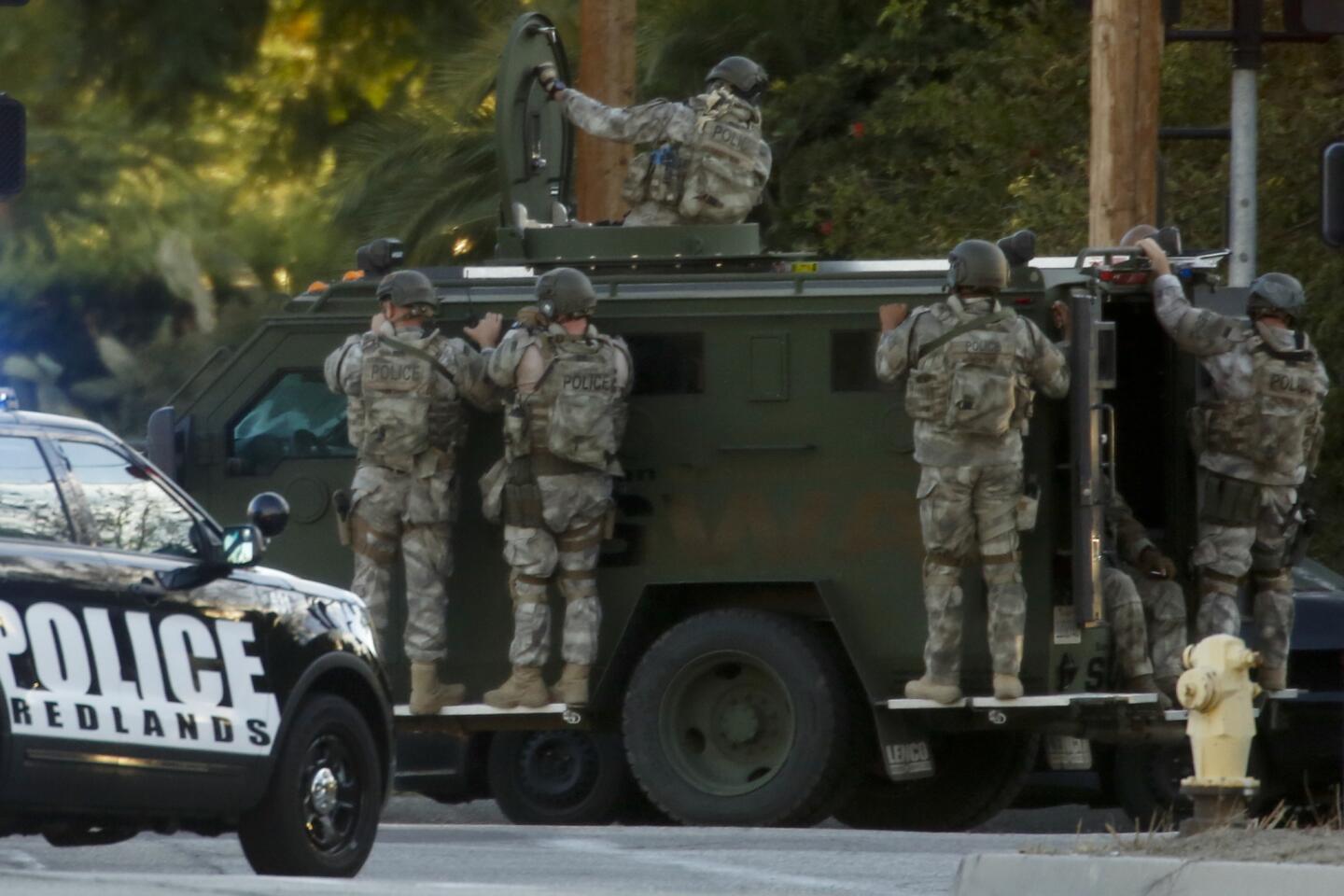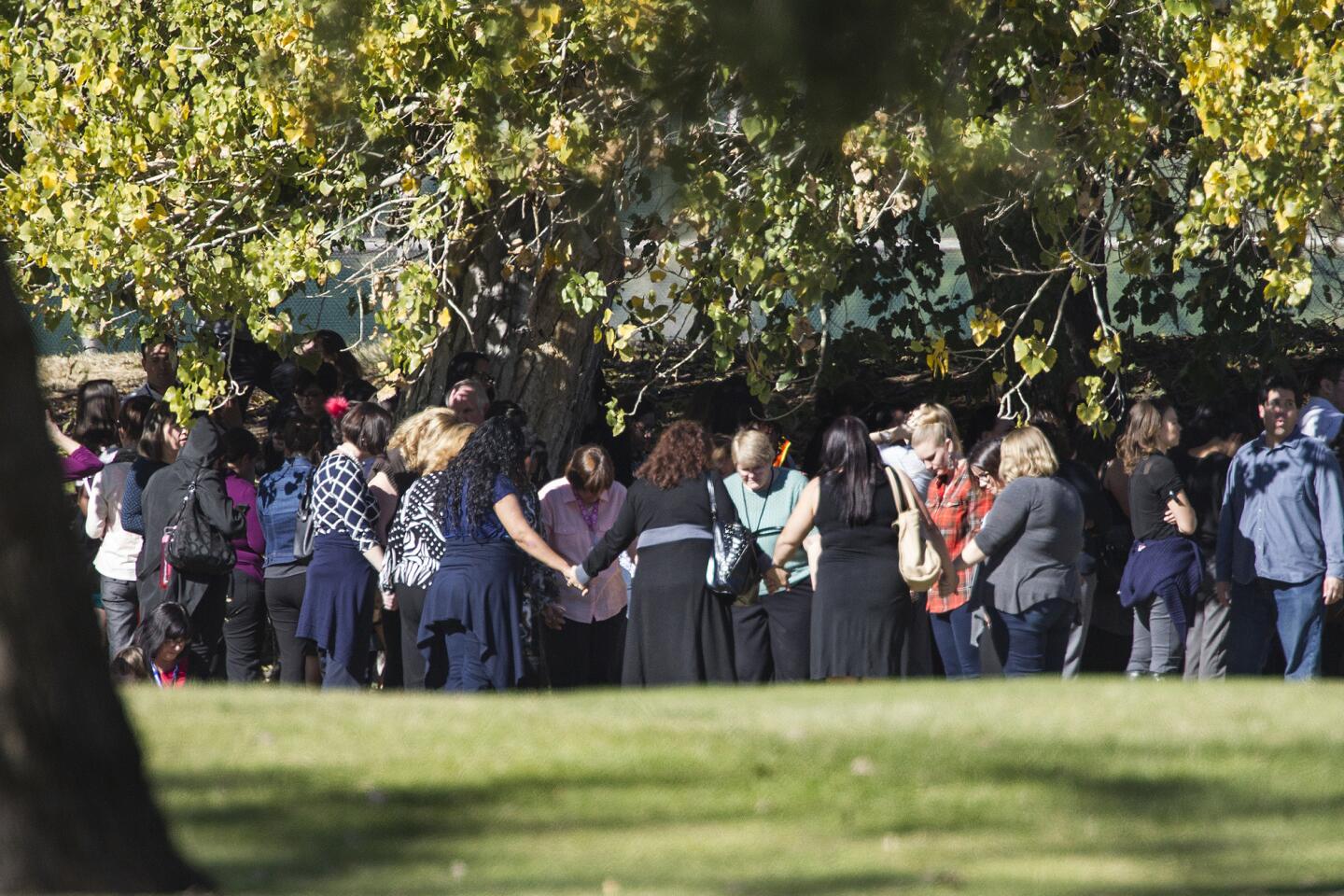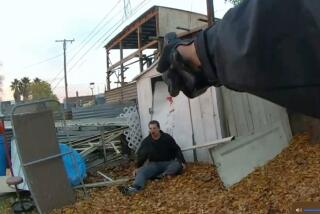Online loan may have helped couple fund their terror arsenal in San Bernardino attack
- Share via
In the weeks before the San Bernardino massacre, the husband-and-wife assailants obtained a $28,500 loan — an advance that authorities believe may have helped them acquire last-minute firearms, ammunition and components to build explosives, two federal officials said Tuesday.
The loan offers investigators a key new detail as they try to unravel how Syed Rizwan Farook and Tashfeen Malik plotted the deadliest terrorist attack on U.S. soil since 9/11. The money could also explain how they managed to pay for target practice at local gun ranges, as well as the rental sport utility vehicle they used during the Dec. 2 attack, the officials said.
Authorities were also looking into whether they left a device — made up of three bundled pipe bombs and remote-control car parts — that was intended to harm police responding to the shooting at the Inland Regional Center, according to a law enforcement source familiar with the investigation who requested anonymity in order to speak candidly.
FULL COVERAGE: San Bernardino terror attack | Live updates
Police radio chatter on the day of the shootings, in which 14 people were killed, mentioned a “suspicious device” in or near the conference room where the attack occurred. “We need to slow things down,” an officer ordered after the device was located. “I need you to advise all the units to move with caution.”
Left in a canvas bag, the device mirrored the crude explosives that dot the pages of Al Qaeda’s “Inspire,” a publication pored over by radicals seeking guidance in planning attacks, multiple sources told The Times.
Bomb technicians do not believe the device would have detonated, the law enforcement source said, adding that the building’s sprinkler system was activated during the shooting and water damage could have caused the device to malfunction.
The global investigation into the attackers’ backgrounds and any possible ties to larger terror networks has examined the couple’s finances.
Farook, an environmental health inspector for San Bernardino County, earned about $50,000 a year, while his wife stayed home with their 6-month-old daughter. They lived in a modest, rented town house in Redlands.
The couple received a $28,500 loan from San Francisco online lender Prosper Marketplace just weeks before the San Bernardino massacre, according to Fortune and Bloomberg News.
Prosper is a leading player in the burgeoning world of online, peer-to-peer lending, acting as a middleman matching borrowers and investors who fund their loans.
These loans are usually faster to obtain, larger and carry lower interest rates than credit cards.
People familiar with the industry say it’s exceedingly unlikely that Prosper or similar lenders could have allowed terrorist groups to finance the rampage.
Borrowers first must go through the same kind of credit check used for any other credit card or loan. In addition to a standard credit check, the company, like traditional banks, runs applicants’ names through a federal database of terrorists, drug traffickers and others who are prohibited from conducting business in the United States, Prosper spokeswoman Sarah Cain said.
The company then offers the loan to investors, which include institutions, such as hedge funds, as well as individuals. Investors are checked against the terrorist database before being allowed to buy loans, Cain said.
Even if a suspected terrorist evaded detection, experts say it would be difficult, if not impossible, to funnel money to a specific individual.
The borrower’s name, address and other personal data are hidden from investors. Also, the loans open for investment are randomly offered to either institutions or pools of private investors.
A terror group would “be competing with all these funds to get that loan, and they’d have no certainty of who the borrower was,” said Bryce Mason, who has invested in Prosper loans and is chief investment officer of Direct Lending Investments, a La Cañada Flintridge hedge fund.
If a borrower qualified for an online loan, there would be more than enough legitimate investors to supply the cash, Mason said. A terror group wouldn’t need to get involved.
Two federal officials said the money was issued by WebBank, a federally regulated lender in Salt Lake City not subject to individual state lending rules. News of the loan was first reported by Fox News.
In a brief statement, WebBank offered its condolences to the San Bernardino shooting victims and said federal and state laws prevented it from commenting on specific loans.
“WebBank evaluates all loan applications in accordance with legal requirements including U.S. anti-terrorism and anti-money-laundering laws,” the company said, adding that it will “fully cooperate with law enforcement agencies investigating this matter.”
FBI property logs left behind by agents who searched the couple’s home show a $600 withdrawal made at 10:31 p.m. the day before the shooting from a Union Bank in Redlands. A receipt from Chase Bank dated the same day was listed among the inventory, but it was not clear whether that was also for a withdrawal.
On Monday, the FBI said it appeared Farook and Malik had been radicalized “for quite some time.”
Malik was a member of an affluent and politically influential family in a Pakistan region where religious schools are known as incubators of Islamist extremism. She began posting extremist rhetoric on social media after she moved to the U.S. to be with Farook. Moments before the shootings, the 29-year-old declared allegiance to a leader of Islamic State on Facebook.
She had met Farook, 28, on a dating website. A Sunni Muslim born in Chicago to Pakistani parents, he noted that he was looking for “someone who takes her religion very seriously.” He once told an acquaintance how he appreciated that Malik wore a niqab, a veil that covered almost all her face, and did not embody today’s notion of a modern woman.
Federal investigators have been trying to determine whether Farook was influenced by Mohamed Abdullahi Hassan, a former Minneapolis resident known as Mujahid Miski who has served as a recruiter for Islamic State. Hassan surrendered Monday to authorities in Somalia.
Hassan is in the custody of the Somali National Intelligence and Security Agency in Mogadishu, and U.S. officials are discussing his case with government leaders, a State Department spokeswoman said.
Meanwhile, many of the 21 injured victims have gone home. Loved ones have been mourned, vigils held. And a community left to make sense of a day when a holiday party became a scene of horror has attempted to heal.
Times staff writers Sarah Parvini, Jack Dolan, Joel Rubin, Joseph Serna, Hailey Branson-Potts, Stephen Ceasar, Matt Stevens, Lauren Raab, Paloma Esquivel, Tony Barboza, Kate Mather, Soumya Karlamangla, Rong-Gong Lin II, James Queally, Veronica Rocha, Taylor Goldenstein, Dexter Thomas and Christine Mai-Duc contributed to this report.
MORE ON SAN BERNARDINO
San Bernardino shooting victims: Who they were
After San Bernardino attack, rattled residents reach for their guns
Why Muslims should not have to apologize for San Bernardino shooting
More to Read
Sign up for Essential California
The most important California stories and recommendations in your inbox every morning.
You may occasionally receive promotional content from the Los Angeles Times.
